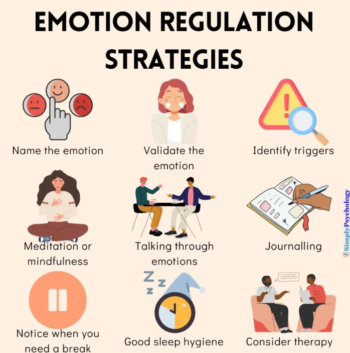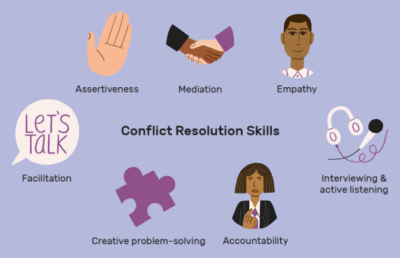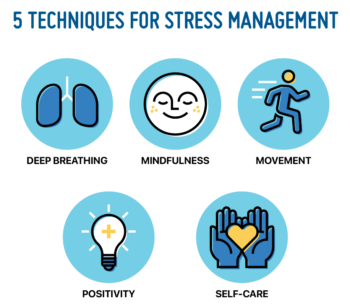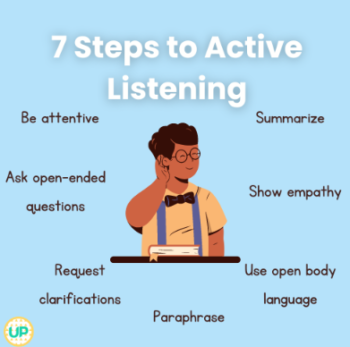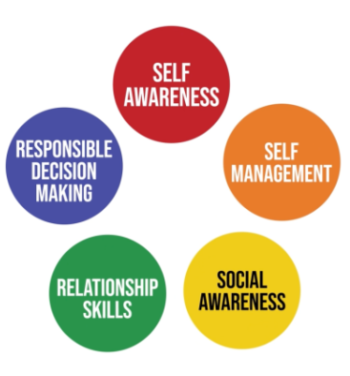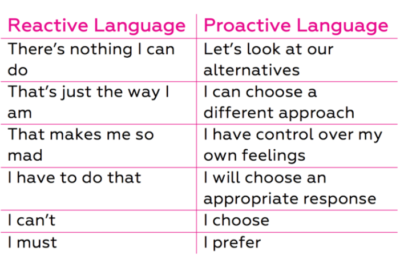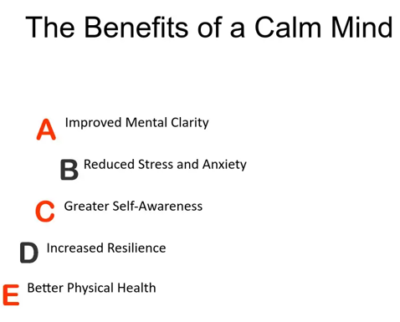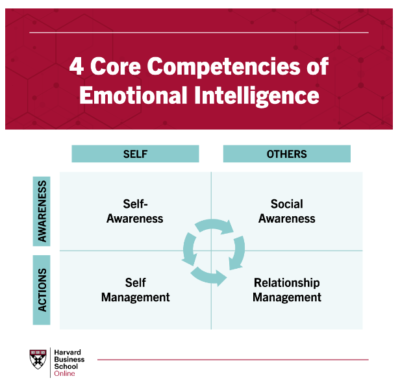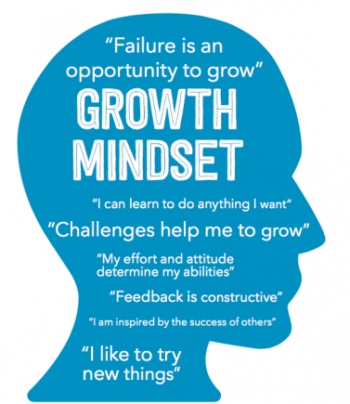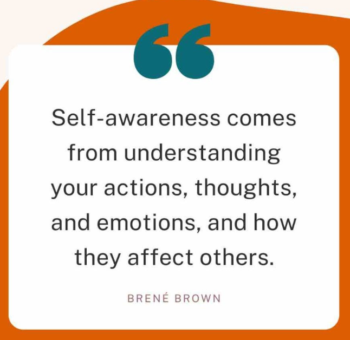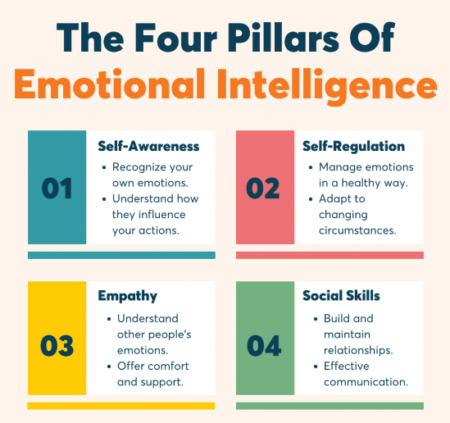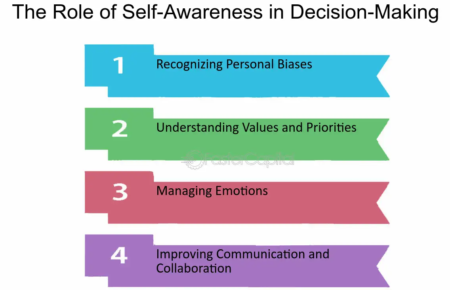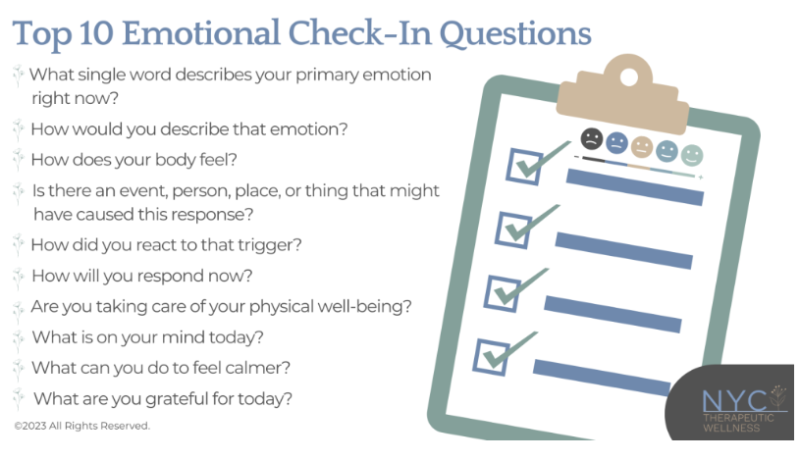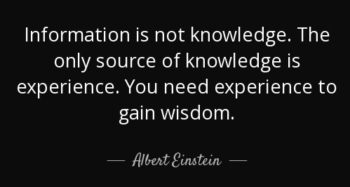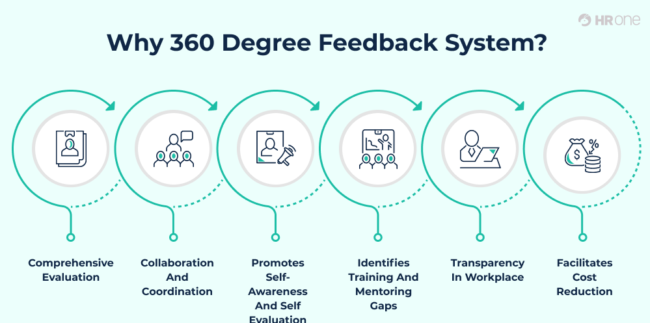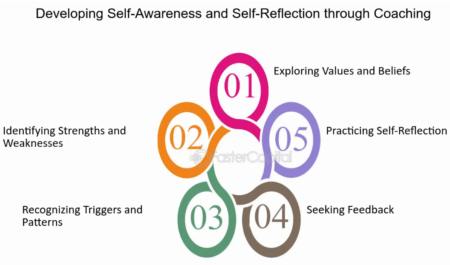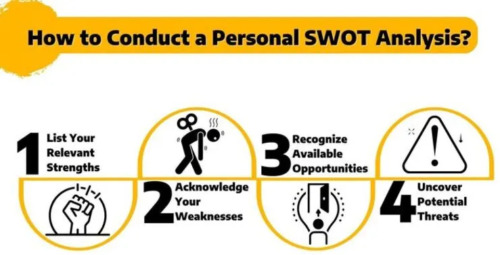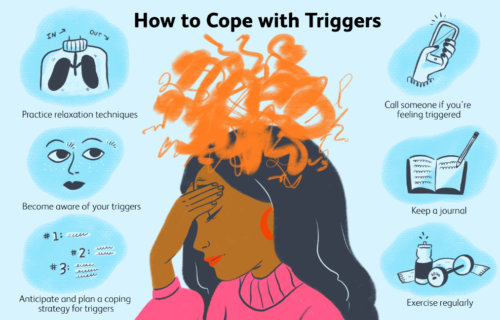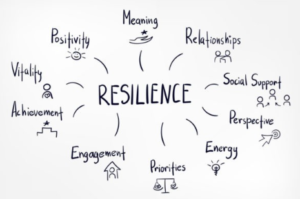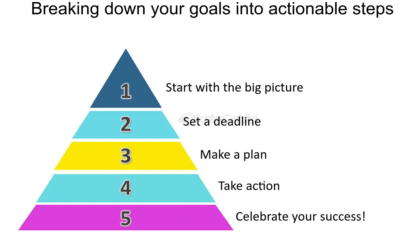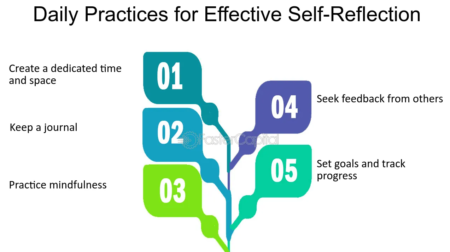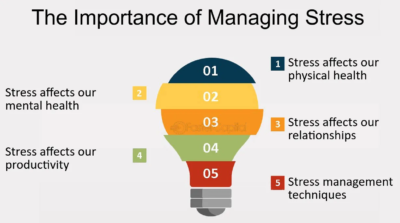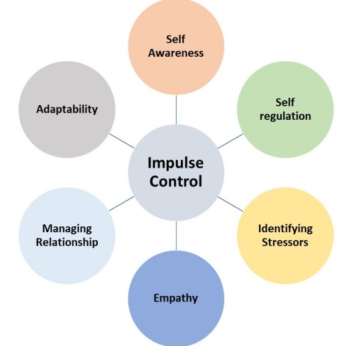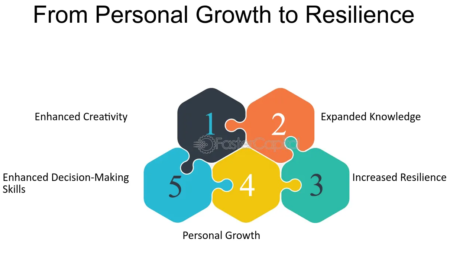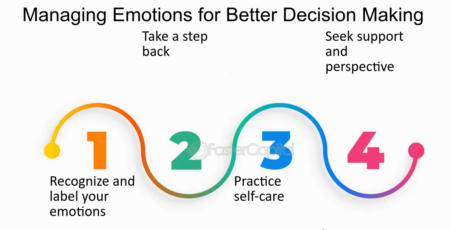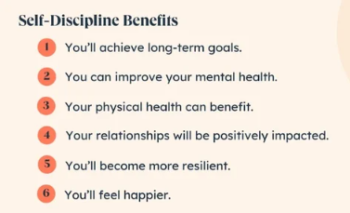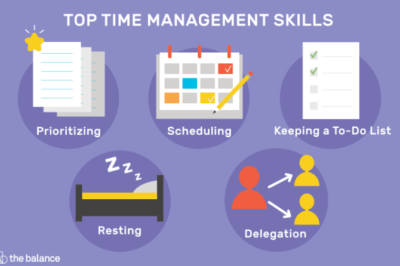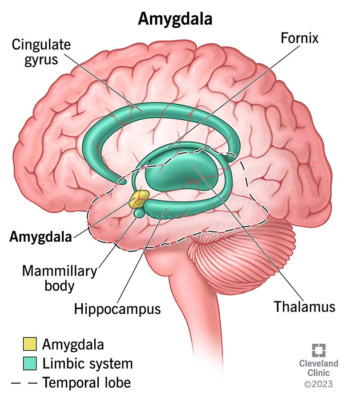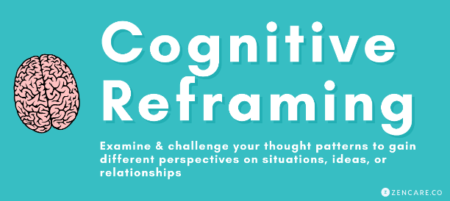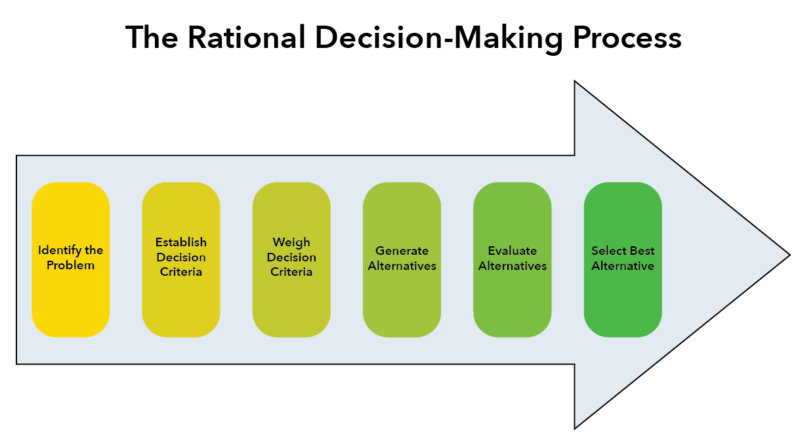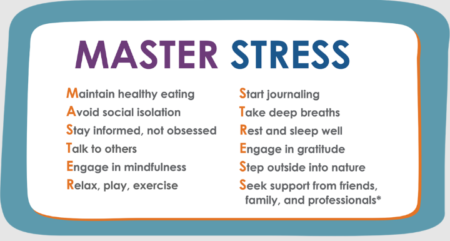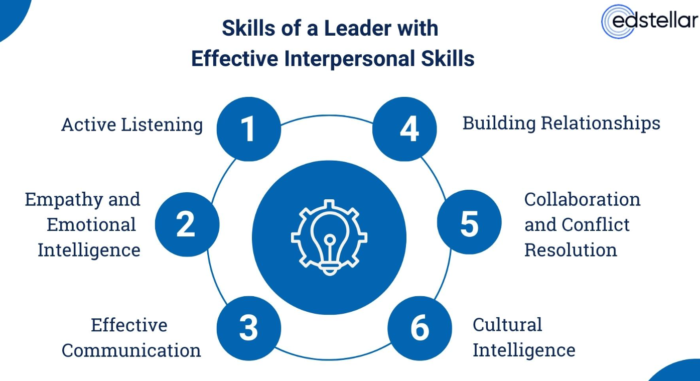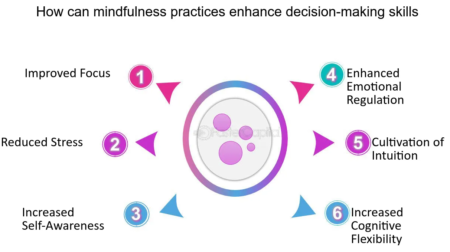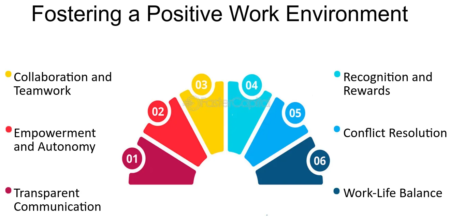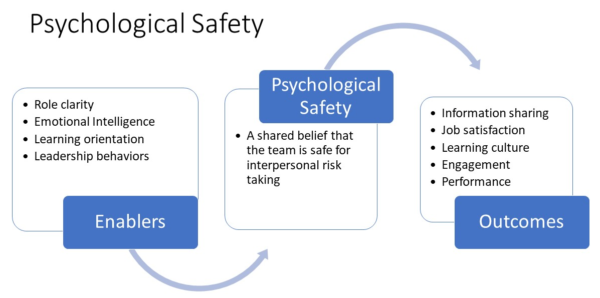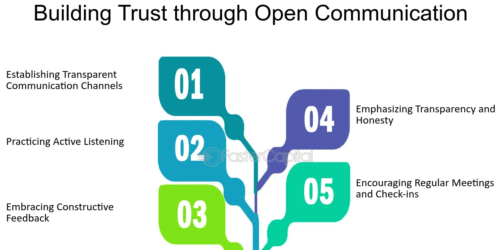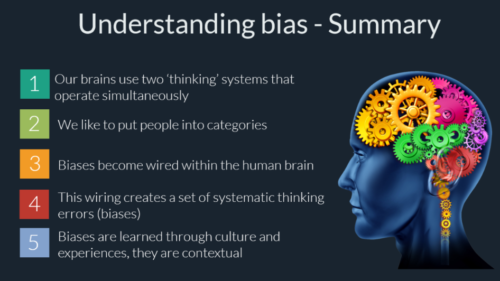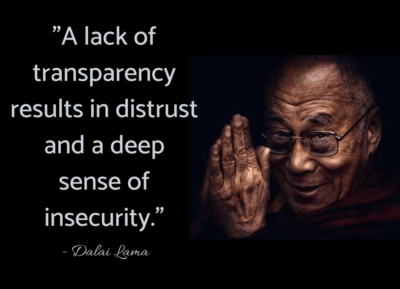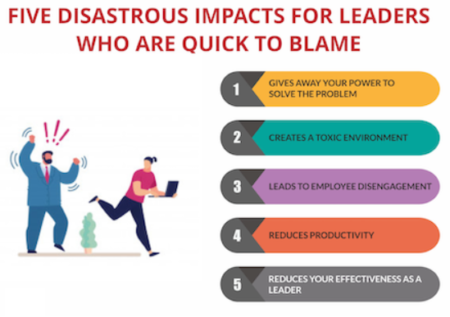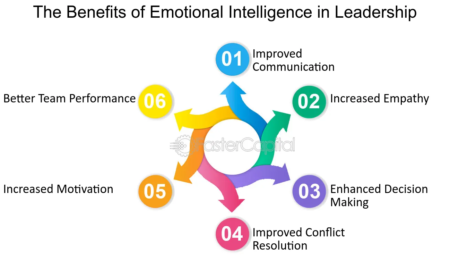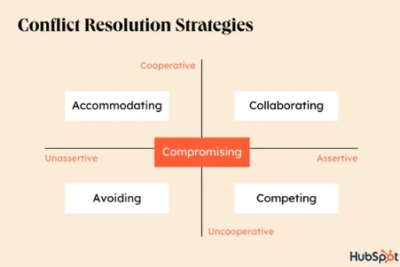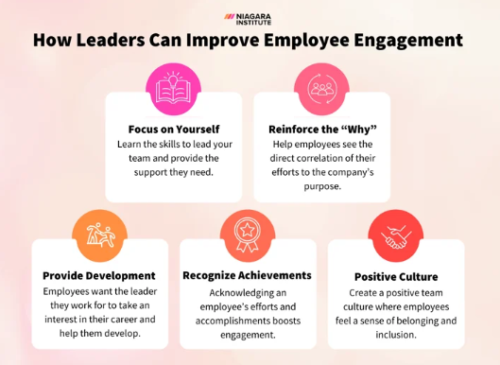Emotionally Intelligent Leadership – Workshop 1 (Increasing Self-Awareness)

The Appleton Greene Corporate Training Program (CTP) for Emotionally Intelligent Leadership is provided by Ms. Haygood Certified Learning Provider (CLP). Program Specifications: Monthly cost USD$2,500.00; Monthly Workshops 6 hours; Monthly Support 4 hours; Program Duration 12 months; Program orders subject to ongoing availability.
If you would like to view the Client Information Hub (CIH) for this program, please Click Here
Learning Provider Profile
Ms. Haygood is an Executive Leadership Coach and the Founder of a boutique leadership development and coaching firm leveraging emotional intelligence to elevate organizations. As a seasoned leader, she pulls from her experience and knowledge to help others navigate leadership challenges.
Ms. Haygood is passionate about cultivating leaders who can create the organizational shifts necessary to provide foundations of trust, authenticity and empowerment for themselves, the people they lead and their organizations.
Aside from her corporate experience, Ms. Haygood has a natural ability to connect with others authentically. As a lifelong learner, she has also invested in training and certifications to grow her toolkit to ensure maximum impact when working with leaders and teams. She holds an MBA, is a certified executive coach, a Prosci certified Change Management Practitioner, and is certified to administer leadership and EI assessments from Genos International and The Center for Creative Leadership.
MOST Analysis
Mission Statement
Part 1 Month 1 Increasing Self-Awareness – Self-awareness is the lynchpin to becoming an emotionally intelligent leader. This workshop will enhance attendees’ self-awareness and self-management, allowing them to be more intentional about how they lead. This increased awareness will improve their ability to handle stress and pressure in the workplace, resulting in improved decision-making skills and understanding of how their actions and behaviors impact others.
Objectives
01. Introduction to Emotional Intelligence: departmental SWOT analysis; strategy research & development. Time Allocated: 1 Month
02. Self-Awareness: departmental SWOT analysis; strategy research & development. Time Allocated: 1 Month
03. Self-Awareness Practices: departmental SWOT analysis; strategy research & development. Time Allocated: 1 Month
04. Leveraging Others to Increase Self-Awareness: departmental SWOT analysis; strategy research & development. Time Allocated: 1 Month
05. Leveraging Self-Awareness for Goals and Priorities: departmental SWOT analysis; strategy research & development. Time Allocated: 1 Month
06. Self-Management: departmental SWOT analysis; strategy research & development. Time Allocated: 1 Month
07. Why Self-Management Matters: departmental SWOT analysis; strategy research & development. 1 Month
08. Increasing Self-Management: departmental SWOT analysis; strategy research & development. Time Allocated: 1 Month
09. Systems for Self-Management: departmental SWOT analysis; strategy research & development. Time Allocated: 1 Month
10. Manage Stress Through Self-Awareness and Self-Management: departmental SWOT analysis; strategy research & development . Time Allocated: 1 Month
11. Decision Making Through Self-Awareness and Self-Management: departmental SWOT analysis; strategy research & development. Time Allocated: 1 Month
12. Actions and Behaviors: departmental SWOT analysis; strategy research & development. Time Allocated: 1 Month
Strategies
01. Introduction to Emotional Intelligence: Each individual department head to undertake departmental SWOT analysis; strategy research & development.
02. Self-Awareness: Each individual department head to undertake departmental SWOT analysis; strategy research & development.
03. Self-Awareness Practices: Each individual department head to undertake departmental SWOT analysis; strategy research & development.
04. Leveraging Others to Increase Self-Awareness: Each individual department head to undertake departmental SWOT analysis; strategy research & development.
05. Leveraging Self-Awareness for Goals and Priorities: Each individual department head to undertake departmental SWOT analysis; strategy research & development.
06. Self-Management: Each individual department head to undertake departmental SWOT analysis; strategy research & development.
07. Why Self-Management Matters: Each individual department head to undertake departmental SWOT analysis; strategy research & development.
08. Increasing Self-Management: Each individual department head to undertake departmental SWOT analysis; strategy research & development.
09. Systems for Self-Management: Each individual department head to undertake departmental SWOT analysis; strategy research & development.
10. Manage Stress Through Self-Awareness and Self-Management: Each individual department head to undertake departmental SWOT analysis; strategy research & development.
11. Decision Making Through Self-Awareness and Self-Management: Each individual department head to undertake departmental SWOT analysis; strategy research & development.
12. Actions and Behaviors: Each individual department head to undertake departmental SWOT analysis; strategy research & development.
Tasks
01. Create a task on your calendar to be completed within the next month to analyze Introduction to Emotional Intelligence
02. Create a task on your calendar to analyze self-awareness, to be completed within the next month.
03. Create a task on your calendar to analyze self-awareness practices to be completed within the next month.
04. Create a task on your calendar to analyze Leveraging Others to Increase Self-Awareness, to be completed within the next month.
05. Create a task on your calendar to be completed within the next month to analyze Leveraging Self-Awareness for Goals and Priorities.
06. Create a task on your calendar to analyze self-management and self-awareness, to be completed within the next month.
07. Create a task on your calendar to analyze Why Self-Management Matters, to be completed within the next month.
08. Create a task on your calendar to analyze Increasing self-management, to be completed within the next month.
09. Create a task on your calendar, to be completed within the next month, to Systems for Self-Management.
10. Create a task on your calendar to be completed within the next month to Manage Stress through Self-Awareness and Self-Management.
11. Create a task on your calendar to analyze Decision Making Through Self-awareness and Self-management, to be completed within the next month.
12. Create a task on your calendar to analyze actions and behaviors to be completed within the next month.
Introduction
In leadership, emotional intelligence has emerged as a pivotal determinant of success, with Forbes ranking emotional intelligence as the #1 skill needed for success in 2024. Emotionally intelligent leaders understand and manage their own emotions but also empathize with and influence the emotions of others. At the core of this framework lies the essential trait of self-awareness—the capacity to recognize and comprehend one’s feelings, motivations, and reactions. “Building the Foundation of Emotionally Intelligent Leadership: Increasing Self-Awareness” is a comprehensive exploration of this foundational aspect of effective leadership.
This workshop will enhance attendees’ self-awareness and self-management, allowing them to be more intentional about how they lead. This increased awareness will improve their ability to handle stress and pressure in the workplace, resulting in improved decision-making skills and understanding of how their actions and behaviors impact others.
In today’s rapidly evolving and interconnected world, the need for leaders who are competent in their technical skills as well as adept in navigating the complexities of human relationships has never been more pronounced. Leaders with a high degree of self-awareness are better equipped to navigate leadership challenges with poise, authenticity, and resilience. By understanding their strengths and limitations, they can leverage their unique attributes to inspire and motivate those around them, fostering a culture of trust, collaboration, and innovation within their teams and organizations.
This course serves as a roadmap for leaders committed to enhancing their self-awareness and, by extension, their effectiveness as leaders. Through a blend of theoretical frameworks, practical exercises, case studies, and reflective practices, participants will embark on a journey of self-discovery and personal growth. They will explore the various dimensions of self-awareness, including emotional self-awareness, self-perception, self-confidence, and self-regulation, gaining insights into their thoughts, behaviors, and interpersonal dynamics.
Central to exploring self-awareness is the recognition that it is a skill that can be cultivated and developed over time. Through intentional practice and reflection, leaders can deepen their understanding of themselves, uncovering hidden biases, blind spots, and areas for growth. By cultivating a mindset of curiosity and openness, participants will learn to embrace feedback as a valuable source of insight and leverage it to refine their leadership approach.
Moreover, this course recognizes the interconnectedness between self-awareness and other dimensions of emotional intelligence, such as social awareness and relationship management. Participants will explore how self-awareness influences their ability to empathize with others, navigate conflicts, and build meaningful connections. By honing their self-awareness, leaders can cultivate greater empathy and understanding, fostering a culture of inclusivity, collaboration, and mutual respect within their teams and organizations.
Ultimately, it is a transformative journey towards becoming a more authentic, compassionate, and effective leader. Through self-reflection, introspection, and a commitment to lifelong learning, participants will emerge with a deeper understanding of themselves and the profound impact they can have on those they lead.
Foundations of Emotionally Intelligent Leadership
The foundations of emotionally intelligent leadership encompass several key elements that serve as the bedrock for effective leadership grounded in self-awareness and emotional intelligence. These foundational pillars include:
1. Self-Awareness: At the core of emotionally intelligent leadership is a deep understanding of oneself. Self-aware leaders possess insight into their emotions, strengths, weaknesses, values, and motivations. They are attuned to how their emotions impact their behavior and decision-making processes, allowing them to regulate their responses effectively. Self-aware leaders are also open to feedback and self-reflection, continuously seeking to understand themselves better and improve their leadership approach.
Self-awareness is the cornerstone of emotionally intelligent leadership. It represents a profound understanding and acknowledgment of one’s own emotions, thoughts, strengths, weaknesses, and values. Leaders who cultivate self-awareness can effectively recognize and regulate their emotions, enabling them to navigate challenging situations with clarity and composure. Through introspection and self-reflection, they gain insight into their behavior patterns, triggers, and biases, allowing them to make conscious choices rather than reacting impulsively.
Moreover, self-aware leaders are attuned to the impact of their actions on others, fostering a culture of trust, respect, and collaboration within their teams. By continually seeking to understand themselves better and embracing their vulnerabilities, they inspire authenticity and influence others, laying the foundation for meaningful relationships and sustainable leadership success.
2. Self-Regulation: Emotionally intelligent leaders exhibit a high degree of self-regulation, enabling them to manage their emotions constructively. They can remain calm and composed even in challenging situations, refraining from impulsive reactions and responding thoughtfully and strategically. Through self-regulation, leaders can maintain focus, adaptability, and resilience, fostering a sense of stability and trust within their teams.
Self-regulation is the bedrock of emotional intelligence, representing the ability to manage and control one’s emotions, impulses, and behaviors in various situations. Emotionally intelligent leaders who excel in self-regulation possess the capacity to remain composed and focused, even amidst adversity or stress. They demonstrate resilience in the face of challenges, refraining from reacting impulsively or succumbing to negative emotions.
Instead, they maintain balance and perspective, responding thoughtfully and strategically to obstacles and setbacks. Through self-awareness and self-discipline, these leaders cultivate a sense of inner calm and stability, inspiring confidence and trust within their teams. By modeling self-regulation, they set a positive example for others, fostering a culture of accountability, adaptability, and resilience within their organizations.
3. Empathy: Empathy is the ability to understand and share the feelings of others. Leaders who demonstrate empathy can connect with their team members on a deeper level, recognizing their perspectives, needs, and concerns. By showing genuine concern and compassion, empathetic leaders create an inclusive and supportive environment where individuals feel valued and understood.
Empathy embodies the capacity to understand and share the feelings and perspectives of others. Leaders who demonstrate empathy possess a deep sense of compassion and sensitivity toward their team members’ experiences and emotions. They actively listen and seek to understand their team members’ unique challenges, aspirations, and concerns, fostering a culture of inclusivity, belonging, and trust.
Empathetic leaders recognize each team member’s individuality and strive to create an environment where everyone feels valued, respected, and supported. By connecting on a human level and showing genuine concern for the well-being of others, they inspire loyalty, commitment, and collaboration, driving organizational success through empathy.
4. Social Skills: Effective leadership involves building and nurturing relationships, and social skills are essential for fostering positive connections within teams and across organizations. Emotionally intelligent leaders excel in communication, collaboration, and conflict resolution, leveraging their interpersonal skills to inspire, motivate, and influence others. They are adept at building trust, resolving conflicts, cultivating a culture of openness and collaboration, and enhancing team cohesion and performance.
Social skills are essential components of emotionally intelligent leadership, encompassing the ability to communicate, collaborate, and build relationships with others effectively. Leaders with strong social skills are deeply aware of others and excel in interpersonal interactions, demonstrating empathy, active listening, and clear communication. They create an inclusive and supportive environment where team members feel valued, respected, and understood. These leaders excel at resolving conflicts diplomatically, mediating disputes, and fostering consensus among diverse perspectives.
Moreover, they leverage their networking abilities to cultivate strategic alliances, negotiate effectively, and influence stakeholders toward shared goals. By prioritizing relationship-building and fostering a culture of open communication and collaboration, socially skilled leaders inspire trust, loyalty, and engagement within their teams, driving organizational success through cohesive teamwork and collective effort.
5. Authenticity: Authenticity is the alignment between one’s values, beliefs, and actions. Emotionally intelligent leaders lead with authenticity, staying true to themselves while also fostering an environment where others feel empowered to do the same. They are genuine, transparent, and consistent in their words and actions, earning the trust and respect of their team members through their integrity and sincerity.
Authenticity lies at the heart of emotionally intelligent leadership, embodying the alignment between one’s values, beliefs, and actions. Leaders who lead with authenticity are genuine, transparent, and consistent in their words and behaviors. They cultivate a culture of trust and integrity by staying true to themselves and their principles, even in the face of adversity or pressure. Authentic leaders inspire confidence and loyalty among their team members, as they are perceived as trustworthy and dependable.
By embracing their vulnerabilities and admitting their mistakes, they create an environment where others feel empowered to do the same, fostering a culture of openness, growth, and continuous improvement. Authenticity also enables leaders to build meaningful connections with their team members, as they can relate on a human level and forge genuine relationships based on mutual respect and understanding. Ultimately, authentic leadership fosters a sense of purpose, belonging, and shared values, driving organizational success through the power of genuine connection and collaboration.
By cultivating these building foundations of emotionally intelligent leadership, leaders can enhance their effectiveness, inspire their teams, and navigate the complexities of leadership with confidence and empathy. These foundational elements provide a roadmap for leaders to develop their emotional intelligence and lead authentically, fostering a culture of trust, collaboration, and growth within their organizations.
Why Emotional Intelligence is Important for Leaders
Emotional intelligence is crucial for leaders because it enables them to navigate the complexities of human relationships, inspire and motivate their teams, and effectively lead through change and uncertainty. Here are several vital reasons why emotional intelligence is essential for leaders:
Effective Communication: Emotionally intelligent leaders excel in communication, conveying information clearly, listening attentively, and empathizing with their team members; fostering open dialogue, trust, and collaboration within the team.
Effective communication is a cornerstone of leadership, and emotional intelligence is pivotal in enhancing this skill. Emotionally intelligent leaders articulate their ideas clearly and persuasively and listen actively and empathetically to others. They understand that communication is not just about conveying information but also about fostering understanding and connection. By being attuned to the emotions and perspectives of their team members, emotionally intelligent leaders can tailor their communication style to resonate with different audiences, building rapport and trust in the process.
Moreover, they recognize the importance of nonverbal cues and body language in communication, ensuring their message is conveyed authentically and congruently. Through effective communication, emotionally intelligent leaders can align their team members toward common goals, inspire confidence and commitment, and foster a culture of collaboration and innovation within their organizations.
Conflict Resolution: Leaders with high emotional intelligence can navigate conflicts and disagreements constructively. They remain calm under pressure, seek mutually beneficial solutions, and encourage open communication to resolve issues effectively.
Conflict resolution is a critical skill for leaders, and emotional intelligence is instrumental in navigating conflicts constructively. Emotionally intelligent leaders approach conflicts with calmness and empathy, seeking to understand the underlying issues and perspectives of all parties involved. They remain composed and objective, creating a safe space for open dialogue and constructive problem-solving. These leaders foster a culture where differences are embraced as opportunities for growth and learning rather than sources of division.
Through active listening and effective communication, they facilitate mutual understanding and empathy among team members, paving the way for collaborative resolutions. Emotionally intelligent leaders also recognize the importance of addressing conflicts promptly and directly, preventing them from escalating into more significant issues that could disrupt team dynamics and productivity. Ultimately, by leveraging their emotional intelligence, leaders can transform conflicts into opportunities for strengthening relationships, building trust, and fostering a culture of resilience and cooperation within their teams.
Empathy and Understanding: Emotional intelligence enables leaders to understand their team members’ perspectives, needs, and emotions. Demonstrating empathy and compassion creates a supportive environment where individuals feel valued and understood.
Empathy and understanding are foundational qualities of emotionally intelligent leaders, enabling them to connect deeply with their team members and foster a culture of trust and collaboration. Emotionally intelligent leaders possess the ability to step into the shoes of others to understand their perspectives, emotions, and needs. This empathetic approach allows leaders to create an inclusive environment where individuals feel valued, respected, and supported. Emotionally intelligent leaders build strong relationships based on mutual trust and understanding by demonstrating compassion and sensitivity.
They actively listen to their team members, validate their experiences, and provide support when needed, which fosters a sense of belonging and psychological safety within the team. Moreover, empathy enables leaders to anticipate the impact of their decisions and actions on others, guiding them to make choices that prioritize the well-being and interests of their team members. Through empathy and understanding, emotionally intelligent leaders cultivate a culture of empathy within their teams, leading to increased morale, engagement, and overall organizational success.
Adaptability: Emotionally intelligent leaders are adaptable and resilient in the face of change and uncertainty. They can manage their emotions and help their teams navigate challenges flexibly and gracefully.
Adaptability is a hallmark of emotionally intelligent leadership. It allows leaders to navigate change, uncertainty, and adversity with resilience and agility. Emotionally intelligent leaders understand that change is inevitable and approach it flexibly and openly. They quickly assess new situations, identify emerging trends, and adjust their strategies accordingly.
By staying attuned to the needs and concerns of their team members, they can anticipate potential challenges and proactively address them, fostering a sense of stability and confidence within the team. Emotionally intelligent leaders also demonstrate a willingness to learn and grow, embracing new ideas and perspectives to stay ahead of the curve. They encourage experimentation and innovation, empowering team members to adapt and thrive in dynamic environments. Through their adaptability, emotionally intelligent leaders inspire confidence and trust among their team members, enabling them to navigate change with resilience and confidence, ultimately driving organizational success in an ever-evolving landscape.
Inspirational Leadership: Emotionally intelligent leaders can inspire and motivate their teams to achieve their full potential. They lead by example, displaying authenticity, passion, and integrity, inspiring team members’ loyalty and commitment.
Inspirational leadership is a defining characteristic of emotionally intelligent leaders who can motivate and inspire their teams to achieve extraordinary results. These leaders lead by example, embodying authenticity, passion, and integrity in everything they do. Through their vision, enthusiasm, and unwavering commitment to their values, they ignite a sense of purpose and shared mission among their team members.
Emotionally intelligent leaders understand the power of storytelling and inspiration. They use compelling narratives to emotionally connect with their team members and rally them toward a common goal. They cultivate a culture of optimism, resilience, and possibility, encouraging their team members to embrace challenges as opportunities for growth and innovation. By fostering a sense of belonging and empowerment, emotionally intelligent leaders empower their team members to unleash their full potential, driving organizational success through inspiration and collective effort.
Decision-Making: Emotionally intelligent leaders use emotional reasoning to inform effective decision-making, which allows them to take in all pertinent facts, information, risks, and perspectives of others. This leads to more thoughtful and inclusive decision-making processes, while also enhancing team morale and engagement.
Decision-making is critical to leadership, and emotional intelligence is vital in guiding leaders to make thoughtful and practical choices. Emotionally intelligent leaders consider the rational elements of a decision and the emotional implications and consequences. They are adept at recognizing and managing their own emotions and understanding the feelings of others involved in the decision-making process. By integrating empathy and perspective-taking, emotionally intelligent leaders can anticipate how different stakeholders will be affected by a decision and make choices prioritizing the well-being and interests of all involved.
Moreover, they are open to diverse viewpoints and feedback, leveraging their self-awareness to weigh various options objectively and make informed decisions. Emotionally intelligent leaders also recognize that some decisions require courage and resilience, especially in uncertain or challenging circumstances. Through their ability to navigate complex emotions and maintain clarity of thought, emotionally intelligent leaders inspire confidence and trust in their decision-making, driving organizational success through thoughtful and inclusive leadership.
Stress Management: Leaders with high emotional intelligence can manage their stress levels and support their team members during pressure or uncertainty. This contributes to a positive work environment and prevents burnout among team members.
Stress management is a crucial skill for leaders, and emotional intelligence empowers them to navigate and mitigate stressors within themselves and their teams effectively. Emotionally intelligent leaders are adept at recognizing their stress triggers and implementing strategies to maintain resilience and well-being. They prioritize self-care practices such as mindfulness, exercise, and adequate rest, which enable them to remain composed and focused even in high-pressure situations.
Moreover, these leaders cultivate a supportive environment where team members feel comfortable expressing their concerns and seeking assistance when overwhelmed. By demonstrating empathy and understanding, emotionally intelligent leaders provide resources and support to help their team members cope with stress and maintain a healthy work-life balance. They also foster a culture of psychological safety, where individuals feel empowered to take risks, make mistakes, and learn from setbacks without fear of judgment or retribution. Through their proactive approach to stress management, emotionally intelligent leaders foster a resilient and thriving organizational culture where individuals can thrive and succeed even in challenging circumstances.
Overall, emotional intelligence is essential for leaders to build strong relationships, inspire trust and confidence, and lead their teams with empathy, resilience, and authenticity. It enhances their ability to connect with others, navigate challenges, and drive organizational success in today’s dynamic and interconnected world.

Case Study: Ford Motor Company under the leadership of Alan Mulally
One notable case study that illustrates the importance of emotionally intelligent leadership is the turnaround of Ford Motor Company under the leadership of Alan Mulally.
In 2006, Ford faced significant challenges, including declining market share, financial losses, and a strained corporate culture. Alan Mulally, a seasoned executive with a reputation for leadership at Boeing, was appointed CEO to lead the company through its tumultuous times.
Mulally’s approach to leadership was deeply rooted in emotional intelligence. Upon joining Ford, he immediately embarked on a mission to foster a culture of openness, collaboration, and accountability. He instituted regular meetings called “The Business Plan Review,” where senior executives from different divisions would gather to share updates, discuss challenges, and collaborate on solutions.
One of Mulally’s key strategies was to create an environment where transparency and honesty were valued. He encouraged his team to speak openly about problems and mistakes, emphasizing the importance of learning from failures rather than hiding them. This approach helped to break down silos and fostered a sense of trust and camaraderie among team members.
Mulally also demonstrated empathy and understanding towards his employees, recognizing the toll the company’s struggles had taken on morale. He regularly communicated with Ford’s workforce, expressing his confidence in their abilities and commitment to turning the company around. By acknowledging their efforts and listening to their concerns, Mulally inspired a renewed sense of purpose and dedication among employees.
Under Mulally’s leadership, Ford underwent a remarkable transformation. The company streamlined its operations, improved product quality, and introduced successful new models such as the Ford Fusion and Ford Escape. By 2009, Ford had returned to profitability, marking a significant turnaround from its previous struggles.
The case of Alan Mulally and Ford Motor Company exemplifies the transformative power of emotionally intelligent leadership. Mulally inspired his team to overcome seemingly insurmountable challenges and achieve sustainable success through his commitment to transparency, collaboration, and empathy. This case study is a compelling example of how emotional intelligence drives organizational performance and fosters a culture of resilience and innovation.

Case Study: Satya Nadella as CEO of Microsoft
Another notable case study highlighting the importance of emotionally intelligent leadership is Satya Nadella’s tenure as Microsoft’s CEO.
When Satya Nadella assumed the role of CEO in 2014, Microsoft faced significant challenges, including a declining market share in key areas such as mobile and a corporate culture perceived as overly bureaucratic and resistant to change.
Nadella, known for his empathetic leadership style and focus on fostering innovation, set out to transform Microsoft into a more agile and customer-centric organization. One of his first initiatives was to articulate a clear vision and purpose for the company, centered around empowering every person and every organization to achieve more.
Under Nadella’s leadership, Microsoft underwent a cultural shift towards a growth mindset, emphasizing continuous learning, experimentation, and adaptability. Nadella encouraged employees to embrace change and take risks, creating an environment where failure was seen as necessary for innovation and growth.
Nadella also demonstrated empathy and humility in his leadership approach, actively listening to employees and customers to understand their needs and concerns. He implemented initiatives to enhance diversity and inclusion within the company, recognizing the value of diverse perspectives in driving innovation and creativity.
Nadella’s emphasis on empathy and collaboration paid off as Microsoft experienced a resurgence under his leadership. The company successfully transitioned to a cloud-first, mobile-first strategy, with products like Azure and Office 365 becoming market leaders. Microsoft’s market value more than tripled during Nadella’s tenure, reaching over $1 trillion by 2019.
The case of Satya Nadella and Microsoft illustrates how emotionally intelligent leadership can drive organizational transformation and success. Nadella’s focus on empathy, humility, and innovation enabled Microsoft to navigate complex challenges and capitalize on new opportunities in a rapidly evolving technology landscape. This case study is a compelling example of how emotional intelligence can drive strategic vision, organizational culture, and business performance.
Executive Summary
Chapter 1: Introduction to Emotional Intelligence
Emotional intelligence, often abbreviated as EI or EQ, refers to the ability to understand and manage one’s own emotions and perceive and influence the emotions of others. The Genos model of emotional intelligence provides a structured framework for understanding and developing emotional intelligence in individuals and organizations.
At its core, the Genos model emphasizes the distinction between productive and unproductive states of being, which are influenced by six key tenets:
1. Self-awareness: This involves recognizing and understanding one’s own emotions, as well as their impact on thoughts, decisions, and behavior. In a productive state, self-awareness enables individuals to accurately assess their strengths and weaknesses, leading to better self-regulation and decision-making. However, in an unproductive state, lack of self-awareness can result in emotional reactivity, poor judgment, and ineffective communication.
2. Awareness of others: Perceiving, understanding, and acknowledging the way others feel is an important skill. It helps us identify what makes people feel valued, listened to, cared for, consulted, and understood. This skill also enables us to demonstrate empathy, anticipate responses or reactions, and adjust our behavior to fit well with others. When we demonstrate this skill effectively, we come across as being empathetic. On the other hand, people who do not demonstrate this skill can come across as being insensitive to the way others feel.
3. Authenticity: Authenticity refers to the act of openly and effectively expressing oneself, honoring commitments, and encouraging this behavior in others. It involves honestly expressing specific feelings at work, such as happiness and frustration. It also involves providing feedback to colleagues about how you feel and sharing emotions at the right time, degree, and with the right people. People high in authenticity are often described as genuine whereas people low in this skill are often described as untrustworthy.
4. Emotional Reasoning: Emotional reasoning involves using both your own and others’ feelings when making decisions. It is important to consider the information that emotions provide, in addition to facts and technical information, to make well-rounded decisions. It is also crucial to communicate this decision-making process to others. When emotions are combined with facts and technical information, people can make creative and well-informed decisions.
5. Self-management: This refers to the ability to manage and control one’s emotions, impulses, and reactions. In a productive state, self-management or self-regulation allows individuals to stay calm under pressure, adapt to changing circumstances, and maintain focus and resilience in the face of challenges. Conversely, poor self-regulation can lead to impulsivity, emotional outbursts, and difficulty coping with stress in an unproductive state.
6. Positive Influence: Positive influence is the act of positively impacting others by solving problems, giving feedback, recognizing, and supporting their work. It entails creating a positive working atmosphere, assisting individuals in finding effective ways of coping with distressing circumstances, and efficiently aiding them in resolving problems that are affecting their performance.
This skill helps individuals establish a productive environment for others. Positive influence enables you to encourage your colleagues to collaborate and work together effectively. People who can positively influence others’ moods, feelings, and emotions are a joy to work with and easily motivate those around them.
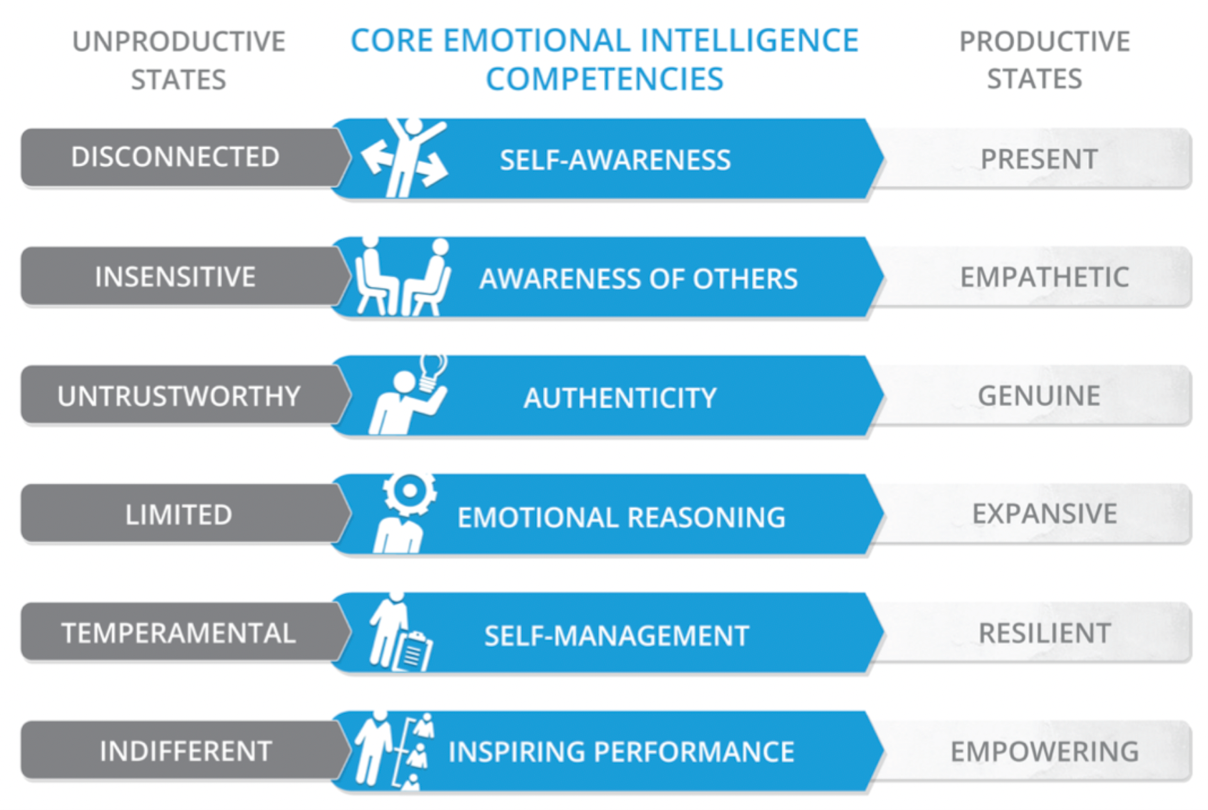
Overall, the Genos model provides a comprehensive framework for understanding the role of emotional intelligence in driving both productive and unproductive states of being. By developing and honing these key tenets of emotional intelligence, individuals and organizations can enhance their effectiveness, resilience, and well-being in various personal and professional contexts.
Chapter 2: Self-Awareness
Self-awareness is widely regarded as the cornerstone of emotional intelligence (EI), playing a pivotal role in shaping how individuals perceive, understand, and manage their emotions, thoughts, and behaviors. At its core, self-awareness involves the ability to recognize and accurately assess one’s own emotions, strengths, weaknesses, values, and motivations.
Understanding self-awareness is essential because it serves as the foundation upon which other aspects of emotional intelligence are built. Without a clear understanding of one’s own emotional landscape, individuals may struggle to regulate their emotions effectively, empathize with others, or navigate social interactions and relationships.
The significance of self-awareness extends beyond individual well-being to encompass personal and professional growth and success. In personal contexts, self-aware individuals are better equipped to cultivate authentic and fulfilling relationships, as they have a deeper understanding of their own needs, boundaries, and communication styles. This heightened self-awareness fosters empathy and mutual understanding, leading to stronger connections with others and greater overall satisfaction in personal relationships.
Moreover, self-awareness is closely linked to resilience and well-being, enabling individuals to navigate life’s challenges with greater ease and adaptability. By understanding their own emotional triggers and coping mechanisms, self-aware individuals can effectively manage stress, regulate their emotions, and maintain balance and perspective even in the face of adversity.
In professional settings, self-awareness is equally critical for success and effectiveness. Employees who possess a high degree of self-awareness can better recognize their strengths and areas for improvement, allowing them to leverage their talents effectively and seek opportunities for growth and development. Additionally, self-awareness enables individuals to communicate more effectively, build rapport with colleagues and clients, and navigate interpersonal dynamics with greater sensitivity and insight.
Leadership effectiveness is also heavily influenced by self-awareness. Leaders who understand their own values, biases, and leadership styles are better equipped to inspire and motivate others, foster collaboration, and drive organizational success. By cultivating self-awareness, leaders can lead with authenticity, empathy, and integrity, earning the trust and respect of their team members and stakeholders.
Overall, the benefits of self-awareness are manifold, both personally and professionally. By developing a deeper understanding of themselves and their emotions, individuals can enhance their relationships, resilience, and effectiveness in various aspects of life. Whether navigating personal relationships, pursuing professional growth, or leading teams and organizations, self-awareness serves as a fundamental building block for success and fulfillment.
Chapter 3: Self-Awareness Practices
Increasing self-awareness is a journey of introspection and self-discovery. Participants can incorporate various personal tips and practices into their daily lives to cultivate greater self-awareness and emotional intelligence.
Firstly, reflection is a powerful tool for enhancing self-awareness. Taking time each day to reflect on one’s thoughts, emotions, and experiences can provide valuable insights into one’s patterns of behavior, triggers, and motivations. Journaling effectively facilitates this process, allowing individuals to document their thoughts and feelings, identify recurring themes, and track their personal growth over time.
Meditation is another valuable practice for increasing self-awareness. By cultivating mindfulness and present-moment awareness through meditation, individuals can develop greater clarity of thought, emotional balance, and self-compassion. Meditation techniques such as focused breathing, body scans, or loving-kindness meditation can help individuals connect with their inner experiences and cultivate a deeper sense of self-awareness.
Being objective is essential in the pursuit of self-awareness. This involves stepping back from one’s biases, assumptions, and preconceptions to see oneself and the world more clearly. Engaging in self-reflection with an objective mindset allows individuals to acknowledge their strengths and weaknesses without judgment, facilitating growth and self-improvement.
Similarly, practicing self-acceptance is crucial for increasing self-awareness. Embracing oneself with kindness and compassion, flaws, and all, is essential for fostering a healthy self-awareness and self-esteem. Adopting a growth mindset, which views challenges and setbacks as opportunities for learning and growth rather than failures, can help individuals approach self-awareness with curiosity and openness rather than fear or self-criticism.
In addition to these foundational practices, there are several specific tips and techniques that individuals can implement to increase their self-awareness:
1. Regularly check in with yourself: Set aside time each day to check in with yourself and assess your thoughts, emotions, and physical sensations. This can be as simple as taking a few minutes to pause and breathe deeply, allowing yourself to become fully present in the moment.
2. Seek feedback from others: Soliciting feedback from trusted friends, family members, or colleagues can provide valuable insights into how others perceive you and your behavior. Be open to constructive criticism and use it as an opportunity for self-reflection and growth.
3. Practice active listening: Paying attention to how you communicate with others and actively listening to their perspectives can enhance your self-awareness by highlighting your communication style, biases, and assumptions.
4. Keep a gratitude journal: Cultivating gratitude can increase self-awareness by fostering a deeper appreciation for the present moment and the positive aspects of your life. Take time each day to write down three things you’re grateful for, no matter how small.
5. Experiment with new experiences: Stepping outside of your comfort zone and trying new things can expand your self-awareness by challenging your assumptions, preferences, and limitations. Be open to new experiences and embrace the opportunity for self-discovery and growth.
By incorporating these tips and practices into their daily lives, participants can cultivate greater self-awareness, emotional intelligence, and personal fulfillment. Remember that self-awareness is an ongoing process, and each individual’s journey will be unique. Stay patient, compassionate, and committed to your personal growth and development.
Chapter 4: Leveraging Others to Increase Self-Awareness
Leveraging others can be a powerful strategy for increasing self-awareness and gaining valuable insights into our behaviors, blind spots, and areas for growth. By seeking feedback from trusted individuals and creating a safe environment for open and honest communication, we can expand our perspective and deepen our understanding of ourselves and others.
One key aspect of leveraging others to increase self-awareness is being open to feedback. This involves recognizing that our current perspective might not always align with reality and acknowledging that others’ perceptions and observations can offer valuable insights we may have overlooked. Adopting a growth mindset, which views feedback as an opportunity for learning and growth rather than a threat to our ego, is essential for maximizing the benefits of leveraging others.
When seeking feedback, it’s important to distinguish between intentions and execution. While our intentions may be positive, the impact of our actions on others may differ from what we intended. By soliciting feedback on our intentions and execution, we can gain a more comprehensive understanding of how our behavior affects others and identify areas for improvement.
Creating a safe environment for seeking feedback is crucial for fostering honest and open discussions. This involves establishing trust, confidentiality, and psychological safety so that individuals feel comfortable sharing their perspectives and insights without fear of judgment or reprisal. Encouraging constructive criticism and reassuring that feedback will be received with openness and gratitude can help create a supportive atmosphere conducive to self-reflection and growth.
Effective strategies for creating a safe environment for feedback include:
Building trust: Invest time and effort in building trusting relationships with those from whom you seek feedback. Demonstrate empathy, respect, and authenticity in your interactions, and be receptive to others’ perspectives and concerns.
Providing context: Clearly communicate why you are seeking feedback, what specific areas you would like to focus on, and how the feedback will be used to support your personal and professional development. Providing context helps ensure that feedback is relevant and actionable.
Offering anonymity: In some cases, offering the option for anonymous feedback can encourage individuals to provide honest and candid input without fear of repercussions. This can be especially helpful in situations where there may be power differentials or sensitive topics at play.
Expressing gratitude: Show appreciation for the time, effort, and insights shared by those who provide feedback. Expressing gratitude reinforces positive behavior and encourages continued participation in the feedback process.
By leveraging others to increase self-awareness and creating a safe environment for feedback, individuals can gain valuable insights, identify blind spots, and make meaningful progress towards personal and professional growth. Remember that seeking feedback is a sign of strength, not weakness, and that embracing feedback with humility and openness is key to unlocking its transformative potential.
Chapter 5: Leveraging Self-Awareness for Goals and Priorities
Leveraging self-awareness is a powerful strategy for moving towards our goals and priorities, both individually and as part of a team. By understanding our strengths, weaknesses, values, and motivations, we can set clear boundaries, manage our emotional triggers, and intentionally align our efforts with our objectives.
One key aspect of leveraging self-awareness to move goals and priorities forward is setting boundaries. This involves clearly defining what is and isn’t acceptable regarding our time, energy, and resources and communicating these boundaries effectively to others. By honoring our boundaries, we can prioritize tasks, activities, and relationships aligned with our goals and values, while minimizing distractions and energy drains.
Knowing our emotional triggers is another important component of leveraging self-awareness. By recognizing the situations, people, or events that tend to evoke strong emotional reactions in us, we can develop strategies for managing our emotions more effectively and responding constructively. This might involve practicing mindfulness, deep breathing, or cognitive reframing techniques to maintain emotional balance and resilience in challenging situations.
Writing down our goals and priorities and tracking our progress towards them is a practical way to leverage self-awareness in pursuit of our objectives. We can maintain focus, motivation, and accountability by clearly articulating what we want to achieve and breaking down our goals into actionable steps. Regularly reviewing our progress allows us to identify areas where we may be falling short and course-correct as needed, leveraging our self-awareness to stay on track and make meaningful progress toward our goals.
Identifying lack of progress, if applicable, is an important aspect of leveraging self-awareness to move goals forward. By honestly assessing our actions, behaviors, and habits, we can pinpoint any obstacles or challenges hindering our progress and take proactive steps to address them. This might involve seeking support or guidance from others, adjusting our approach or mindset, or reevaluating our goals and priorities to ensure they align with our values and aspirations.
Understanding how to leverage self-awareness to move our and our team’s goals and priorities forward requires effective communication, collaboration, and leadership. By fostering a culture of self-awareness within the team, leaders can encourage individuals to reflect on their strengths, weaknesses, and contributions to the team’s objectives. This can lead to greater accountability, alignment, and synergy, as team members leverage their self-awareness to complement each other’s strengths and support each other in areas of growth.
In summary, leveraging self-awareness is a multifaceted process that involves setting boundaries, managing emotional triggers, setting and tracking goals, and identifying and addressing obstacles to progress. By cultivating self-awareness both individually and within the team, we can maximize our potential, enhance our effectiveness, and achieve meaningful results in pursuit of our goals and priorities.
Chapter 6: Self-Management
Self-management is the ability to regulate one’s thoughts, emotions, and behaviors to achieve desired outcomes and effectively navigate various situations and challenges. It involves exercising self-control, resilience, and adaptability in response to internal and external stimuli. Self-awareness plays a crucial role in self-management, serving as the foundation upon which effective self-regulation is built.
The link between self-awareness and self-management is fundamental: the more self-aware individuals are, the easier it becomes to self-manage. Self-awareness provides the necessary insights into one’s emotions, strengths, weaknesses, values, and triggers, which are essential for making informed decisions and taking intentional actions. By understanding their own internal landscape, individuals are better equipped to regulate their thoughts, behaviors, and performance in alignment with their goals and values.
For example, someone who is highly self-aware may recognize when they are experiencing stress or frustration and be able to implement coping strategies such as deep breathing, mindfulness, or time management techniques to regain their composure and focus. Similarly, a self-aware individual may identify patterns of behavior or thought that are hindering their performance or relationships and take proactive steps to address them, such as seeking feedback, setting boundaries, or practicing self-reflection.
Self-management is particularly crucial in a professional context for demonstrating professionalism, resilience, and leadership. Individuals’ adept at self-management are better equipped to handle high-pressure situations, navigate interpersonal dynamics, and maintain a positive attitude and outlook, even in the face of challenges or setbacks. By leveraging their self-awareness to regulate their emotions and behaviors, professionals can “show up” more effectively in their roles, fostering trust, credibility, and productivity.
Moreover, self-management extends beyond the professional realm to encompass personal well-being and fulfillment. Individuals skilled at self-management are better equipped to prioritize their goals and commitments, maintain a healthy work-life balance, and cultivate resilience and self-care practices to sustain their physical, mental, and emotional well-being over the long term. By integrating self-awareness into their self-management practices, individuals can enhance their overall quality of life and fulfillment, personally and professionally.
In summary, self-awareness and self-management are deeply interconnected, with self-awareness serving as the foundation for effective self-regulation and self-management. By understanding their own thoughts, emotions, and behaviors, individuals can more effectively navigate various situations, achieve their goals, and “show up” as their best selves in both professional and personal contexts. Cultivating self-awareness and honing self-management skills are essential components of personal and professional development, enabling individuals to thrive and succeed in all aspects of their lives.
Chapter 7: Why Self-Management Matters
Self-management is a critical skill that empowers individuals to take control of their actions, emotions, and behaviors, leading to a host of personal and professional benefits. At its core, self-management involves regulating one’s thoughts, impulses, and reactions to achieve desired outcomes and navigate various situations effectively.
One primary reason self-management matters is that it empowers individuals to take ownership of their actions and choices. By developing self-awareness and self-discipline, individuals can cultivate a greater sense of agency and autonomy in their lives rather than being driven by external circumstances or impulses. This sense of control fosters a greater sense of empowerment and confidence, enabling individuals to pursue their goals and aspirations with clarity and purpose.
Furthermore, self-management is closely linked to productivity and performance. Individuals skilled at managing their time, energy, and resources are better equipped to prioritize tasks, set realistic goals, and maintain focus and momentum. By avoiding procrastination, minimizing distractions, and practicing effective time management techniques, individuals can optimize their productivity and achieve greater results in both their personal and professional endeavors.
In addition to enhancing productivity, self-management also contributes to developing strong relationships and interpersonal skills. Individuals adept at regulating their emotions and behaviors are better equipped to communicate effectively, resolve conflicts, and collaborate with others. By maintaining a positive attitude, exercising empathy, and demonstrating self-control in challenging situations, individuals can foster trust, respect, and rapport in their relationships, both personally and professionally.
Moreover, self-management plays a crucial role in promoting overall well-being and resilience. Individuals who are skilled at managing stress, maintaining a healthy work-life balance, and practicing self-care techniques are better equipped to cope with adversity and thrive in the face of challenges. By prioritizing their physical, mental, and emotional health, individuals can sustain their energy and enthusiasm over the long term, leading to greater satisfaction and fulfillment in all aspects of their lives.
From a professional perspective, self-management is highly valued by employers and can lead to greater success and advancement in the workplace. Professionals who demonstrate strong self-management skills are seen as reliable, adaptable, and capable of taking on leadership roles and responsibilities. By exhibiting professionalism, self-discipline, and accountability in their work, individuals can enhance their credibility, reputation, and opportunities for career growth and advancement.
In summary, self-management matters because it empowers individuals to take control of their actions and emotions, leading to higher productivity, stronger relationships, and greater personal and professional success. By cultivating self-awareness, self-discipline, and resilience, individuals can navigate life’s challenges with confidence and grace, achieving their goals and aspirations while maintaining a sense of well-being and fulfillment.
Chapter 8: Increasing Self-Management
Increasing self-management involves a combination of proactive and reactive techniques aimed at regulating emotions, managing stress, and enhancing overall well-being. Understanding the science behind self-management can provide valuable insights into how our brains respond to stress and emotions, empowering us to take control of our reactions and behaviors.
One key aspect of increasing self-management is recognizing the role of the amygdala, the brain’s emotional center, in triggering the body’s stress response. When the amygdala perceives a threat, it can initiate a “fight or flight” response, leading to heightened arousal, emotional reactivity, and impaired decision-making. By understanding how the amygdala functions, individuals can learn to recognize when it is being “hijacked” by stress and implement strategies to regain control.
Proactive techniques for increasing self-management involve preemptive measures to reduce stress and maintain emotional balance. This may include practices such as mindfulness meditation, deep breathing exercises, and progressive muscle relaxation, which have been shown to activate the body’s relaxation response and counteract the effects of stress. By incorporating these practices into daily routines, individuals can lower their stress baseline and cultivate greater resilience in the face of challenges.
Reactive techniques for increasing self-management involve strategies for managing stress in the moment and preventing it from escalating into a full-blown crisis. This may include techniques such as cognitive reframing, where individuals challenge negative thoughts and perspectives, or behavioral interventions such as taking a break, seeking social support, or engaging in physical activity to reduce tension and release pent-up energy.
Brainstorming ways to decrease stress can also be an effective approach for increasing self-management. This may involve identifying triggers and stressors in one’s environment and brainstorming practical solutions or coping strategies to address them. For example, individuals may explore time management techniques, boundary-setting strategies, or lifestyle changes such as regular exercise, adequate sleep, and healthy eating habits to reduce stress and enhance overall well-being.
Ultimately, increasing self-management requires a combination of self-awareness, self-discipline, and resilience. By understanding the science behind stress and emotions, individuals can learn to recognize and regulate their reactions more effectively, empowering them to reset their baseline and cultivate a calmer, more open, and more confident demeanor. Through proactive and reactive techniques, individuals can develop the skills and strategies needed to navigate life’s challenges with grace and resilience, achieving greater success and fulfillment in the process.
Chapter 9: Systems for Self-Management
Building effective systems at work is essential for enhancing self-management skills and optimizing productivity and performance. By implementing practical strategies and routines, individuals can streamline their workflow, manage their time more effectively, and maintain focus and resilience in the face of challenges. Here are some tips to leverage in building effective systems at work:
1. Set early internal deadlines: Setting early internal deadlines for tasks and projects can help individuals manage their time more effectively and avoid last-minute rushes. By breaking down larger projects into smaller, manageable tasks and assigning deadlines to each, individuals can maintain momentum and accountability, reducing stress and increasing productivity.
2. Build in meeting buffers: Building buffers between meetings or appointments allows individuals to transition between tasks more smoothly and reduces the likelihood of feeling overwhelmed or rushed. By scheduling short breaks or buffer periods in their calendars, individuals can recharge, regroup, and prepare for the next task or meeting, enhancing their overall efficiency and effectiveness.
3. Time block job tasks: Time blocking involves allocating specific blocks of time to focus on particular tasks or projects, free from distractions or interruptions. By blocking out dedicated time slots in their calendars for focused work, individuals can prioritize their most important tasks and ensure they have the time and space needed to complete them effectively.
4. Take intentional breaks: Taking intentional breaks throughout the workday is crucial for maintaining energy, focus, and well-being. Whether it’s taking a short walk, practicing deep breathing exercises, or simply pausing to be still and recharge, incorporating regular breaks into the work routine can help individuals reset, reduce stress, and increase resilience.
5. Implement task management tools: Utilizing task management tools and techniques can help individuals stay organized, prioritize tasks, and track progress towards goals. Whether it’s using a digital task manager, a Kanban board, or a simple to-do list, having a clear system for managing tasks and deadlines can help individuals stay on track and avoid feeling overwhelmed.
6. Practice time management techniques: Time management techniques such as the Pomodoro Technique, time blocking, or the Eisenhower Matrix can help individuals prioritize tasks, manage distractions, and make the most of their time. By adopting effective time management strategies, individuals can maximize their productivity and accomplish more with less effort.
7. Set boundaries: Setting boundaries around work hours, availability, and workload is crucial for maintaining work-life balance and preventing burnout. By communicating clear expectations and limits to colleagues and supervisors, individuals can protect their time and energy, prioritize self-care, and avoid overcommitting themselves.
8. Reflect and adjust: Regularly reflecting on one’s workflow, productivity habits, and self-management strategies is essential for continuous improvement. By taking time to evaluate what’s working well and what could be improved, individuals can identify opportunities for growth, make necessary adjustments, and refine their systems for greater effectiveness over time.
Incorporating these tips and strategies into their work routines can help individuals build effective systems that support their self-management skills, enhance productivity, and foster greater well-being and satisfaction in their professional lives. By prioritizing organization, time management, and self-care, individuals can optimize their performance and achieve their goals with confidence and resilience.
Chapter 10: Manage Stress Through Self-Awareness and Self-Management
Leveraging self-awareness and self-management is key to effectively handling stress and reducing overall stress levels. By understanding one’s emotions, triggers, and reactions through self-awareness, and implementing proactive strategies for regulating thoughts and behaviors through self-management, individuals can cultivate greater resilience and cope more effectively with stressful situations.
One of the primary benefits of leveraging self-awareness and self-management to handle stress is decreasing one’s stress baseline over time. By developing a deeper understanding of their own stressors, coping mechanisms, and stress responses, individuals can identify patterns and triggers that contribute to their stress levels. With this awareness, they can implement proactive strategies to manage stress more effectively, such as setting boundaries, practicing mindfulness, or engaging in stress-reducing activities.
Furthermore, by honing their self-management skills, individuals can build resilience and develop healthier coping mechanisms for dealing with stress when it arises. For example, individuals who are skilled at managing their time and priorities may feel less overwhelmed by competing demands. At the same time, those who practice self-care techniques such as deep breathing or relaxation exercises may experience greater emotional stability and calmness in the face of stressors.
The benefits of leveraging self-awareness and self-management to handle stress extend beyond individual well-being to encompass improved interpersonal relationships and professional effectiveness. By managing stress more effectively, individuals can maintain a positive attitude, communicate more clearly, and collaborate more effectively with others, leading to stronger relationships and greater productivity in the workplace.
Moreover, by reducing their overall stress levels, individuals can experience various physical and mental health benefits, including lower blood pressure, improved immune function, and better sleep quality. By prioritizing self-awareness and self-management in their daily lives, individuals can enhance their overall well-being and resilience, enabling them to thrive in the face of work and life challenges.
In summary, leveraging self-awareness and self-management to handle stress is essential for reducing overall stress levels and coping more effectively with stressful situations. By understanding their own emotions, triggers, and reactions and implementing proactive strategies for regulating thoughts and behaviors, individuals can cultivate greater resilience, improve interpersonal relationships, and enhance their overall well-being and effectiveness. Through practice and commitment to self-awareness and self-management, individuals can build the skills and habits needed to navigate life’s challenges with grace and resilience.
Chapter 11: Decision-Making Through Self-Awareness and Self-Management
Leveraging self-awareness and self-management can significantly enhance decision-making skills, leading to more intentional, effective, and fulfilling choices. By understanding one’s own values, priorities, strengths, and limitations through self-awareness, and by cultivating self-discipline, emotional regulation, and critical thinking through self-management, individuals can make decisions with greater clarity, confidence, and impact.
One of the key benefits of leveraging self-awareness and self-management to improve decision-making is the ability to cultivate a calm state of mind. By developing mindfulness and emotional regulation skills, individuals can reduce the influence of stress, impulsivity, and external pressures on their decision-making process. This allows for clearer, more rational thinking, enabling individuals to make decisions from a place of inner calm and stability rather than reacting impulsively or being swayed by emotion.
Moreover, by honing their self-awareness, individuals can make decisions that are more aligned with their values, goals, and authentic selves. By understanding their own motivations, desires, and preferences, individuals can make choices that reflect who they are and what they truly want, leading to greater fulfillment and satisfaction in the long run.
Self-management also plays a crucial role in improving decision-making skills by fostering intentional, deliberate thinking and behavior. By practicing self-discipline and impulse control, individuals can resist the temptation to make hasty or rash decisions and instead take the time to gather information, weigh options, and consider potential consequences. This leads to more thoughtful, strategic decision-making that is based on logic, reason, and careful consideration of all relevant factors.
Furthermore, leveraging self-awareness and self-management can lead to more expansive, creative thinking when it comes to decision-making. By cultivating a growth mindset and openness to new ideas, individuals can explore a wider range of possibilities and perspectives, allowing for more innovative and effective solutions to emerge. This expansive thinking enables individuals to see beyond immediate obstacles or limitations and consider alternative approaches or outcomes, leading to more successful and impactful decisions.
In summary, leveraging self-awareness and self-management to improve decision-making skills offers a range of benefits, including a calm state of mind, intentional decision-making, and expansive thinking. By understanding oneself more deeply and managing one’s thoughts, emotions, and behaviors more effectively, individuals can make decisions that are more aligned with their values, goals, and authentic selves, leading to greater fulfillment, success, and well-being in all aspects of life. Through practice and commitment to self-awareness and self-management, individuals can enhance their decision-making skills and navigate life’s challenges with confidence, clarity, and purpose.
Chapter 12: Actions and Behaviors
Understanding how our actions and behaviors impact others in the workplace, particularly as leaders, is crucial for fostering a positive and productive work environment. By increasing self-awareness and self-management skills, leaders can positively influence themselves and the people they lead and work with, across all levels and functions of the organization.
Firstly, it’s important to recognize that leaders serve as role models for their teams, and their actions and behaviors set the tone for the entire organization. When leaders demonstrate self-awareness and self-management, they create a culture of accountability, transparency, and trust, which fosters greater collaboration, innovation, and performance.
Increasing self-awareness allows leaders to better understand their own strengths, weaknesses, and areas for growth, enabling them to lead with authenticity and integrity. By recognizing their impact on others and taking responsibility for their actions, self-aware leaders can build stronger relationships, inspire trust, and create a sense of psychological safety within their teams.
Moreover, self-awareness enables leaders to better understand the needs, motivations, and aspirations of their team members, leading to more effective communication, coaching, and development opportunities. By cultivating empathy and emotional intelligence, leaders can create a supportive and empowering work environment where everyone feels valued, respected, and motivated to perform at their best.
Similarly, self-management skills are essential for leaders to navigate the complexities and challenges of leadership effectively. By regulating their thoughts, emotions, and behaviors, leaders can make more intentional decisions, manage stress and pressure, and maintain a calm and composed demeanor, even in the face of adversity.
Self-management also enables leaders to “show up” better in various aspects of their roles, from leading meetings and managing conflicts to making strategic decisions. By staying focused, adaptable, and resilient, leaders can inspire confidence and trust in their teams, driving engagement, commitment, and performance.
Furthermore, increasing self-awareness and self-management skills has a direct impact on employee engagement and business outcomes. Research consistently shows that organizations with highly engaged employees experience higher levels of productivity, profitability, and customer satisfaction. Engaged employees are also more likely to go above and beyond in their roles, leading to greater innovation, creativity, and success for the organization as a whole.
In summary, increasing self-awareness and self-management skills is essential for leaders to positively impact themselves and the people they lead and work with. By cultivating these skills, leaders can create a culture of trust, transparency, and collaboration, driving employee engagement and business success. Through self-awareness and self-management, leaders can “show up” as their best selves, inspiring and empowering their teams to achieve their full potential and drive meaningful results.
Curriculum
Emotionally Intelligent Leadership – Workshop 1 – Increasing Self-Awareness
- Introduction to Emotional Intelligence
- Self-Awareness
- Self-Awareness Practices
- Leveraging Others to Increase Self-Awareness
- Leveraging Self-Awareness for Goals and Priorities
- Self-Management
- Why Self-Management Matters
- Increasing Self-Management
- Systems for Self-Management
- Manage Stress Through Self-Awareness and Self-Management
- Decision-Making Through Self-Awareness and Self-Management
- Actions and Behaviors
Distance Learning
Introduction
Welcome to Appleton Greene and thank you for enrolling on the Emotionally Intelligent Leadership corporate training program. You will be learning through our unique facilitation via distance-learning method, which will enable you to practically implement everything that you learn academically. The methods and materials used in your program have been designed and developed to ensure that you derive the maximum benefits and enjoyment possible. We hope that you find the program challenging and fun to do. However, if you have never been a distance-learner before, you may be experiencing some trepidation at the task before you. So we will get you started by giving you some basic information and guidance on how you can make the best use of the modules, how you should manage the materials and what you should be doing as you work through them. This guide is designed to point you in the right direction and help you to become an effective distance-learner. Take a few hours or so to study this guide and your guide to tutorial support for students, while making notes, before you start to study in earnest.
Study environment
You will need to locate a quiet and private place to study, preferably a room where you can easily be isolated from external disturbances or distractions. Make sure the room is well-lit and incorporates a relaxed, pleasant feel. If you can spoil yourself within your study environment, you will have much more of a chance to ensure that you are always in the right frame of mind when you do devote time to study. For example, a nice fire, the ability to play soft soothing background music, soft but effective lighting, perhaps a nice view if possible and a good size desk with a comfortable chair. Make sure that your family know when you are studying and understand your study rules. Your study environment is very important. The ideal situation, if at all possible, is to have a separate study, which can be devoted to you. If this is not possible then you will need to pay a lot more attention to developing and managing your study schedule, because it will affect other people as well as yourself. The better your study environment, the more productive you will be.
Study tools & rules
Try and make sure that your study tools are sufficient and in good working order. You will need to have access to a computer, scanner and printer, with access to the internet. You will need a very comfortable chair, which supports your lower back, and you will need a good filing system. It can be very frustrating if you are spending valuable study time trying to fix study tools that are unreliable, or unsuitable for the task. Make sure that your study tools are up to date. You will also need to consider some study rules. Some of these rules will apply to you and will be intended to help you to be more disciplined about when and how you study. This distance-learning guide will help you and after you have read it you can put some thought into what your study rules should be. You will also need to negotiate some study rules for your family, friends or anyone who lives with you. They too will need to be disciplined in order to ensure that they can support you while you study. It is important to ensure that your family and friends are an integral part of your study team. Having their support and encouragement can prove to be a crucial contribution to your successful completion of the program. Involve them in as much as you can.
Successful distance-learning
Distance-learners are freed from the necessity of attending regular classes or workshops, since they can study in their own way, at their own pace and for their own purposes. But unlike traditional internal training courses, it is the student’s responsibility, with a distance-learning program, to ensure that they manage their own study contribution. This requires strong self-discipline and self-motivation skills and there must be a clear will to succeed. Those students who are used to managing themselves, are good at managing others and who enjoy working in isolation, are more likely to be good distance-learners. It is also important to be aware of the main reasons why you are studying and of the main objectives that you are hoping to achieve as a result. You will need to remind yourself of these objectives at times when you need to motivate yourself. Never lose sight of your long-term goals and your short-term objectives. There is nobody available here to pamper you, or to look after you, or to spoon-feed you with information, so you will need to find ways to encourage and appreciate yourself while you are studying. Make sure that you chart your study progress, so that you can be sure of your achievements and re-evaluate your goals and objectives regularly.
Self-assessment
Appleton Greene training programs are in all cases post-graduate programs. Consequently, you should already have obtained a business-related degree and be an experienced learner. You should therefore already be aware of your study strengths and weaknesses. For example, which time of the day are you at your most productive? Are you a lark or an owl? What study methods do you respond to the most? Are you a consistent learner? How do you discipline yourself? How do you ensure that you enjoy yourself while studying? It is important to understand yourself as a learner and so some self-assessment early on will be necessary if you are to apply yourself correctly. Perform a SWOT analysis on yourself as a student. List your internal strengths and weaknesses as a student and your external opportunities and threats. This will help you later on when you are creating a study plan. You can then incorporate features within your study plan that can ensure that you are playing to your strengths, while compensating for your weaknesses. You can also ensure that you make the most of your opportunities, while avoiding the potential threats to your success.
Accepting responsibility as a student
Training programs invariably require a significant investment, both in terms of what they cost and in the time that you need to contribute to study and the responsibility for successful completion of training programs rests entirely with the student. This is never more apparent than when a student is learning via distance-learning. Accepting responsibility as a student is an important step towards ensuring that you can successfully complete your training program. It is easy to instantly blame other people or factors when things go wrong. But the fact of the matter is that if a failure is your failure, then you have the power to do something about it, it is entirely in your own hands. If it is always someone else’s failure, then you are powerless to do anything about it. All students study in entirely different ways, this is because we are all individuals and what is right for one student, is not necessarily right for another. In order to succeed, you will have to accept personal responsibility for finding a way to plan, implement and manage a personal study plan that works for you. If you do not succeed, you only have yourself to blame.
Planning
By far the most critical contribution to stress, is the feeling of not being in control. In the absence of planning we tend to be reactive and can stumble from pillar to post in the hope that things will turn out fine in the end. Invariably they don’t! In order to be in control, we need to have firm ideas about how and when we want to do things. We also need to consider as many possible eventualities as we can, so that we are prepared for them when they happen. Prescriptive Change, is far easier to manage and control, than Emergent Change. The same is true with distance-learning. It is much easier and much more enjoyable, if you feel that you are in control and that things are going to plan. Even when things do go wrong, you are prepared for them and can act accordingly without any unnecessary stress. It is important therefore that you do take time to plan your studies properly.
Management
Once you have developed a clear study plan, it is of equal importance to ensure that you manage the implementation of it. Most of us usually enjoy planning, but it is usually during implementation when things go wrong. Targets are not met and we do not understand why. Sometimes we do not even know if targets are being met. It is not enough for us to conclude that the study plan just failed. If it is failing, you will need to understand what you can do about it. Similarly if your study plan is succeeding, it is still important to understand why, so that you can improve upon your success. You therefore need to have guidelines for self-assessment so that you can be consistent with performance improvement throughout the program. If you manage things correctly, then your performance should constantly improve throughout the program.
Study objectives & tasks
The first place to start is developing your program objectives. These should feature your reasons for undertaking the training program in order of priority. Keep them succinct and to the point in order to avoid confusion. Do not just write the first things that come into your head because they are likely to be too similar to each other. Make a list of possible departmental headings, such as: Customer Service; E-business; Finance; Globalization; Human Resources; Technology; Legal; Management; Marketing and Production. Then brainstorm for ideas by listing as many things that you want to achieve under each heading and later re-arrange these things in order of priority. Finally, select the top item from each department heading and choose these as your program objectives. Try and restrict yourself to five because it will enable you to focus clearly. It is likely that the other things that you listed will be achieved if each of the top objectives are achieved. If this does not prove to be the case, then simply work through the process again.
Study forecast
As a guide, the Appleton Greene Emotionally Intelligent Leadership corporate training program should take 12-18 months to complete, depending upon your availability and current commitments. The reason why there is such a variance in time estimates is because every student is an individual, with differing productivity levels and different commitments. These differentiations are then exaggerated by the fact that this is a distance-learning program, which incorporates the practical integration of academic theory as an as a part of the training program. Consequently all of the project studies are real, which means that important decisions and compromises need to be made. You will want to get things right and will need to be patient with your expectations in order to ensure that they are. We would always recommend that you are prudent with your own task and time forecasts, but you still need to develop them and have a clear indication of what are realistic expectations in your case. With reference to your time planning: consider the time that you can realistically dedicate towards study with the program every week; calculate how long it should take you to complete the program, using the guidelines featured here; then break the program down into logical modules and allocate a suitable proportion of time to each of them, these will be your milestones; you can create a time plan by using a spreadsheet on your computer, or a personal organizer such as MS Outlook, you could also use a financial forecasting software; break your time forecasts down into manageable chunks of time, the more specific you can be, the more productive and accurate your time management will be; finally, use formulas where possible to do your time calculations for you, because this will help later on when your forecasts need to change in line with actual performance. With reference to your task planning: refer to your list of tasks that need to be undertaken in order to achieve your program objectives; with reference to your time plan, calculate when each task should be implemented; remember that you are not estimating when your objectives will be achieved, but when you will need to focus upon implementing the corresponding tasks; you also need to ensure that each task is implemented in conjunction with the associated training modules which are relevant; then break each single task down into a list of specific to do’s, say approximately ten to do’s for each task and enter these into your study plan; once again you could use MS Outlook to incorporate both your time and task planning and this could constitute your study plan; you could also use a project management software like MS Project. You should now have a clear and realistic forecast detailing when you can expect to be able to do something about undertaking the tasks to achieve your program objectives.
Performance management
It is one thing to develop your study forecast, it is quite another to monitor your progress. Ultimately it is less important whether you achieve your original study forecast and more important that you update it so that it constantly remains realistic in line with your performance. As you begin to work through the program, you will begin to have more of an idea about your own personal performance and productivity levels as a distance-learner. Once you have completed your first study module, you should re-evaluate your study forecast for both time and tasks, so that they reflect your actual performance level achieved. In order to achieve this you must first time yourself while training by using an alarm clock. Set the alarm for hourly intervals and make a note of how far you have come within that time. You can then make a note of your actual performance on your study plan and then compare your performance against your forecast. Then consider the reasons that have contributed towards your performance level, whether they are positive or negative and make a considered adjustment to your future forecasts as a result. Given time, you should start achieving your forecasts regularly.
With reference to time management: time yourself while you are studying and make a note of the actual time taken in your study plan; consider your successes with time-efficiency and the reasons for the success in each case and take this into consideration when reviewing future time planning; consider your failures with time-efficiency and the reasons for the failures in each case and take this into consideration when reviewing future time planning; re-evaluate your study forecast in relation to time planning for the remainder of your training program to ensure that you continue to be realistic about your time expectations. You need to be consistent with your time management, otherwise you will never complete your studies. This will either be because you are not contributing enough time to your studies, or you will become less efficient with the time that you do allocate to your studies. Remember, if you are not in control of your studies, they can just become yet another cause of stress for you.
With reference to your task management: time yourself while you are studying and make a note of the actual tasks that you have undertaken in your study plan; consider your successes with task-efficiency and the reasons for the success in each case; take this into consideration when reviewing future task planning; consider your failures with task-efficiency and the reasons for the failures in each case and take this into consideration when reviewing future task planning; re-evaluate your study forecast in relation to task planning for the remainder of your training program to ensure that you continue to be realistic about your task expectations. You need to be consistent with your task management, otherwise you will never know whether you are achieving your program objectives or not.
Keeping in touch
You will have access to qualified and experienced professors and tutors who are responsible for providing tutorial support for your particular training program. So don’t be shy about letting them know how you are getting on. We keep electronic records of all tutorial support emails so that professors and tutors can review previous correspondence before considering an individual response. It also means that there is a record of all communications between you and your professors and tutors and this helps to avoid any unnecessary duplication, misunderstanding, or misinterpretation. If you have a problem relating to the program, share it with them via email. It is likely that they have come across the same problem before and are usually able to make helpful suggestions and steer you in the right direction. To learn more about when and how to use tutorial support, please refer to the Tutorial Support section of this student information guide. This will help you to ensure that you are making the most of tutorial support that is available to you and will ultimately contribute towards your success and enjoyment with your training program.
Work colleagues and family
You should certainly discuss your program study progress with your colleagues, friends and your family. Appleton Greene training programs are very practical. They require you to seek information from other people, to plan, develop and implement processes with other people and to achieve feedback from other people in relation to viability and productivity. You will therefore have plenty of opportunities to test your ideas and enlist the views of others. People tend to be sympathetic towards distance-learners, so don’t bottle it all up in yourself. Get out there and share it! It is also likely that your family and colleagues are going to benefit from your labors with the program, so they are likely to be much more interested in being involved than you might think. Be bold about delegating work to those who might benefit themselves. This is a great way to achieve understanding and commitment from people who you may later rely upon for process implementation. Share your experiences with your friends and family.
Making it relevant
The key to successful learning is to make it relevant to your own individual circumstances. At all times you should be trying to make bridges between the content of the program and your own situation. Whether you achieve this through quiet reflection or through interactive discussion with your colleagues, client partners or your family, remember that it is the most important and rewarding aspect of translating your studies into real self-improvement. You should be clear about how you want the program to benefit you. This involves setting clear study objectives in relation to the content of the course in terms of understanding, concepts, completing research or reviewing activities and relating the content of the modules to your own situation. Your objectives may understandably change as you work through the program, in which case you should enter the revised objectives on your study plan so that you have a permanent reminder of what you are trying to achieve, when and why.
Distance-learning check-list
Prepare your study environment, your study tools and rules.
Undertake detailed self-assessment in terms of your ability as a learner.
Create a format for your study plan.
Consider your study objectives and tasks.
Create a study forecast.
Assess your study performance.
Re-evaluate your study forecast.
Be consistent when managing your study plan.
Use your Appleton Greene Certified Learning Provider (CLP) for tutorial support.
Make sure you keep in touch with those around you.

Tutorial Support
Programs
Appleton Greene uses standard and bespoke corporate training programs as vessels to transfer business process improvement knowledge into the heart of our clients’ organizations. Each individual program focuses upon the implementation of a specific business process, which enables clients to easily quantify their return on investment. There are hundreds of established Appleton Greene corporate training products now available to clients within customer services, e-business, finance, globalization, human resources, information technology, legal, management, marketing and production. It does not matter whether a client’s employees are located within one office, or an unlimited number of international offices, we can still bring them together to learn and implement specific business processes collectively. Our approach to global localization enables us to provide clients with a truly international service with that all important personal touch. Appleton Greene corporate training programs can be provided virtually or locally and they are all unique in that they individually focus upon a specific business function. They are implemented over a sustainable period of time and professional support is consistently provided by qualified learning providers and specialist consultants.
Support available
You will have a designated Certified Learning Provider (CLP) and an Accredited Consultant and we encourage you to communicate with them as much as possible. In all cases tutorial support is provided online because we can then keep a record of all communications to ensure that tutorial support remains consistent. You would also be forwarding your work to the tutorial support unit for evaluation and assessment. You will receive individual feedback on all of the work that you undertake on a one-to-one basis, together with specific recommendations for anything that may need to be changed in order to achieve a pass with merit or a pass with distinction and you then have as many opportunities as you may need to re-submit project studies until they meet with the required standard. Consequently the only reason that you should really fail (CLP) is if you do not do the work. It makes no difference to us whether a student takes 12 months or 18 months to complete the program, what matters is that in all cases the same quality standard will have been achieved.
Support Process
Please forward all of your future emails to the designated (CLP) Tutorial Support Unit email address that has been provided and please do not duplicate or copy your emails to other AGC email accounts as this will just cause unnecessary administration. Please note that emails are always answered as quickly as possible but you will need to allow a period of up to 20 business days for responses to general tutorial support emails during busy periods, because emails are answered strictly within the order in which they are received. You will also need to allow a period of up to 30 business days for the evaluation and assessment of project studies. This does not include weekends or public holidays. Please therefore kindly allow for this within your time planning. All communications are managed online via email because it enables tutorial service support managers to review other communications which have been received before responding and it ensures that there is a copy of all communications retained on file for future reference. All communications will be stored within your personal (CLP) study file here at Appleton Greene throughout your designated study period. If you need any assistance or clarification at any time, please do not hesitate to contact us by forwarding an email and remember that we are here to help. If you have any questions, please list and number your questions succinctly and you can then be sure of receiving specific answers to each and every query.
Time Management
It takes approximately 1 Year to complete the Emotionally Intelligent Leadership corporate training program, incorporating 12 x 6-hour monthly workshops. Each student will also need to contribute approximately 4 hours per week over 1 Year of their personal time. Students can study from home or work at their own pace and are responsible for managing their own study plan. There are no formal examinations and students are evaluated and assessed based upon their project study submissions, together with the quality of their internal analysis and supporting documents. They can contribute more time towards study when they have the time to do so and can contribute less time when they are busy. All students tend to be in full time employment while studying and the Emotionally Intelligent Leadership program is purposely designed to accommodate this, so there is plenty of flexibility in terms of time management. It makes no difference to us at Appleton Greene, whether individuals take 12-18 months to complete this program. What matters is that in all cases the same standard of quality will have been achieved with the standard and bespoke programs that have been developed.
Distance Learning Guide
The distance learning guide should be your first port of call when starting your training program. It will help you when you are planning how and when to study, how to create the right environment and how to establish the right frame of mind. If you can lay the foundations properly during the planning stage, then it will contribute to your enjoyment and productivity while training later. The guide helps to change your lifestyle in order to accommodate time for study and to cultivate good study habits. It helps you to chart your progress so that you can measure your performance and achieve your goals. It explains the tools that you will need for study and how to make them work. It also explains how to translate academic theory into practical reality. Spend some time now working through your distance learning guide and make sure that you have firm foundations in place so that you can make the most of your distance learning program. There is no requirement for you to attend training workshops or classes at Appleton Greene offices. The entire program is undertaken online, program course manuals and project studies are administered via the Appleton Greene web site and via email, so you are able to study at your own pace and in the comfort of your own home or office as long as you have a computer and access to the internet.
How To Study
The how to study guide provides students with a clear understanding of the Appleton Greene facilitation via distance learning training methods and enables students to obtain a clear overview of the training program content. It enables students to understand the step-by-step training methods used by Appleton Greene and how course manuals are integrated with project studies. It explains the research and development that is required and the need to provide evidence and references to support your statements. It also enables students to understand precisely what will be required of them in order to achieve a pass with merit and a pass with distinction for individual project studies and provides useful guidance on how to be innovative and creative when developing your Unique Program Proposition (UPP).
Tutorial Support
Tutorial support for the Appleton Greene Emotionally Intelligent Leadership corporate training program is provided online either through the Appleton Greene Client Support Portal (CSP), or via email. All tutorial support requests are facilitated by a designated Program Administration Manager (PAM). They are responsible for deciding which professor or tutor is the most appropriate option relating to the support required and then the tutorial support request is forwarded onto them. Once the professor or tutor has completed the tutorial support request and answered any questions that have been asked, this communication is then returned to the student via email by the designated Program Administration Manager (PAM). This enables all tutorial support, between students, professors and tutors, to be facilitated by the designated Program Administration Manager (PAM) efficiently and securely through the email account. You will therefore need to allow a period of up to 20 business days for responses to general support queries and up to 30 business days for the evaluation and assessment of project studies, because all tutorial support requests are answered strictly within the order in which they are received. This does not include weekends or public holidays. Consequently you need to put some thought into the management of your tutorial support procedure in order to ensure that your study plan is feasible and to obtain the maximum possible benefit from tutorial support during your period of study. Please retain copies of your tutorial support emails for future reference. Please ensure that ALL of your tutorial support emails are set out using the format as suggested within your guide to tutorial support. Your tutorial support emails need to be referenced clearly to the specific part of the course manual or project study which you are working on at any given time. You also need to list and number any questions that you would like to ask, up to a maximum of five questions within each tutorial support email. Remember the more specific you can be with your questions the more specific your answers will be too and this will help you to avoid any unnecessary misunderstanding, misinterpretation, or duplication. The guide to tutorial support is intended to help you to understand how and when to use support in order to ensure that you get the most out of your training program. Appleton Greene training programs are designed to enable you to do things for yourself. They provide you with a structure or a framework and we use tutorial support to facilitate students while they practically implement what they learn. In other words, we are enabling students to do things for themselves. The benefits of distance learning via facilitation are considerable and are much more sustainable in the long-term than traditional short-term knowledge sharing programs. Consequently you should learn how and when to use tutorial support so that you can maximize the benefits from your learning experience with Appleton Greene. This guide describes the purpose of each training function and how to use them and how to use tutorial support in relation to each aspect of the training program. It also provides useful tips and guidance with regard to best practice.
Tutorial Support Tips
Students are often unsure about how and when to use tutorial support with Appleton Greene. This Tip List will help you to understand more about how to achieve the most from using tutorial support. Refer to it regularly to ensure that you are continuing to use the service properly. Tutorial support is critical to the success of your training experience, but it is important to understand when and how to use it in order to maximize the benefit that you receive. It is no coincidence that those students who succeed are those that learn how to be positive, proactive and productive when using tutorial support.
Be positive and friendly with your tutorial support emails
Remember that if you forward an email to the tutorial support unit, you are dealing with real people. “Do unto others as you would expect others to do unto you”. If you are positive, complimentary and generally friendly in your emails, you will generate a similar response in return. This will be more enjoyable, productive and rewarding for you in the long-term.
Think about the impression that you want to create
Every time that you communicate, you create an impression, which can be either positive or negative, so put some thought into the impression that you want to create. Remember that copies of all tutorial support emails are stored electronically and tutors will always refer to prior correspondence before responding to any current emails. Over a period of time, a general opinion will be arrived at in relation to your character, attitude and ability. Try to manage your own frustrations, mood swings and temperament professionally, without involving the tutorial support team. Demonstrating frustration or a lack of patience is a weakness and will be interpreted as such. The good thing about communicating in writing, is that you will have the time to consider your content carefully, you can review it and proof-read it before sending your email to Appleton Greene and this should help you to communicate more professionally, consistently and to avoid any unnecessary knee-jerk reactions to individual situations as and when they may arise. Please also remember that the CLP Tutorial Support Unit will not just be responsible for evaluating and assessing the quality of your work, they will also be responsible for providing recommendations to other learning providers and to client contacts within the Appleton Greene global client network, so do be in control of your own emotions and try to create a good impression.
Remember that quality is preferred to quantity
Please remember that when you send an email to the tutorial support team, you are not using Twitter or Text Messaging. Try not to forward an email every time that you have a thought. This will not prove to be productive either for you or for the tutorial support team. Take time to prepare your communications properly, as if you were writing a professional letter to a business colleague and make a list of queries that you are likely to have and then incorporate them within one email, say once every month, so that the tutorial support team can understand more about context, application and your methodology for study. Get yourself into a consistent routine with your tutorial support requests and use the tutorial support template provided with ALL of your emails. The (CLP) Tutorial Support Unit will not spoon-feed you with information. They need to be able to evaluate and assess your tutorial support requests carefully and professionally.
Be specific about your questions in order to receive specific answers
Try not to write essays by thinking as you are writing tutorial support emails. The tutorial support unit can be unclear about what in fact you are asking, or what you are looking to achieve. Be specific about asking questions that you want answers to. Number your questions. You will then receive specific answers to each and every question. This is the main purpose of tutorial support via email.
Keep a record of your tutorial support emails
It is important that you keep a record of all tutorial support emails that are forwarded to you. You can then refer to them when necessary and it avoids any unnecessary duplication, misunderstanding, or misinterpretation.
Individual training workshops or telephone support
Please be advised that Appleton Greene does not provide separate or individual tutorial support meetings, workshops, or provide telephone support for individual students. Appleton Greene is an equal opportunities learning and service provider and we are therefore understandably bound to treat all students equally. We cannot therefore broker special financial or study arrangements with individual students regardless of the circumstances. All tutorial support is provided online and this enables Appleton Greene to keep a record of all communications between students, professors and tutors on file for future reference, in accordance with our quality management procedure and your terms and conditions of enrolment. All tutorial support is provided online via email because it enables us to have time to consider support content carefully, it ensures that you receive a considered and detailed response to your queries. You can number questions that you would like to ask, which relate to things that you do not understand or where clarification may be required. You can then be sure of receiving specific answers to each individual query. You will also then have a record of these communications and of all tutorial support, which has been provided to you. This makes tutorial support administration more productive by avoiding any unnecessary duplication, misunderstanding, or misinterpretation.
Tutorial Support Email Format
You should use this tutorial support format if you need to request clarification or assistance while studying with your training program. Please note that ALL of your tutorial support request emails should use the same format. You should therefore set up a standard email template, which you can then use as and when you need to. Emails that are forwarded to Appleton Greene, which do not use the following format, may be rejected and returned to you by the (CLP) Program Administration Manager. A detailed response will then be forwarded to you via email usually within 20 business days of receipt for general support queries and 30 business days for the evaluation and assessment of project studies. This does not include weekends or public holidays. Your tutorial support request, together with the corresponding TSU reply, will then be saved and stored within your electronic TSU file at Appleton Greene for future reference.
Subject line of your email
Please insert: Appleton Greene (CLP) Tutorial Support Request: (Your Full Name) (Date), within the subject line of your email.
Main body of your email
Please insert:
1. Appleton Greene Certified Learning Provider (CLP) Tutorial Support Request
2. Your Full Name
3. Date of TS request
4. Preferred email address
5. Backup email address
6. Course manual page name or number (reference)
7. Project study page name or number (reference)
Subject of enquiry
Please insert a maximum of 50 words (please be succinct)
Briefly outline the subject matter of your inquiry, or what your questions relate to.
Question 1
Maximum of 50 words (please be succinct)
Maximum of 50 words (please be succinct)
Question 3
Maximum of 50 words (please be succinct)
Question 4
Maximum of 50 words (please be succinct)
Question 5
Maximum of 50 words (please be succinct)
Please note that a maximum of 5 questions is permitted with each individual tutorial support request email.
Procedure
* List the questions that you want to ask first, then re-arrange them in order of priority. Make sure that you reference them, where necessary, to the course manuals or project studies.
* Make sure that you are specific about your questions and number them. Try to plan the content within your emails to make sure that it is relevant.
* Make sure that your tutorial support emails are set out correctly, using the Tutorial Support Email Format provided here.
* Save a copy of your email and incorporate the date sent after the subject title. Keep your tutorial support emails within the same file and in date order for easy reference.
* Allow up to 20 business days for a response to general tutorial support emails and up to 30 business days for the evaluation and assessment of project studies, because detailed individual responses will be made in all cases and tutorial support emails are answered strictly within the order in which they are received.
* Emails can and do get lost. So if you have not received a reply within the appropriate time, forward another copy or a reminder to the tutorial support unit to be sure that it has been received but do not forward reminders unless the appropriate time has elapsed.
* When you receive a reply, save it immediately featuring the date of receipt after the subject heading for easy reference. In most cases the tutorial support unit replies to your questions individually, so you will have a record of the questions that you asked as well as the answers offered. With project studies however, separate emails are usually forwarded by the tutorial support unit, so do keep a record of your own original emails as well.
* Remember to be positive and friendly in your emails. You are dealing with real people who will respond to the same things that you respond to.
* Try not to repeat questions that have already been asked in previous emails. If this happens the tutorial support unit will probably just refer you to the appropriate answers that have already been provided within previous emails.
* If you lose your tutorial support email records you can write to Appleton Greene to receive a copy of your tutorial support file, but a separate administration charge may be levied for this service.

How To Study
Your Certified Learning Provider (CLP) and Accredited Consultant can help you to plan a task list for getting started so that you can be clear about your direction and your priorities in relation to your training program. It is also a good way to introduce yourself to the tutorial support team.
Planning your study environment
Your study conditions are of great importance and will have a direct effect on how much you enjoy your training program. Consider how much space you will have, whether it is comfortable and private and whether you are likely to be disturbed. The study tools and facilities at your disposal are also important to the success of your distance-learning experience. Your tutorial support unit can help with useful tips and guidance, regardless of your starting position. It is important to get this right before you start working on your training program.
Planning your program objectives
It is important that you have a clear list of study objectives, in order of priority, before you start working on your training program. Your tutorial support unit can offer assistance here to ensure that your study objectives have been afforded due consideration and priority.
Planning how and when to study
Distance-learners are freed from the necessity of attending regular classes, since they can study in their own way, at their own pace and for their own purposes. This approach is designed to let you study efficiently away from the traditional classroom environment. It is important however, that you plan how and when to study, so that you are making the most of your natural attributes, strengths and opportunities. Your tutorial support unit can offer assistance and useful tips to ensure that you are playing to your strengths.
Planning your study tasks
You should have a clear understanding of the study tasks that you should be undertaking and the priority associated with each task. These tasks should also be integrated with your program objectives. The distance learning guide and the guide to tutorial support for students should help you here, but if you need any clarification or assistance, please contact your tutorial support unit.
Planning your time
You will need to allocate specific times during your calendar when you intend to study if you are to have a realistic chance of completing your program on time. You are responsible for planning and managing your own study time, so it is important that you are successful with this. Your tutorial support unit can help you with this if your time plan is not working.
Keeping in touch
Consistency is the key here. If you communicate too frequently in short bursts, or too infrequently with no pattern, then your management ability with your studies will be questioned, both by you and by your tutorial support unit. It is obvious when a student is in control and when one is not and this will depend how able you are at sticking with your study plan. Inconsistency invariably leads to in-completion.
Charting your progress
Your tutorial support team can help you to chart your own study progress. Refer to your distance learning guide for further details.
Making it work
To succeed, all that you will need to do is apply yourself to undertaking your training program and interpreting it correctly. Success or failure lies in your hands and your hands alone, so be sure that you have a strategy for making it work. Your Certified Learning Provider (CLP) and Accredited Consultant can guide you through the process of program planning, development and implementation.
Reading methods
Interpretation is often unique to the individual but it can be improved and even quantified by implementing consistent interpretation methods. Interpretation can be affected by outside interference such as family members, TV, or the Internet, or simply by other thoughts which are demanding priority in our minds. One thing that can improve our productivity is using recognized reading methods. This helps us to focus and to be more structured when reading information for reasons of importance, rather than relaxation.
Speed reading
When reading through course manuals for the first time, subconsciously set your reading speed to be just fast enough that you cannot dwell on individual words or tables. With practice, you should be able to read an A4 sheet of paper in one minute. You will not achieve much in the way of a detailed understanding, but your brain will retain a useful overview. This overview will be important later on and will enable you to keep individual issues in perspective with a more generic picture because speed reading appeals to the memory part of the brain. Do not worry about what you do or do not remember at this stage.
Content reading
Once you have speed read everything, you can then start work in earnest. You now need to read a particular section of your course manual thoroughly, by making detailed notes while you read. This process is called Content Reading and it will help to consolidate your understanding and interpretation of the information that has been provided.
Making structured notes on the course manuals
When you are content reading, you should be making detailed notes, which are both structured and informative. Make these notes in a MS Word document on your computer, because you can then amend and update these as and when you deem it to be necessary. List your notes under three headings: 1. Interpretation – 2. Questions – 3. Tasks. The purpose of the 1st section is to clarify your interpretation by writing it down. The purpose of the 2nd section is to list any questions that the issue raises for you. The purpose of the 3rd section is to list any tasks that you should undertake as a result. Anyone who has graduated with a business-related degree should already be familiar with this process.
Organizing structured notes separately
You should then transfer your notes to a separate study notebook, preferably one that enables easy referencing, such as a MS Word Document, a MS Excel Spreadsheet, a MS Access Database, or a personal organizer on your cell phone. Transferring your notes allows you to have the opportunity of cross-checking and verifying them, which assists considerably with understanding and interpretation. You will also find that the better you are at doing this, the more chance you will have of ensuring that you achieve your study objectives.
Question your understanding
Do challenge your understanding. Explain things to yourself in your own words by writing things down.
Clarifying your understanding
If you are at all unsure, forward an email to your tutorial support unit and they will help to clarify your understanding.
Question your interpretation
Do challenge your interpretation. Qualify your interpretation by writing it down.
Clarifying your interpretation
If you are at all unsure, forward an email to your tutorial support unit and they will help to clarify your interpretation.
Qualification Requirements
The student will need to successfully complete the project study and all of the exercises relating to the Emotionally Intelligent Leadership corporate training program, achieving a pass with merit or distinction in each case, in order to qualify as an Accredited Emotionally Intelligent Leadership Specialist (APTS). All monthly workshops need to be tried and tested within your company. These project studies can be completed in your own time and at your own pace and in the comfort of your own home or office. There are no formal examinations, assessment is based upon the successful completion of the project studies. They are called project studies because, unlike case studies, these projects are not theoretical, they incorporate real program processes that need to be properly researched and developed. The project studies assist us in measuring your understanding and interpretation of the training program and enable us to assess qualification merits. All of the project studies are based entirely upon the content within the training program and they enable you to integrate what you have learnt into your corporate training practice.
Emotionally Intelligent Leadership – Grading Contribution
Project Study – Grading Contribution
Customer Service – 10%
E-business – 05%
Finance – 10%
Globalization – 10%
Human Resources – 10%
Information Technology – 10%
Legal – 05%
Management – 10%
Marketing – 10%
Production – 10%
Education – 05%
Logistics – 05%
TOTAL GRADING – 100%
Qualification grades
A mark of 90% = Pass with Distinction.
A mark of 75% = Pass with Merit.
A mark of less than 75% = Fail.
If you fail to achieve a mark of 75% with a project study, you will receive detailed feedback from the Certified Learning Provider (CLP) and/or Accredited Consultant, together with a list of tasks which you will need to complete, in order to ensure that your project study meets with the minimum quality standard that is required by Appleton Greene. You can then re-submit your project study for further evaluation and assessment. Indeed you can re-submit as many drafts of your project studies as you need to, until such a time as they eventually meet with the required standard by Appleton Greene, so you need not worry about this, it is all part of the learning process.
When marking project studies, Appleton Greene is looking for sufficient evidence of the following:
Pass with merit
A satisfactory level of program understanding
A satisfactory level of program interpretation
A satisfactory level of project study content presentation
A satisfactory level of Unique Program Proposition (UPP) quality
A satisfactory level of the practical integration of academic theory
Pass with distinction
An exceptional level of program understanding
An exceptional level of program interpretation
An exceptional level of project study content presentation
An exceptional level of Unique Program Proposition (UPP) quality
An exceptional level of the practical integration of academic theory
Preliminary Analysis
Online Article
WHY EMOTIONAL INTELLIGENCE IS IMPORTANT IN LEADERSHIP
By Lauren Landry
The technical skills that helped secure your first promotion might not guarantee your next. If you aspire to be in a leadership role, there’s an emotional element you must consider. It’s what helps you successfully coach teams, manage stress, deliver feedback, and collaborate with others.
It’s called emotional intelligence and is one of the most sought-after interpersonal skills in the workplace. In fact, 71 percent of employers value emotional intelligence more than technical skills when evaluating candidates.
WHAT IS EMOTIONAL INTELLIGENCE?
Emotional intelligence is defined as the ability to understand and manage your emotions, as well as recognize and influence the emotions of those around you. The term was first coined in 1990 by researchers John Mayer and Peter Salovey, but was later popularized by psychologist Daniel Goleman.
More than a decade ago, Goleman highlighted the importance of emotional intelligence in leadership, telling the Harvard Business Review, “The most effective leaders are all alike in one crucial way: They all have a high degree of what has come to be known as emotional intelligence. It’s not that IQ and technical skills are irrelevant. They do matter, but…they are the entry-level requirements for executive positions.”
Over the years, emotional intelligence—also known as EQ—has evolved into a must-have skill. Research by EQ provider TalentSmart shows that emotional intelligence is the strongest predictor of performance. Employees with high emotional intelligence are more likely to stay calm under pressure, resolve conflict effectively, and respond to co-workers with empathy.
HOW TO IDENTIFY A LACK OF EMOTIONAL INTELLIGENCE
Lacking critical emotional skills can lead to workplace conflict, such as misunderstandings due to an inability to recognize or understand emotions.
One of the most common indicators of low emotional intelligence is difficulty managing and expressing emotions. You might struggle with acknowledging colleagues’ concerns appropriately or wrestle with active listening. Consider the relationships you have with your co-workers. Are your conversations strained? Do you repeatedly blame others when projects don’t go as planned? Are you prone to outbursts? These are all signs of a lack of emotional intelligence.
It’s important to cultivate social skills by understanding and practicing empathy and the core components of emotional intelligence.
THE FOUR COMPONENTS OF EMOTIONAL INTELLIGENCE
Emotional intelligence is typically broken down into four core competencies:
1. Self-awareness
2. Self-management
3. Social awareness
4. Relationship management
To develop your emotional intelligence, it’s important to understand what each element entails. Here’s a deeper dive into the four categories.
1. Self-Awareness
Self-awareness is at the core of everything. It describes your ability to not only understand your strengths and weaknesses, but to recognize your emotions and their effect on you and your team’s performance.
According to research by organizational psychologist Tasha Eurich, 95 percent of people think they’re self-aware, but only 10 to 15 percent actually are, and that can pose problems for your employees. Working with colleagues who aren’t self-aware can cut a team’s success in half and, according to Eurich’s research, lead to increased stress and decreased motivation.
To bring out the best in others, you first need to bring out the best in yourself, which is where self-awareness comes into play. One easy way to assess your self-awareness is by completing 360-degree feedback, in which you evaluate your performance and then match it up against the opinions of your boss, peers, and direct reports. Through this process, you’ll gain insights into your own behavior and discover how you’re perceived in the organization.
2. Self-Management
Self-management refers to the ability to manage your emotions, particularly in stressful situations, and maintain a positive outlook despite setbacks. Leaders who lack self-management tend to react and have a harder time keeping their impulses in check.
A reaction tends to be automatic. The more in tune you are with your emotional intelligence, however, the easier you can make the transition from reaction to response. It’s important to pause, breathe, collect yourself, and do whatever it takes to manage your emotions—whether that means taking a walk or calling a friend—so that you can more appropriately and intentionally respond to stress and adversity.
3. Social Awareness
While it’s important to understand and manage your own emotions, you also need to know how to read a room. Social awareness describes your ability to recognize others’ emotions and the dynamics in play within your organization.
Leaders who excel in social awareness practice empathy. They strive to understand their colleagues’ feelings and perspectives, which enables them to communicate and collaborate more effectively with their peers.
Global leadership development firm DDI ranks empathy as the number one leadership skill, reporting that leaders who master empathy perform more than 40 percent higher in coaching, engaging others, and decision-making. In a separate study by the Center for Creative Leadership (pdf), researchers found that managers who show more empathy toward their direct reports are viewed as better performers by their bosses.
By communicating with empathy, you can better support your team, all while improving your individual performance.
4. Relationship Management
Relationship management refers to your ability to influence, coach, and mentor others, and resolve conflict effectively.
Some prefer to avoid conflict, but it’s important to properly address issues as they arise. Research shows that every unaddressed conflict can waste about eight hours of company time in gossip and other unproductive activities, putting a drain on resources and morale.
If you want to keep your team happy, you need to have those tough conversations: In a recent survey by the Society for Human Resource Management, 72 percent of employees ranked “respectful treatment of all employees at all levels” as the top factor in job satisfaction.
HOW EMOTIONAL INTELLIGENCE CAN MAKE LEADERS MORE EFFECTIVE
Leaders set the tone of their organization. If they lack emotional intelligence, it could have more far-reaching consequences, resulting in lower employee engagement and a higher turnover rate.
While you might excel at your job technically, if you can’t effectively communicate with your team or collaborate with others, those technical skills will get overlooked. By mastering emotional intelligence, you can continue to advance your career and organization.
If you would like to read this article in full, please visit:
https://online.hbs.edu/blog/post/emotional-intelligence-in-leadership
Online Article
Why Emotional Intelligence Is Crucial For Effective Leadership
By Sanjay Sehgal
When talking about leadership qualities, emotional intelligence is becoming more and more significant for leaders worldwide. In fact, experts argue that it should be as important as any skill a leader can have, if not the most. So, why this sudden rise in discussion about emotional intelligence, especially in leadership? Let’s find out.
What Effective Leadership Looks Like Today
The paradigm shift in leadership is the main reason behind this increased focus on EQ, or emotional intelligence. While, previously, a leader was someone who could only drive a team of followers, today’s leaders are different. They are self-aware and care about fostering relationships rather than just giving directions. Today’s leaders are more accountable and attuned to their peers and subordinates, and they understand emotions. This understanding and empathetic approach is a direct result of emotional intelligence.
In short, emotional intelligence creates leaders who are accountable, self-aware, value and foster trusting relationships, and understand and regulate emotions in the most positive ways.
What Is Emotional Intelligence?
By definition, emotional intelligence is our ability to understand and regulate our own emotions as well as recognize and influence others around us. In 1990, researchers John Mayer and Peter Salovey first coined the term. Later on, it became popular with psychologist Daniel Goleman.
In 1998, Goleman penned an article titled “What Makes a Leader” in Harvard Business Review. He stressed emotional intelligence in leadership and said:
“The most effective leaders are all alike in one crucial way: They all have a high degree of what has come to be known as emotional intelligence.” It’s not that IQ and technical skills are irrelevant. They do matter, but they are the entry-level requirements for executive positions. My research, along with other recent studies, clearly shows that emotional intelligence is the sine qua non of leadership. Without it, a person can have the best training in the world, an incisive, analytical mind, and an endless supply of smart ideas, but he still won’t make a great leader.”
The Benefits Of Emotional Intelligence In An Organization
Leaders are responsible for setting the tone of an organization. That’s why emotional intelligence is as important a skill set as communication and technical skills are. In today’s complex, competitive world, for a business to survive, a leader must be emotionally intelligent in order to ensure that the organization survives in the environment.
Emotional intelligence in leadership can be beneficial in that it can help leaders:
• Create a positive work culture within the organization that will increase efficiency and productivity
• Encourage growth, innovation and creativity in the organization
• Help everyone in the organization put their best foot forward
• Make the right decisions in the face of challenges
• Build a strong bond between the leader and team members
Components Of Emotional Intelligence In Leadership
There are four major components of emotional intelligence in leadership:
1. Self-Awareness
This quality makes a leader aware of their strengths and weaknesses. In a complex or challenging situation, they can regulate their emotions while taking the right step in the direction of the solution. It is important to be self-aware as a leader, as leaders need to guide the team to manage and accomplish the tasks at hand. It will not only help in decision-making but also ensure individual and organizational growth. Leaders must be able to rely on 360-degree feedback and be conscious of their behavior to be self-aware.
2. Self-Management
This is a vital component of an emotionally intelligent leader, and it refers to the ability to manage one’s emotions in any situation. For a leader, it’s also essential to promote a positive outlook for the team in any situation, and self-management on the part of the leader can lead to that. Having this quality enables a leader to tackle difficult situations and retain their mental peace and calm to make the right decisions.
3. Social Awareness
A business organization has to be aware and conscious of the social environment they want to thrive in. This is important to formulate strategies, implement plans, develop adaptability goals for employees, and, in the end, encourage satisfaction within and outside the organization.
Social awareness for a leader is important not only for dealing with the outside world of the business, the customers, but also for the people who are integral to the organization. Only empathy can enable a leader to regulate the emotions of such a large number of people. An empathic leader with an understanding of human behavior can take the organization to the next level of success.
4. Relationship Management
A leader plays a crucial role as a coach. They are responsible for resolving conflicts, motivating the team, and directing them towards the accomplishment of the task at hand. On the other hand, it is the responsibility of a leader to ensure clear and concise communication with clients and customers. Hence, relationship management is an important component too. A leader can influence how welcoming and encouraging a work environment will be and how people will work together.
In a nutshell, we can say that emotional intelligence is a non-negotiable quality for a leader. Therefore, a leader must work on their emotional intelligence with the same dedication as any other technical or communication skill.
If you would like to read this article in full, please visit:
Online Article
Seven Traits Of An Emotionally Intelligent Leader
By Shadé Zahrai
Perhaps a better way of phrasing emotional intelligence is the “intelligent use of emotions.” This skill supports our capacity to work effectively with others, to make better decisions and to purposefully advance toward our goals. Almost a decade ago, the Harvard Business Review concluded in this article that “In hard times, the soft stuff often goes away. But emotional intelligence, it turns out, isn’t so soft.” And still today, a large body of research indicates that emotional intelligence is a critical leadership skill that yields significant bottom-line results.
If you’ve been fortunate enough to have worked directly with an emotionally intelligent leader during tough times, then you would have likely seen some, or all, of these qualities that define this type of leadership.
Emotionally intelligent leaders are aware of their impact on others.
They are conscious of how their emotional state is highly influential on their team’s decision-making, cognition and performance. They use their capacity to selectively generate emotions to energize their team or to inspire confidence. These leaders benefit from the powerful effects of “emotional contagion” and “empathetic matching” to skillfully steer the emotional pulse of the team to drive positive outcomes.
Emotionally intelligent leaders strategically use their emotions to help them achieve outcomes.
Leaders with emotional intelligence have the self-awareness to determine what emotional self-regulation strategies are best suited to help them manage their own emotional states. They understand that emotions contain valuable data, and they are open to capitalizing on this information to facilitate problem solving and creativity. In short, they welcome the full spectrum of emotions, redirect and prioritize their thinking on the basis of associated feelings and strategically guide their state to best suit what’s required for optimum performance in a given task.
For example, if they’re feeling down but know they need to think creatively in an upcoming workshop, they might adopt strategies to guide themselves to a more positive, high-energy state for optimal creative performance.
Emotionally intelligent leaders are both cognitively and emotionally empathic.
These leaders are highly attuned to the states of others and understand that empathy involves both a cognitive component (understanding what others are going through) and an emotional component (feeling what others feel). If you’ve worked with an emotionally intelligent leader, you’ll likely have found that when they ask, “How are you doing?” they genuinely want to know what you’re experiencing and have a keen interest in identifying opportunities to support you.
If you respond with, “I’m fine,” they might come back with, “No, really, what’s going on for you?” They’re sensitive to the emotional pulse of a group, exercise empathic perspective-taking, pay attention to the human side of business and demonstrate genuine care.
Emotionally intelligent leaders pay attention to both what’s said and what’s unsaid.
Since these leaders are skilled in perceiving what others are experiencing, they’re able to pick up on nuances in non-verbal communication, including facial expressions, body posture and voice. They have the ability to “read between the lines” to synthesize what they know about a situation and a person, as well as the emotional and behavioral components, and to derive a clearer picture of what’s really happening. They often pick up on irregularities and avoid jumping to conclusions when there are any discrepancies, instead choosing to investigate by asking questions and making an effort to understand underlying motivations.
Emotionally intelligent leaders maintain a positive team climate.
Understanding the role they play in shaping the culture of the team, these leaders focus on encouraging positive emotions which are critical to performance, decision making, conflict resolution and group dynamics. By increasing the flow of positive emotions, emotionally intelligent leaders also create a culture that is open and inclusive, where people aren’t afraid of making mistakes, and they bring their whole selves to work. By fostering psychological safety, it encourages the release of the neurotransmitter oxytocin, reinforcing trust and connectedness.
Emotionally intelligent leaders have a rich emotional vocabulary.
These leaders understand the complexity of emotions, what causes them, and why people respond the way they do. Their richer and more nuanced emotional vocabulary means they’re able to consciously reflect on and navigate their emotional experience in the moment. Research involving fMRI scans has found that simply labeling an emotion disrupts the amygdala (the brain’s fear center) and decreases emotional reactivity to negative events or interactions — a strategy popularised by author and psychiatrist Dan Siegel when he coined the phrase, “name it to tame it.”
Emotionally intelligent leaders are open to developing their EI skills.
Recognizing the huge influence emotional intelligence plays in their own leadership, they are open to the ongoing development of their existing capabilities. They proactively seek out discomfort to challenge themselves and further develop their perspectives and approach. They also approach each day with an excitement to make a positive and valuable impact on the lives of their team and their organization as a whole.
The real, tangible, bottom-line benefits of emotional intelligence are undeniable. Enhancing the emotional intelligence of your leaders might be the most impactful company investment you make.
If you would like to read this article in full, please visit:
Course Manuals 1-12
Course Manual 1: Introduction to Emotional Intelligence
In the intricate tapestry of effective leadership, one thread stands out as foundational: emotional intelligence. At its core, emotionally intelligent leadership is not merely about mastering external situations or manipulating outcomes, but rather about delving deep into the inner workings of oneself. This journey begins with self-awareness, a profound understanding of one’s own emotions, motivations, strengths, and limitations. Self-awareness serves as the compass guiding leaders through the labyrinth of interpersonal dynamics and organizational challenges. By peeling back the layers of self-deception and embracing authenticity, leaders can cultivate a profound connection with themselves, thereby fostering a ripple effect of trust, empathy, and resilience within their teams and beyond. In this pivotal exploration of self-awareness, leaders embark on a transformative voyage of introspection, inviting them to confront their blind spots, acknowledge their vulnerabilities, and harness their unique essence as a source of power and influence. As we navigate the complexities of the modern world, where change is constant and uncertainty ubiquitous, the ability to navigate the inner landscape with clarity and compassion emerges as the cornerstone of effective leadership. In the following course, we shall unravel the significance of self-awareness in the context of emotionally intelligent leadership, illuminating the pathways toward personal growth, organizational success, and profound human connection.
Emotional Intelligence
Emotional intelligence (EI), often referred to as emotional quotient (EQ), encompasses a set of skills that enable individuals to recognize, understand, and manage their own emotions effectively, as well as to perceive, interpret, and respond to the emotions of others in a constructive manner. At its core, emotional intelligence involves the ability to navigate complex social interactions, regulate one’s own emotions, empathize with others, and use emotions as a source of insight and motivation.
There are several key components of emotional intelligence:
1. Self-awareness: The foundation of emotional intelligence, self-awareness involves recognizing and understanding one’s own emotions, as well as being aware of how those emotions impact thoughts, behaviors, and interactions with others.
2. Self-regulation: This component involves the ability to manage and regulate one’s own emotions, impulses, and reactions in various situations. It includes skills such as impulse control, adaptability, resilience, and the ability to handle stress effectively.
3. Social awareness: Also known as empathy, social awareness involves the capacity to perceive and understand the emotions, needs, and perspectives of others. It includes skills such as active listening, perspective-taking, and sensitivity to social cues.
4. Relationship management: This component focuses on the ability to build and maintain healthy relationships with others, including skills such as communication, conflict resolution, collaboration, and inspiring and influencing others positively.
Emotional intelligence is not only important for individual well-being and success but also plays a crucial role in effective leadership. Emotionally intelligent leaders are better equipped to understand and connect with their team members, manage conflicts, inspire trust and collaboration, and navigate complex interpersonal dynamics. By cultivating emotional intelligence, leaders can create more positive work environments, foster employee engagement and loyalty, and ultimately achieve better organizational outcomes.
Genos Model
The Genos Emotional Intelligence Model is a framework developed by Dr. Ben Palmer and his team at Genos International, a leading provider of emotional intelligence assessments and programs. Designed for the workplace, the Genos model is grounded in rigorous research and is designed to measure and develop emotional intelligence competencies in individuals and organizations.
The model identifies six core emotional intelligence competencies:
1. Self-awareness
2. Awareness of others
3. Authenticity
4. Emotional reasoning
5. Self-management
6. Inspiring performance
These competencies are categorized into productive and unproductive states, reflecting how they can manifest in behavior and impact outcomes in personal and professional contexts.
The productive states of the Genos model include being present, empathetic, genuine, expansive, resilient, and empowering. These states represent the positive and effective application of emotional intelligence competencies, leading to enhanced well-being, performance, and relationships.
Conversely, the unproductive states of the Genos model include being disconnected, insensitive, untrustworthy, limited, temperamental, and indifferent. These states reflect the negative or dysfunctional expression of emotional intelligence competencies, resulting in barriers to effective communication, collaboration, and success.
The Genos model is used for various purposes, including:
• Assessing emotional intelligence: The Genos Emotional Intelligence Assessments provide individuals with insights into their emotional intelligence strengths and areas for development.
• Developing emotional intelligence: Genos offers training and development programs designed to help individuals and organizations enhance their emotional intelligence competencies to achieve personal and professional goals.
• Leadership development: The Genos model is particularly relevant in leadership development initiatives, as effective leadership requires a high level of emotional intelligence to inspire and motivate others, navigate complex relationships, and drive organizational success.
To use the Genos model effectively, individuals and organizations can:
• Assess their current level of emotional intelligence using Genos assessments.
• Identify strengths and areas for development based on assessment results.
• Participate in training and development programs tailored to enhance specific emotional intelligence competencies.
• Apply emotional intelligence skills in daily interactions and decision-making processes to foster positive outcomes and relationships.
• Continuously monitor and evaluate progress in developing emotional intelligence competencies to drive personal and organizational growth.
Overall, the Genos Emotional Intelligence Model provides a comprehensive framework for understanding, assessing, and developing emotional intelligence competencies essential for individual and organizational success in today’s complex and dynamic world.
The Genos model of emotional intelligence provides a framework for understanding emotional intelligence in the context of workplace behaviors and outcomes. It emphasizes both productive and unproductive states of being in relation to emotional intelligence.
Self-Awareness:
• Productive State: Being present involves a heightened awareness of one’s own emotions, thoughts, and behaviors in the present moment. This awareness allows individuals to recognize and understand their emotional responses, strengths, and limitations, enabling them to make informed decisions and navigate challenges effectively.
• Unproductive State: Feeling disconnected from oneself can lead to a lack of self-awareness, where individuals are unaware of their emotions and their impact on their thoughts and actions. This disconnectedness can result in confusion, indecision, and a sense of being out of touch with oneself and others.
Awareness of Others:
• Productive State: Empathy involves the ability to recognize and understand the emotions, perspectives, and needs of others. This empathetic awareness enables individuals to build rapport, foster trust, and cultivate meaningful relationships, leading to collaboration and mutual support.
• Unproductive State: Insensitivity occurs when individuals lack awareness of others’ emotions and perspectives, leading to misunderstandings, conflicts, and a lack of trust in interpersonal relationships. This insensitivity can hinder effective communication and collaboration, creating a negative and disconnected work environment.
Authenticity:
• Productive State: Being genuine entails expressing oneself authentically and transparently, aligning one’s actions with one’s values and beliefs. This authenticity fosters trust, credibility, and respect in relationships, enabling individuals to build rapport and inspire others through their genuine sincerity.
• Unproductive State: Untrustworthiness arises when individuals present a false or inconsistent image of themselves, leading to skepticism and distrust from others. This lack of authenticity can undermine credibility and erode trust in relationships, hindering effective communication and collaboration.
Emotional Reasoning:
• Productive State: Being expansive involves using emotions as a source of insight and motivation in decision-making and problem-solving processes. This emotional reasoning enables individuals to integrate emotional cues with rational analysis, leading to innovative solutions and creative thinking.
• Unproductive State: Feeling limited occurs when individuals allow their emotions to cloud judgment or influence decision-making inappropriately. This limited perspective can lead to biased or irrational decisions, hindering effective problem-solving and hindering personal and professional growth.
Self-Management:
• Productive State: Being resilient involves effectively managing stress, adversity, and setbacks, maintaining composure, and adapting to change with grace and flexibility. This resilience enables individuals to stay focused, motivated, and productive in challenging situations, fostering personal growth and development.
• Unproductive State: Being temperamental arises when individuals struggle to regulate their emotions, leading to mood swings, impulsivity, and erratic behavior. This temperamental instability can create a volatile and disruptive work environment, undermining productivity and morale.
Inspiring Performance:
• Productive State: Being empowering involves motivating and inspiring others to achieve their full potential, fostering a sense of purpose, ownership, and accountability. This empowerment enables individuals to cultivate a positive and high-performing work culture, driving innovation, collaboration, and organizational success.
• Unproductive State: Indifference occurs when individuals lack motivation or enthusiasm, failing to inspire or engage others in their work. This indifference can lead to apathy, disengagement, and complacency within teams and organizations, impeding progress and hindering the achievement of goals.
In summary, each of the core emotional intelligence competencies within the Genos model can drive either productive or unproductive states of being depending on how effectively individuals harness and apply them in their personal and professional lives. By cultivating self-awareness, awareness of others, authenticity, emotional reasoning, self-management, and inspiring performance, individuals can foster a culture of emotional intelligence that promotes collaboration, resilience, and success within teams and organizations.
Developing Emotional Intelligence Competencies
In the context of Emotionally Intelligent Leadership and Increasing Self-Awareness, it’s beneficial to understand your baseline or starting point. There are many ways to explore your starting point that we’ll get into today, but the Genos model offers a structured framework for measuring your emotional intelligence, so you can better understand, target, and develop your emotional intelligence competencies. Here’s how to use the Genos model:
Assessment: Begin by assessing your current level of emotional intelligence using the Genos Emotional Intelligence Assessments. These assessments provide valuable insights into your strengths and areas for development across the six core competencies: self-awareness, awareness of others, authenticity, emotional reasoning, self-management, and inspiring performance.
Assessment using the Genos model serves as a foundational step toward understanding and developing emotional intelligence competencies. Through the Genos Emotional Intelligence Assessments, individuals gain valuable insights into their emotional strengths and areas for development across the six tenets. These assessments provide a comprehensive evaluation of how individuals perceive and manage emotions in various personal and professional situations and how important these skillsets are to the people that surround them, offering a detailed snapshot of their emotional intelligence proficiency and a roadmap for where efforts should be targeted for the highest impact.
By examining assessment results, individuals can identify patterns, tendencies, and areas of improvement, enabling them to tailor their development efforts effectively. The assessment process not only raises awareness of one’s emotional intelligence but also serves as a catalyst for personal growth and leadership effectiveness. It provides a roadmap for targeted development initiatives, guiding individuals on their journey towards becoming more emotionally intelligent leaders.
Identify Development Areas: Review the assessment results to identify specific areas where you can enhance your emotional intelligence competencies. Pay attention to both productive and unproductive states identified in the assessment, as understanding how these states manifest in your behavior is key to growth.
After completing the assessment phase using the Genos model, the next crucial step in enhancing emotional intelligence is to identify specific development areas. This involves a thorough review of assessment results to pinpoint key areas where individuals can focus their efforts to improve their emotional intelligence competencies. By closely examining both strengths and areas for development across the six core competencies, individuals gain a nuanced understanding of their emotional intelligence profile. Individuals can identify patterns, tendencies, and potential blind spots that may be hindering their effectiveness as leaders.
Moreover, by acknowledging both productive and unproductive states highlighted in the assessment, individuals can prioritize development areas that will yield the most significant impact on their personal and professional growth. This process of identifying development areas lays the groundwork for targeted and meaningful development initiatives, enabling individuals to focus their time and resources on activities that will help them become more emotionally intelligent leaders.
Set Goals: Based on your assessment results, set clear and achievable goals for developing your emotional intelligence competencies. Focus on areas where improvement will have the most significant impact on your leadership effectiveness and personal growth.
Once individuals have identified their development areas using the Genos model, or another form of assessment, the next step is to set clear and achievable goals for enhancing their emotional intelligence competencies. Setting goals provides direction and focus for the development process, guiding individuals towards tangible outcomes and milestones. These goals should be specific, measurable, attainable, relevant, and time-bound (SMART), aligning closely with the areas identified for improvement in the assessment phase.
By setting SMART goals, individuals can establish a roadmap for their emotional intelligence development journey, breaking down larger objectives into smaller, actionable steps. For example, if an individual identifies a need to improve their self-management skills, they might set a goal to practice mindfulness techniques for ten minutes each day to enhance their ability to regulate emotions effectively. Setting goals helps individuals stay motivated, track progress, and celebrate successes along the way, fostering a sense of accomplishment and momentum in their quest to become more emotionally intelligent leaders.
Training and Development: Participate in training and development programs that leverage the Genos model or other similar emotional intelligence frameworks to enhance emotional intelligence competencies – like the journey you’re starting today. These programs may include workshops similar to what we’re doing or can extend to coaching sessions or online courses designed to provide practical strategies and tools for developing self-awareness, empathy, authenticity, emotional reasoning, self-management, and inspiring performance.
Training and development initiatives are integral components of the process of enhancing emotional intelligence, providing individuals with the knowledge, skills, and tools needed to cultivate and strengthen their emotional intelligence competencies effectively.
Individuals will have the opportunity to practice new skills in a supportive and interactive environment, receive constructive feedback from facilitators or peers, and apply what they’ve learned to real-life situations. By actively participating in training and development activities, individuals can deepen their understanding of emotional intelligence concepts, refine their skills, and accelerate their personal and professional growth.
Practice and Application: Apply what you learn in training and development programs to real-life situations. Practice self-reflection and mindfulness to increase self-awareness and self-management skills. Actively listen to others and seek to understand their perspectives to enhance awareness of others and empathy. Practice authentic communication and leadership behaviors to build trust and credibility with others.
Practice and application are essential elements in the journey of enhancing emotional intelligence. Once individuals have gained knowledge and skills through training and development initiatives, it is crucial to apply these learnings in real-life situations. Practice involves actively engaging in behaviors and actions that align with the desired emotional intelligence competencies. Individuals can practice self-reflection and mindfulness to increase self-awareness and regulate their emotions effectively. They can actively listen to others, seek to understand their perspectives and respond with empathy and compassion.
Moreover, individuals can practice authentic communication and leadership behaviors, such as expressing themselves transparently and building trust with others. By consistently applying these skills in daily interactions and decision-making processes, individuals reinforce their emotional intelligence competencies and integrate them into their natural way of being. Through practice and application, individuals can deepen their mastery of emotional intelligence and cultivate meaningful relationships, resilience, and effectiveness as leaders.
Feedback and Reflection: Seek feedback from peers, mentors, or coaches to gain insights into your progress and areas for further development. Reflect on your experiences and outcomes to refine your emotional intelligence skills continuously. Use the Genos model, or similar framework you prefer, as a guide for self-assessment and self-improvement, incorporating feedback and lessons learned into your ongoing development efforts.
Feedback and reflection play pivotal roles in the continuous development of emotional intelligence. Seeking feedback from peers, mentors, or coaches provides individuals with valuable insights into their progress and areas for further growth. Feedback offers an external perspective on one’s behaviors and interactions, highlighting strengths to leverage and areas for improvement to address. Individuals can use feedback as a catalyst for self-reflection, examining their experiences and outcomes to gain deeper insights into their emotional intelligence competencies.
Reflection involves looking inward to assess thoughts, feelings, and behaviors, considering how they align with desired emotional intelligence outcomes. By engaging in regular reflection, individuals can identify patterns, tendencies, and triggers that impact their emotional responses and interpersonal interactions. They can evaluate the effectiveness of their strategies and adjust their approach accordingly, fostering continuous learning and growth. Feedback and reflection create a feedback loop that informs ongoing development efforts, empowering individuals to refine their emotional intelligence skills and enhance their effectiveness as leaders.
Continuous Learning and Growth: Embrace a growth mindset and commit to continuous learning and growth in emotional intelligence. Stay informed about current research and best practices in emotional intelligence development. Explore new opportunities for learning and development that align with your goals and aspirations as an emotionally intelligent leader.
Continuous learning and growth are foundational principles in the journey of developing emotional intelligence. Embracing a mindset of lifelong learning enables individuals to remain curious, open-minded, and adaptable in their pursuit of personal and professional development. By staying informed about current research, best practices, and emerging trends in emotional intelligence, individuals can expand their knowledge and deepen their understanding of key concepts and principles. Moreover, continuous learning involves seeking out new growth opportunities, such as attending workshops, conferences, or seminars related to emotional intelligence and leadership development.
Individuals can also engage in self-directed learning activities, such as reading books, articles, or podcasts, and participating in online courses or communities. By actively seeking out opportunities for learning and growth, individuals can stay ahead of the curve and continuously evolve their emotional intelligence competencies to meet the ever-changing demands of the workplace and society. This commitment to continuous learning and growth fosters a culture of innovation, resilience, and excellence, empowering individuals to achieve their full potential as emotionally intelligent leaders.

Case Study: Howard Schultz and Starbucks
Howard Schultz, the former CEO and chairman of Starbucks, is widely recognized for his exemplary leadership style, characterized by a strong emphasis on emotional intelligence and employee engagement. Under Schultz’s leadership, Starbucks grew from a small coffeehouse chain to a global powerhouse with thousands of stores worldwide.
Application of Emotionally Intelligent Leadership:
1. Self-Awareness:
• Schultz demonstrated a high level of self-awareness by recognizing his own strengths and weaknesses as a leader. He acknowledged the importance of emotional intelligence in driving organizational success and continuously sought feedback to improve his leadership effectiveness.
2. Awareness of Others:
• Schultz exhibited a deep awareness of his employees’ emotions and needs. He emphasized the importance of treating Starbucks employees with dignity and respect, fostering a culture of inclusivity and belonging within the organization.
3. Authenticity:
• Schultz embodied authenticity by staying true to his values and beliefs, even in the face of challenges. He was transparent about the company’s mission and vision, inspiring employees to align with Starbucks’ purpose-driven culture.
4. Emotional Reasoning:
• Schultz leveraged emotional reasoning to make strategic decisions that prioritized the well-being of employees and customers. For example, during the 2008 financial crisis, he made the decision to close thousands of Starbucks stores to retrain employees on customer service, demonstrating empathy and foresight.
5. Self-Management:
• Schultz demonstrated strong self-management skills by remaining composed and resilient in times of adversity. He navigated through challenges such as economic downturns and public relations crises with grace and determination, inspiring confidence in his leadership.
6. Inspiring Performance:
• Schultz inspired performance by empowering employees to take ownership of their work and contribute to the company’s success. He fostered a culture of innovation and creativity, encouraging employees to share ideas and collaborate on initiatives to drive growth and innovation.
Connection to the Genos Model: Schultz’s leadership approach aligns closely with the principles of the Genos Model of emotional intelligence. He exemplified productive states of being such as being present, empathetic, genuine, expansive, resilient, and empowering, which enabled him to cultivate a positive and high-performing organizational culture at Starbucks. Through his leadership, Schultz demonstrated the transformative power of emotional intelligence in driving business success and fostering meaningful connections with employees and customers alike.

Exercise 1.1: Emotional Intelligence Role Play
Course Manual 2: Self-Awareness
In Emotionally intelligent leadership, self-awareness serves as the cornerstone upon which effective leadership is built. At its core, self-awareness involves a deep and honest understanding of one’s own emotions, thoughts, strengths, and limitations. It is the ability to recognize and acknowledge the impact of these internal states on one’s behavior, decision-making processes, and interactions with others. In emotional intelligence, self-awareness forms the foundation upon which individuals can develop and enhance their ability to navigate the complexities of leadership with insight, authenticity, and resilience. By cultivating self-awareness, leaders gain valuable insights into their own motivations, values, and areas for growth, enabling them to lead with clarity, empathy, and purpose. In this course, we explore the pivotal role of self-awareness in the journey toward becoming an emotionally intelligent leader, and we delve into strategies and practices for increasing self-awareness to unlock the full potential of leadership effectiveness.
Self Awareness and Emotional Intelligence
Self-awareness is the ability to recognize, understand, and accurately perceive one’s own emotions, thoughts, strengths, weaknesses, values, and motivations. It involves being introspective and attuned to one’s internal experiences, as well as being able to observe oneself objectively from an outside perspective. Self-awareness is widely regarded as the foundational pillar of emotional intelligence because it forms the basis upon which all other emotional intelligence competencies are built. Without self-awareness, individuals may struggle to navigate their emotions effectively, understand their impact on others, or make informed decisions in both personal and professional settings.
Self-awareness matters profoundly in the context of leadership and emotional intelligence because it lays the groundwork for effective self-management, interpersonal relationships, and overall leadership effectiveness. Leaders who possess high levels of self-awareness are better equipped to regulate their emotions, respond adaptively to challenges, and make decisions aligned with their values and goals. They can recognize how their emotions and behaviors influence others, fostering positive and trusting relationships with their team members, colleagues, and stakeholders. Additionally, self-aware leaders are more open to feedback, learning, and personal growth, continuously striving to improve themselves and their leadership capabilities.
The personal and professional benefits of self-awareness are numerous and far-reaching. On a personal level, self-aware individuals experience greater clarity, authenticity, and alignment with their values and aspirations. They are more attuned to their own needs and desires, leading to increased well-being, fulfillment, and overall life satisfaction. Professionally, self-aware leaders are more effective communicators, decision-makers, and collaborators. They inspire trust and confidence in others, leading to higher levels of engagement, motivation, and productivity within their teams and organizations. Moreover, self-aware leaders are better equipped to navigate complex organizational dynamics, adapt to change, and lead with empathy, integrity, and resilience. Ultimately, self-awareness serves as the cornerstone of emotional intelligence and is essential for achieving success and fulfillment in both personal and professional realms.
Self-Awareness
Let’s delve deeper into the multifaceted nature of self-awareness:
Recognizing Emotions: Self-awareness entails the ability to identify and label one’s own emotions accurately as they arise. This involves recognizing subtle shifts in mood, energy, and arousal levels and understanding the specific emotions underlying these changes. By acknowledging and accepting their emotions, individuals can better manage and regulate them in various situations.
Recognizing emotions is a fundamental aspect of self-awareness, involving the ability to identify and label one’s own emotional experiences accurately. This skill allows individuals to acknowledge and understand the full spectrum of their feelings, ranging from subtle shifts in mood to intense emotional reactions. By being attuned to their emotions, individuals can discern the underlying causes and triggers behind their feelings, enabling them to respond effectively to various situations.
For example, recognizing feelings of frustration may prompt individuals to take a step back and assess the source of their frustration, leading to constructive problem-solving or seeking support when needed. Furthermore, the ability to recognize emotions facilitates self-regulation, as individuals can intervene proactively to manage their emotions before they escalate into unproductive or harmful behaviors. Overall, honing the skill of recognizing emotions empowers individuals to navigate their inner landscape with clarity and insight, fostering greater emotional resilience and well-being.
Understanding Thoughts: In addition to recognizing emotions, self-awareness involves understanding the thoughts and beliefs that accompany these emotions. This includes identifying cognitive patterns, biases, and interpretations that may influence one’s emotional experiences and behaviors. By gaining insight into their thought processes, individuals can challenge unhelpful beliefs and reframe negative thinking patterns, leading to greater emotional resilience and well-being.
Understanding thoughts is an integral component of self-awareness, encompassing the ability to delve into the cognitive realm and comprehend the underlying beliefs, interpretations, and thought patterns that accompany emotional experiences. It involves not only recognizing the presence of thoughts but also exploring their content, origins, and implications. By gaining insight into their thought processes, individuals can uncover the cognitive biases, assumptions, and interpretations that shape their perceptions of themselves, others, and the world around them.
For example, understanding that a recurring negative thought pattern stems from a deeply ingrained belief about one’s worthiness allows individuals to challenge and reframe these thoughts, fostering a more positive and empowering mindset. Moreover, understanding thoughts enables individuals to differentiate between rational and irrational thinking, facilitating more balanced and objective decision-making. Ultimately, by delving into the realm of thoughts, individuals can gain a deeper understanding of themselves and their cognitive landscape, paving the way for greater self-awareness and personal growth.
Assessing Strengths and Weaknesses: Self-awareness extends to recognizing and accepting both strengths and weaknesses within oneself. This involves acknowledging areas of competence and skill, as well as areas for improvement and development. By embracing their strengths, individuals can leverage them to achieve their goals and contribute effectively to their teams and organizations. Similarly, by acknowledging their weaknesses, individuals can seek opportunities for growth and learning, fostering continuous improvement and personal development.
Assessing strengths and weaknesses is a crucial aspect of self-awareness, involving the ability to objectively identify and evaluate one’s areas of proficiency and areas in need of improvement. It requires a willingness to reflect honestly on one’s abilities, skills, and limitations across various domains, such as personal qualities, professional competencies, and interpersonal skills. By acknowledging their strengths, individuals can leverage them to achieve their goals, contribute meaningfully to teams, and build confidence in their abilities. Conversely, recognizing weaknesses provides individuals with valuable insights into areas for growth and development.
This awareness empowers individuals to seek opportunities for learning, skill-building, and personal development, ultimately enhancing their overall effectiveness and resilience. Moreover, assessing strengths and weaknesses fosters a sense of humility and authenticity, as individuals embrace both their areas of expertise and areas where they may need support or further development. By cultivating a balanced understanding of their capabilities, individuals can navigate their personal and professional lives with greater clarity, purpose, and effectiveness.
Clarifying Values and Motivations: Self-awareness encompasses understanding one’s core values, beliefs, and motivations that drive behavior and decision-making. This involves reflecting on what truly matters to oneself, what inspires passion and purpose, and what goals align with personal values and aspirations. By clarifying their values and motivations, individuals can make more authentic and meaningful choices in their personal and professional lives, leading to greater fulfillment and satisfaction.
Clarifying values and motivations is an essential aspect of self-awareness, involving the exploration and understanding of one’s core beliefs, principles, and driving forces. It requires individuals to delve deep into their innermost convictions, aspirations, and passions to identify what truly matters to them on a fundamental level. By clarifying their values, individuals gain clarity about what they stand for and what they prioritize in life, guiding their decisions, actions, and relationships. Understanding their motivations enables individuals to connect with their deeper sense of purpose and meaning, driving them to pursue goals and aspirations that align with their authentic selves. This self-awareness empowers individuals to make choices that are in harmony with their values and aspirations, leading to a greater sense of fulfillment, satisfaction, and well-being.
Moreover, clarifying values and motivations provides individuals with a compass for navigating life’s complexities and challenges, helping them stay grounded and resilient in the face of adversity. Ultimately, by gaining clarity about their values and motivations, individuals can live more purposefully and authentically, fostering a sense of integrity, fulfillment, and meaning in both their personal and professional lives.
Being Introspective and Objective: Self-awareness requires being introspective and attuned to one’s internal experiences, thoughts, and emotions. This involves cultivating a practice of self-reflection, introspection, and mindfulness to deepen understanding of oneself. Additionally, self-awareness involves being able to step back and observe oneself objectively from an outside perspective, free from bias or judgment. This ability to view oneself impartially enables individuals to gain valuable insights into their behavior, reactions, and impact on others.
Being introspective and objective is a critical aspect of self-awareness, encompassing the ability to engage in reflective self-examination and observe oneself impartially from an outside perspective. Introspection involves turning inward to explore one’s thoughts, emotions, and behaviors with curiosity and openness, allowing individuals to gain insight into their inner world. By cultivating a practice of introspection, individuals can uncover underlying patterns, motivations, and beliefs that shape their experiences and actions. Additionally, being objective requires individuals to step back from their subjective experience and view themselves with detachment and clarity.
This objectivity enables individuals to evaluate themselves and their circumstances with greater perspective and discernment, free from biases or preconceptions. By combining introspection with objectivity, individuals can develop a balanced and nuanced understanding of themselves, fostering greater self-awareness and personal growth. This capacity for introspection and objectivity empowers individuals to navigate life’s challenges with wisdom and resilience, leading to deeper self-understanding and a more meaningful existence.
Foundational Pillar of Emotional Intelligence: Self-awareness is indeed regarded as the foundational pillar of emotional intelligence because it forms the basis upon which all other emotional intelligence competencies are built. Without self-awareness, individuals may struggle to recognize and understand their own emotions, which can hinder their ability to navigate interpersonal relationships, communicate effectively, and make informed decisions. Therefore, developing self-awareness is essential for enhancing overall emotional intelligence and leadership effectiveness.
As the foundational pillar of emotional intelligence, self-awareness forms the bedrock upon which all other emotional intelligence competencies are built. It serves as the gateway to understanding and managing one’s own emotions, as well as navigating interpersonal dynamics effectively. Without self-awareness, individuals may struggle to recognize their emotional responses, understand their triggers, or discern the impact of their behaviors on others. By cultivating self-awareness, individuals gain insight into their emotional landscape, enabling them to regulate their emotions, communicate effectively, and build meaningful relationships.
Moreover, self-awareness facilitates empathy and understanding towards others, as individuals who are attuned to their own emotions are better able to recognize and respond to the emotions of others. Ultimately, self-awareness lays the groundwork for developing the core emotional intelligence competencies outlined in models like the Genos Model, empowering individuals to lead with authenticity, empathy, and resilience in both personal and professional realms.
In summary, self-awareness encompasses a comprehensive understanding of one’s emotions, thoughts, strengths, weaknesses, values, and motivations. It involves introspection, objectivity, and a willingness to embrace both positive and challenging aspects of oneself. By cultivating self-awareness, individuals can enhance their emotional intelligence, improve their leadership capabilities, and foster personal and professional growth.
Self-Management, Interpersonal Relationships and Leadership Effectiveness
Let’s further explore the critical role of self-awareness, particularly in the domains of self-management, interpersonal relationships, and leadership effectiveness.
Effective Self-Management: Self-awareness serves as the foundation for effective self-management, enabling leaders to regulate their emotions and behaviors in a constructive manner. Leaders who possess high levels of self-awareness are better equipped to identify triggers that may lead to emotional reactions and can proactively implement strategies to manage stress, remain composed under pressure, and make sound decisions in challenging situations.
Enhanced Interpersonal Relationships: Self-aware leaders are more attuned to how their emotions and behaviors impact others, fostering positive and trusting relationships within their teams and organizations. By understanding their own communication styles, strengths, and weaknesses, self-aware leaders can adapt their approach to effectively engage and motivate team members, build rapport, and resolve conflicts constructively. Moreover, self-aware leaders demonstrate empathy and compassion, creating a supportive and inclusive work environment where team members feel valued and understood.
Aligned Decision-Making: Leaders who possess high levels of self-awareness are better able to make decisions aligned with their values, goals, and organizational mission. By understanding their own motivations and priorities, self-aware leaders can prioritize tasks and allocate resources effectively, ensuring that decisions are consistent with the organization’s overarching strategic objectives. Moreover, self-aware leaders are less susceptible to biases and cognitive distortions, enabling them to make more objective and rational decisions.
Openness to Feedback and Learning: Self-aware leaders are more open to feedback, learning, and personal growth, recognizing that there is always room for improvement. They actively seek out opportunities to receive input from others, whether it be from peers, mentors, or direct reports, and view feedback as a valuable tool for self-improvement. Additionally, self-aware leaders demonstrate a growth mindset, embracing challenges and setbacks as opportunities for learning and development. By continuously striving to improve themselves and their leadership capabilities, self-aware leaders inspire a culture of continuous learning and growth within their teams and organizations.
Authentic Leadership: Self-awareness is essential for cultivating authenticity in leadership. Self-aware leaders are genuine and transparent in their interactions, aligning their words and actions with their values and beliefs. They lead with integrity and humility, acknowledging their strengths and weaknesses openly and fostering a culture of trust and authenticity within their teams. By modeling authentic leadership, self-aware leaders inspire loyalty, commitment, and engagement among their team members, driving organizational success and sustainability.
In summary, self-awareness is fundamental to effective leadership and emotional intelligence as it enables leaders to regulate their emotions, build positive relationships, make aligned decisions, and foster a culture of continuous learning and growth. Leaders with high levels of self-awareness are better equipped to navigate the complexities of leadership with insight, authenticity, and resilience, driving personal and organizational success.
Personal and Professional Benefits
Let’s explore the personal and professional benefits of self-awareness:
Personal Benefits:
Clarity and Authenticity: Clarity and Authenticity: Self-aware individuals experience greater clarity and authenticity in their lives. By understanding their own emotions, values, and aspirations, they can make decisions that are aligned with their true selves, leading to a sense of authenticity and purpose.Self-aware individuals experience a profound sense of clarity and authenticity in their lives. Through their deep understanding of their own emotions, values, and aspirations, they gain clarity about what truly matters to them and what they aim to achieve. This clarity enables them to make decisions that are in alignment with their authentic selves, leading to a profound sense of purpose and fulfillment.
By recognizing their own strengths, weaknesses, and values, self-aware individuals can navigate life’s complexities with integrity and authenticity, living in accordance with their true beliefs and principles. This authenticity permeates all aspects of their lives, from their personal relationships to their professional endeavors, fostering genuine connections and meaningful contributions. Overall, self-awareness’s clarity and authenticity enrich individuals’ lives, allowing them to lead with purpose and integrity.
Enhanced Well-being: Self-awareness leads to increased well-being and overall life satisfaction. Individuals who are attuned to their own needs and desires can prioritize self-care and make choices that promote their physical, emotional, and mental health. This leads to reduced stress, improved resilience, and a greater sense of fulfillment in life.
Self-awareness serves as a catalyst for enhanced well-being, leading individuals to experience greater satisfaction and fulfillment in their lives. By being attuned to their own needs, emotions, and desires, self-aware individuals can prioritize self-care and make choices that promote their physical, emotional, and mental health. This heightened awareness enables them to recognize when they need to rest, recharge, or seek support, allowing them to better manage stress and build resilience in the face of challenges.
As a result, self-aware individuals experience reduced levels of stress and anxiety, and improved overall well-being. They cultivate a deeper sense of fulfillment by aligning their actions with their values and aspirations, fostering a greater sense of purpose and meaning in life. Ultimately, the enhanced well-being that self-awareness brings enables individuals to live more fully and authentically, contributing to their overall happiness and satisfaction.
As a result, self-aware individuals experience reduced levels of stress and anxiety, and improved overall well-being. They cultivate a deeper sense of fulfillment by aligning their actions with their values and aspirations, fostering a greater sense of purpose and meaning in life. Ultimately, the enhanced well-being that self-awareness brings enables individuals to live more fully and authentically, contributing to their overall happiness and satisfaction.
Improved Relationships: Self-aware individuals have healthier and more fulfilling relationships with others. By understanding their own emotions and behaviors, they can communicate more effectively, resolve conflicts constructively, and build deeper connections with friends, family, and colleagues.
Self-awareness is instrumental in fostering healthier and more fulfilling relationships for individuals. By having a deep understanding of their own emotions, self-aware individuals are better equipped to navigate the complexities of interpersonal dynamics. This understanding allows them to communicate more effectively, expressing their thoughts and feelings with clarity and authenticity. Furthermore, self-awareness enables individuals to recognize how their behaviors impact others, fostering empathy and compassion in their interactions.
Armed with this awareness, self-aware individuals can approach conflicts with a sense of openness and understanding, seeking mutually beneficial resolutions. As a result, self-aware individuals can build deeper connections with others, whether it be with friends, family members, or colleagues. These connections are characterized by trust, respect, and mutual support, enriching both parties’ lives and contributing to a sense of belonging and fulfillment in relationships. Ultimately, the improved relationships that self-awareness facilitates enhance individuals’ overall well-being and quality of life.
Professional Benefits:
Effective Communication: Self-aware leaders are more effective communicators. They can express themselves clearly and authentically, fostering open and honest dialogue within their teams and organizations. This leads to improved collaboration, problem-solving, and innovation.
Self-aware leaders possess a distinct advantage in communication, as their deep understanding of themselves allows them to navigate interpersonal interactions with clarity and authenticity. By being attuned to their own emotions, values, and communication styles, self-aware leaders can express themselves in a manner that is both articulate and genuine. This clarity and authenticity foster an environment of open and honest dialogue within their teams and organizations, where individuals feel valued and respected.
As a result, self-aware leaders facilitate improved collaboration among team members, enabling them to work together more effectively towards common goals. Moreover, self-aware leaders encourage a culture of problem-solving and innovation by fostering an atmosphere where diverse perspectives are welcomed and respected. By leveraging effective communication skills, self-aware leaders cultivate a team environment that is conducive to creativity, productivity, and success.
Better Decision-Making: Self-awareness enhances decision-making skills in professional settings. Leaders who understand their own values, biases, and priorities can make more informed and objective decisions that are in the best interest of their teams and organizations. This leads to better outcomes and increased confidence in leadership.
Self-awareness plays a pivotal role in elevating decision-making skills within professional settings. Leaders who possess a high level of self-awareness are equipped with a deep understanding of their own values, biases, and priorities. This self-awareness allows them to approach decision-making with a heightened sense of clarity and objectivity, enabling them to weigh options thoughtfully and consider the potential impact on their team and organization. By acknowledging their own biases and limitations, self-aware leaders can mitigate the influence of personal preferences and external pressures, ensuring that decisions are made with the best interests of the team and organization in mind.
This leads to more informed and objective decision-making processes, resulting in better outcomes and increased confidence in leadership. Furthermore, self-aware leaders foster an environment where transparency and accountability are valued, creating a culture of trust and integrity that further enhances the effectiveness of decision-making within the organization. Ultimately, the enhanced decision-making skills facilitated by self-awareness contribute to the overall success and sustainability of the team and organization.
Increased Engagement and Productivity: Self-aware leaders inspire trust and confidence in others, leading to higher levels of engagement, motivation, and productivity within their teams. Employees feel valued and respected when their leaders demonstrate self-awareness, leading to greater job satisfaction and commitment to organizational goals.
Self-aware leaders serve as catalysts for increased engagement and productivity within their teams by fostering an environment of trust, respect, and transparency. Their ability to understand and acknowledge their own strengths, weaknesses, and emotions instills confidence in their team members, who feel valued and respected for their contributions. As a result, employees are more motivated to actively participate in team initiatives and pursue organizational goals with enthusiasm and dedication. Self-aware leaders prioritize open communication and collaboration, empowering team members to voice their ideas and concerns without fear of judgment or reprisal.
This inclusive approach not only enhances job satisfaction but also cultivates a sense of belonging and ownership among employees, leading to higher levels of engagement and commitment to organizational success. Moreover, self-aware leaders recognize the unique talents and potential of each team member, providing opportunities for growth and development that further contribute to increased productivity and effectiveness. Overall, the positive impact of self-aware leadership on engagement and productivity underscores the importance of cultivating self-awareness as a core competency in effective leadership.
Adaptability and Resilience: Self-aware leaders are better equipped to navigate complex organizational dynamics and adapt to change. By understanding their own strengths and weaknesses, they can leverage their strengths to overcome challenges and develop strategies to address areas for improvement. This leads to greater resilience and agility in the face of uncertainty and adversity.
Self-aware leaders possess a remarkable capacity for adaptability and resilience, attributes that are essential for navigating the ever-evolving landscape of organizational dynamics and change. Through their deep understanding of their own strengths and weaknesses, self-aware leaders can effectively assess the challenges and opportunities presented by complex situations. Leveraging their strengths, they develop strategies to overcome obstacles and capitalize on opportunities, fostering a culture of innovation and growth within their teams and organizations. Moreover, self-aware leaders proactively seek feedback and input from others, recognizing that collaboration and diverse perspectives are essential for driving success in dynamic environments.
This openness to feedback enables them to continuously refine their approaches and adapt to changing circumstances with agility and confidence. As a result, self-aware leaders demonstrate greater resilience in the face of uncertainty and adversity, inspiring confidence and trust among their team members. Their ability to navigate challenges with grace and determination serves as a source of inspiration and motivation, driving organizational success even in the most challenging of times. Ultimately, the adaptability and resilience fostered by self-awareness enable leaders to lead with confidence and effectiveness, empowering their teams to thrive amidst uncertainty and change.
In summary, self-awareness offers numerous personal and professional benefits that contribute to overall success and fulfillment. By cultivating self-awareness, individuals can lead more authentic and meaningful lives, build stronger relationships, and achieve greater success in their professional endeavors. Ultimately, self-awareness serves as the cornerstone of emotional intelligence and is essential for navigating the complexities of both personal and professional realms with insight, integrity, and resilience.

Case Study: Oprah Winfrey
One case study that illustrates the personal and professional benefits of self-awareness is the story of Oprah Winfrey, a media mogul, talk show host, and philanthropist.
Oprah Winfrey’s journey to self-awareness and the subsequent impact on her personal and professional life is a compelling example. Growing up in challenging circumstances, Oprah faced numerous obstacles and adversities, including poverty, abuse, and discrimination. However, through self-reflection and introspection, Oprah gradually gained insight into her own experiences, emotions, and motivations.
As Oprah’s self-awareness deepened, she began to recognize her strengths, such as her empathy, resilience, and communication skills. She leveraged these strengths to pursue her passion for broadcasting, eventually becoming the host of “The Oprah Winfrey Show,” one of the most successful talk shows in television history. Through her show, Oprah inspired millions of viewers worldwide with her authentic and empathetic approach to storytelling, tackling topics ranging from personal growth and empowerment to social issues and philanthropy.
Professionally, Oprah’s self-awareness enabled her to cultivate meaningful connections with her audience and guests, fostering a sense of trust, authenticity, and vulnerability. This authenticity resonated deeply with viewers, leading to high ratings, widespread acclaim, and numerous awards throughout her career.
On a personal level, Oprah’s journey of self-awareness empowered her to confront and overcome her past traumas, leading to personal growth and healing. By embracing her vulnerabilities and imperfections, Oprah cultivated a profound sense of self-acceptance and inner peace, enriching her personal relationships and overall well-being.
Through her example, Oprah Winfrey demonstrates the transformative power of self-awareness in achieving both personal and professional success. By cultivating self-awareness, individuals can unlock their full potential, navigate life’s challenges with resilience, and inspire positive change in themselves and others.
.

Exercise 1.2: Pair and Share
Course Manual 3: Self-Awareness Practices
In the journey towards becoming an emotionally intelligent leader, increasing self-awareness serves as the foundation for personal growth and development. To enhance self-awareness, incorporating personal tips and practices into daily routines can be invaluable. These practices may include mindfulness meditation, journaling, seeking feedback from trusted colleagues or mentors, practicing self-reflection, and engaging in activities that promote self-discovery and introspection. By committing to these personal tips and practices, individuals can cultivate a deeper understanding of themselves, their impact on others, and their role as leaders.
Tips and Practices
This comprehensive array of tips and practices provides a roadmap for individuals to embark on their self-awareness journey and unlock their full potential as emotionally intelligent leaders.
Mindfulness Meditation: Incorporate regular mindfulness meditation into your daily routine. Taking a few moments each day to quiet the mind and focus on the present moment can help you become more attuned to your thoughts, emotions, and bodily sensations.
Mindfulness meditation is a powerful practice that cultivates self-awareness by inviting individuals to bring their full attention to the present moment without judgment. Through regular meditation sessions, practitioners learn to observe their thoughts, emotions, and bodily sensations with curiosity and acceptance. By tuning into the present moment, individuals become more attuned to their internal experiences, gaining insight into their thought patterns, emotional reactions, and habitual behaviors.
Mindfulness meditation also helps individuals develop greater resilience in the face of stress and adversity as they learn to respond to challenges with clarity and equanimity. Ultimately, mindfulness meditation fosters a deep sense of self-awareness by providing a space for individuals to explore the depths of their inner landscape and cultivate a greater sense of presence and authenticity in their daily lives.
Journaling: Keep a journal to track your thoughts, feelings, and experiences. Writing down your reflections can help you gain clarity and insight into your emotions, behavior patterns, and growth areas.
Journaling is a reflective practice that serves as a powerful tool for increasing self-awareness. By putting pen to paper, individuals have the opportunity to explore their thoughts, emotions, and experiences in a structured and intentional manner. Through journaling, individuals can gain insight into their innermost thoughts, patterns of behavior, and emotional reactions to various situations. Writing down their reflections allows individuals to externalize their thoughts, making them easier to analyze and understand. Journaling also provides a safe space for individuals to express themselves authentically and without judgment, fostering a deeper connection with their inner selves.
Moreover, the act of journaling encourages regular self-reflection, helping individuals identify recurring themes, areas for growth, and opportunities for personal development. Whether it’s through free-flow writing, guided prompts, or structured journaling exercises, this practice offers a valuable avenue for individuals to cultivate self-awareness and gain clarity on their values, goals, and aspirations.
Seek Feedback: Actively seek feedback from trusted colleagues, mentors, or coaches. Solicit input on your strengths, weaknesses, and areas for improvement, and be open to receiving constructive criticism as valuable opportunities for growth.
Seeking feedback from trusted colleagues, mentors, or coaches is a proactive approach to increasing self-awareness. By soliciting input from others, individuals gain valuable insights into their strengths, weaknesses, and blind spots that may not be apparent to them. Constructive feedback offers a fresh perspective on one’s behavior, communication style, and interpersonal interactions, providing opportunities for growth and development. Importantly, receiving feedback requires humility and openness to learning, as individuals must be willing to acknowledge areas for improvement and take actionable steps to address them.
Moreover, feedback from diverse sources allows individuals to gain a comprehensive understanding of how their actions impact others and the broader organizational context. By incorporating feedback into their self-awareness journey, individuals can refine their leadership skills, enhance their effectiveness, and build stronger relationships based on trust and mutual respect.
Self-Reflection: Set aside time for regular self-reflection, whether it’s through quiet contemplation, guided reflection exercises, or engaging in introspective activities like walking or journaling. Use this time to explore your values, goals, aspirations, and reactions to various situations and challenges.
Self-reflection is a vital practice for deepening self-awareness and fostering personal growth. It involves setting aside dedicated time to introspectively examine one’s thoughts, emotions, beliefs, and behaviors. Through self-reflection, individuals can gain clarity on their values, goals, and motivations, as well as identify areas for improvement and development. By engaging in honest and non-judgmental self-examination, individuals can uncover underlying patterns, biases, and assumptions that may influence their actions and decisions.
Self-reflection also allows individuals to assess the alignment between their intentions and their actual behaviors, providing opportunities for course correction and alignment with their authentic selves. Whether through quiet contemplation, journaling, or guided reflection exercises, self-reflection empowers individuals to deepen their understanding of themselves and their impact on others, ultimately leading to greater self-awareness and personal fulfillment.
Despite the many benefits, it’s easy to make excuses to avoid self-reflection, which often stem from discomfort and fear, serving as protective barriers against confronting personal truths. Common excuses include claiming to be too busy, attributing problems to external factors rather than personal actions, or insisting that introspection won’t change anything. Some may argue that they prefer focusing on the positive, using it as a means to gloss over deeper issues. Others might fear what they’ll discover about themselves and thus, choose ignorance over growth. These excuses, while momentarily comforting, ultimately hinder personal development and the opportunity for meaningful change. Recognizing and overcoming these barriers can lead to profound self-discovery and improvement.
Emotional Check-Ins: Practice regular emotional check-ins throughout the day to assess how you’re feeling and why. Take note of any patterns or triggers that influence your emotional state and consider how your emotions may be impacting your thoughts, behaviors, and interactions with others.
Emotional check-ins are a valuable practice for increasing self-awareness and maintaining emotional well-being. These check-ins involve regularly assessing and acknowledging one’s own emotional state throughout the day. By pausing to tune into their feelings, individuals can gain valuable insights into their emotional landscape, including identifying triggers, patterns, and fluctuations in mood. This practice encourages individuals to cultivate a greater awareness of their emotions, allowing them to recognize and manage them more effectively.
Moreover, emotional check-ins provide an opportunity for individuals to practice self-compassion and self-care by validating their own feelings and needs. By incorporating emotional check-ins into their daily routine, individuals can develop a deeper understanding of their emotional responses, build resilience in the face of stress, and foster a greater sense of emotional intelligence and well-being.
Self-Assessment Tools: Utilize self-assessment tools and resources to gain insights into your personality traits, communication style, strengths, and areas for improvement. Examples include personality assessments like the Myers-Briggs Type Indicator (MBTI) or emotional intelligence assessments like the EQ-i 2.0.
Self-assessment tools offer individuals structured frameworks for gaining insight into their personality traits, communication styles, strengths, and areas for improvement. These tools, which can range from standardized assessments to online quizzes and inventories, provide individuals with a systematic way to explore various aspects of themselves. By completing self-assessment tools, individuals can better understand their preferences, tendencies, and behavioral patterns, as well as how these factors influence their interactions with others and their overall effectiveness in different contexts.
Moreover, self-assessment tools often generate personalized reports or profiles that summarize the results and provide actionable recommendations for personal and professional development. While self-assessment tools offer valuable insights, it’s important to approach them with a critical eye and recognize their limitations. Nonetheless, when used thoughtfully and in conjunction with other self-awareness practices, self-assessment tools can be powerful resources for individuals seeking to enhance their self-awareness and achieve their personal and professional goals.
Practice Active Listening: Develop the habit of active listening in your interactions with others. Focus on fully understanding the perspectives and feelings of others before responding and pay attention to your own reactions and biases that may influence your communication.
Active listening is a fundamental skill for increasing self-awareness and fostering effective communication and relationships. Active listening involves fully engaging with the speaker, not only hearing their words but also understanding their message, emotions, and underlying meaning. By giving the speaker their full attention, individuals can demonstrate empathy, validation, and respect, which in turn deepens their understanding of the speaker’s perspective and emotions.
Active listening also encourages individuals to set aside their own preconceptions, judgments, and agendas, allowing them to listen with an open mind and heart truly. Through active listening, individuals not only gain insights into the thoughts, feelings, and needs of others but also into their own reactions and biases that may influence their communication and relationships. By honing the skill of active listening, individuals can build trust, rapport, and mutual understanding in their interactions, ultimately leading to more meaningful connections and increased self-awareness.
Reflect on Past Experiences: Take time to reflect on past experiences, both successes and failures. Consider what you learned from these experiences, how they shaped your beliefs and behaviors, and what you would do differently in similar situations in the future.
Reflecting on past experiences is a valuable practice for increasing self-awareness and personal growth. By revisiting past successes, failures, challenges, and accomplishments, individuals gain valuable insights into their behaviors, decisions, and reactions in various situations. Through reflection, individuals can identify patterns, themes, and lessons learned from their experiences, allowing them to extract wisdom and knowledge that can inform their present actions and future decisions.
Moreover, reflecting on past experiences provides individuals with an opportunity to assess their strengths, weaknesses, and areas for improvement and recognize their personal growth and development over time. By engaging in thoughtful reflection, individuals can cultivate a deeper understanding of themselves, their values, aspirations, and motivations, ultimately empowering them to make more informed choices and navigate their lives with greater clarity and purpose.
Regular Check-Ins with Yourself: Schedule regular check-ins with yourself to assess your progress in increasing self-awareness and identify any areas that may require further attention or development. Set goals and intentions for your self-awareness journey and celebrate your successes along the way.
Regular check-ins with yourself are essential for fostering self-awareness and personal growth. These check-ins involve setting aside dedicated time at regular intervals to assess your thoughts, emotions, behaviors, and overall well-being. By pausing to reflect on your experiences and inner state, you can gain valuable insights into your current mindset, identify any areas of stress or imbalance, and assess your progress toward your goals.
Regular check-ins also provide an opportunity to recalibrate and realign your actions with your values and priorities. Moreover, these moments of self-reflection allow you to celebrate your successes, acknowledge your achievements, and cultivate gratitude for the blessings in your life. By incorporating regular check-ins into your routine, you can deepen your self-awareness, enhance your self-care practices, and ensure that you are living in alignment with your authentic self.
By incorporating these personal tips and practices into their daily lives, participants can enhance their self-awareness and develop the foundational skills needed to become emotionally intelligent leaders.
Increased Self-Awareness and Emotionally Intelligent Leadership
The tips and practices mentioned contribute significantly to the development of emotionally intelligent leadership. Increased self-awareness enables individuals to recognize their own emotions, strengths, weaknesses, and values, allowing them to lead with authenticity, integrity, and empathy. By cultivating self-awareness through practices such as mindfulness meditation, journaling, and seeking feedback, individuals gain valuable insights into their thoughts, emotions, and behaviors, which in turn enables them to regulate their emotions, manage stress, and make informed decisions. Additionally, self-aware leaders are better equipped to understand and empathize with the perspectives and emotions of others, fostering trust, collaboration, and inclusivity within their teams and organizations. Ultimately, by prioritizing self-awareness and leveraging these tips and practices, individuals can cultivate the qualities and skills necessary for emotionally intelligent leadership, driving positive change, and inspiring others to reach their full potential.
Let’s delve deeper into how these tips and practices for increasing self-awareness facilitate emotionally intelligent leadership:
Authentic Leadership: Authentic leadership is a management style rooted in self-awareness and honesty, prioritizing transparency and integrity in interactions and decision-making. It involves leaders being true to themselves, understanding their values and principles, and acting consistently with those beliefs across all situations. Authentic leaders foster trust and loyalty among followers by being genuine and consistent, showing vulnerability, and being open to feedback. This approach encourages open communication, promotes a positive organizational culture, and drives engagement by aligning personal values with professional actions. Authentic leadership is not only about leading others but also about inspiring them to be their best selves by modeling authenticity.
Self-awareness allows leaders to understand their own values, motivations, and aspirations with clarity. By aligning their actions with their authentic selves, leaders can cultivate trust and credibility among their team members, leading to more effective and sustainable leadership.
Emotional Regulation: Through practices like mindfulness meditation and emotional check-ins, leaders develop the ability to regulate their emotions, even in challenging situations. This emotional resilience enables leaders to maintain composure, make sound decisions, and inspire team confidence, even amidst uncertainty or adversity.
Empathy and Understanding: Increased self-awareness enables leaders to recognize and empathize with the emotions and perspectives of others. By understanding their own emotional experiences, leaders become better attuned to the needs and feelings of their team members, fostering a culture of empathy, respect, and psychological safety within the organization.
Effective Communication: Self-aware leaders are adept at understanding their own communication styles, preferences, and biases. By practicing active listening and reflecting on past experiences, leaders can communicate more effectively, adapt their messaging to different audiences, and foster open and honest dialogue within their teams.
Conflict Resolution and Collaboration: Self-aware leaders are equipped to navigate conflicts and disagreements with grace and empathy. By understanding their triggers and reactions, leaders can approach conflicts calmly and rationally, seeking mutually beneficial solutions and fostering collaboration among team members.
Continuous Learning and Growth: Self-aware leaders prioritize personal and professional development, regularly seeking feedback, reflecting on their experiences, and identifying areas for improvement. By embracing a growth mindset and committing to lifelong learning, leaders inspire their teams to do the same, creating a culture of continuous improvement and innovation within the organization.
Implementing new habits and practices is a transformative process that requires consistency to be truly effective. Consistency is the linchpin in the mechanism of personal development because it establishes a pattern that the brain and body can adapt to over time. When we are consistent, our actions start to form a sequence that becomes second nature, reducing the mental load required to make those choices. This is particularly crucial for habits that demand a high level of self-discipline, such as exercising regularly, eating healthily, or practicing mindfulness. By being consistent, we not only reinforce the habit itself but also build self-trust and confidence in our ability to commit and follow through. Moreover, consistent efforts accumulate, leading to significant progress and tangible results that would be unattainable through sporadic efforts. In essence, consistency in implementing new habits and practices is the foundation upon which lasting change and personal growth are built.
Overall, these specific tips and practices reviewed for increasing self-awareness provide leaders with the tools and insights necessary to navigate the complexities of leadership with emotional intelligence, empathy, and authenticity. By cultivating self-awareness, leaders can create environments where individuals feel valued, supported, and empowered to reach their full potential, ultimately driving organizational success and positive outcomes for all stakeholders involved.

Case Study: Google’s “Search Inside Yourself” Program
One notable example of a company implementing practices to increase self-awareness is Google’s famous “Search Inside Yourself” program. Developed by Chade-Meng Tan, a former engineer at Google, the program aimed to promote emotional intelligence and mindfulness among employees.
Google recognized the importance of fostering self-awareness and emotional intelligence in its workforce to improve teamwork, innovation, and overall productivity. The “Search Inside Yourself” program consisted of a series of workshops and training sessions designed to help employees develop self-awareness, emotional regulation, and interpersonal skills.
Through mindfulness meditation, journaling exercises, and interactive discussions, employees learned practical techniques for managing stress, enhancing focus, and improving communication. The program also encouraged participants to reflect on their values, motivations, and goals, promoting a deeper understanding of themselves and their impact on others.
The “Search Inside Yourself” program proved to be highly successful at Google, with employees reporting increased levels of self-awareness, resilience, and overall well-being. By investing in the development of emotional intelligence and self-awareness, Google empowered its employees to thrive personally and professionally, contributing to the company’s continued success and innovation.

Exercise 1.3: Journal Activity
• What were they feeling?
• How did they handle the situation?
• How did they communicate through it – verbal and nonverbal?
• What were their strengths and weaknesses in the situation?
Course Manual 4: Leveraging Others to Increase Self-Awareness
In the journey towards becoming an emotionally intelligent leader, one of the most valuable assets is the ability to leverage the perspectives and insights of others to deepen one’s self-awareness. Recognizing that self-awareness extends beyond individual introspection, effective leaders understand the importance of seeking feedback, engaging in open dialogue, and fostering a culture of transparency within their teams and organizations. By leveraging the diverse perspectives and experiences of colleagues, mentors, and peers, leaders can gain invaluable insights into their strengths, weaknesses, and blind spots, ultimately enhancing their self-awareness and guiding their growth as emotionally intelligent leaders.
Leverage Others
Leveraging others to increase self-awareness involves actively seeking feedback, engaging in open dialogue, and fostering a culture of transparency within your team or organization. Here are some specific strategies:
Seek Feedback: Actively seek feedback from colleagues, mentors, and peers on your behaviors, communication style, and leadership approach. Ask for specific examples and be open to constructive criticism, as it can provide valuable insights into blind spots and areas for improvement.
Seeking feedback is a strategy for leveraging others to increase self-awareness. Actively soliciting feedback from colleagues, mentors, and peers provides valuable insights into how your behaviors, communication style, and leadership approach are perceived by other and provides a deeper understanding of your strengths, weaknesses, and blind spots.
Seeking feedback is crucial for personal and professional growth, but it can sometimes feel like navigating a minefield of potential emotional setbacks. Here are several tips to help you seek feedback without getting your feelings hurt:
Shift Your Mindset: Start by viewing feedback as a valuable tool for growth rather than criticism. Understanding that feedback is meant to improve your work or skills can help you approach it with a more positive mindset.
Choose the Right Sources: Seek feedback from individuals whose opinions you trust and respect. Knowing that the feedback comes from a good place can make it easier to accept.
Be Specific in Your Request: When asking for feedback, be clear about what you’re seeking input on. This ensures you receive constructive feedback that’s relevant and useful, rather than vague comments that are hard to interpret or act upon.
Prepare Yourself Emotionally: Before receiving feedback, remind yourself that you’re committed to personal growth. Acknowledge that growth often comes from facing challenging truths.
Focus on the Message, Not the Delivery: Sometimes, how feedback is delivered can trigger an emotional response. Try to focus on the core message and the actionable parts of the feedback, rather than the tone or choice of words.
Seek Clarification, Not Justification: If certain feedback is hard to digest, ask questions to clarify the intent and specifics behind it. This can help you understand the perspective better and avoid jumping to conclusions.
Remember, It’s Not Personal: Feedback is about your work, behavior, or performance, not your value as a person. Separating the two can help reduce emotional distress.
By adopting these strategies, you can turn feedback into a powerful ally in your journey toward improvement, minimizing the emotional sting and maximizing the learning opportunity.
Remember, feedback offers a mirror into your own actions and helps you identify areas for improvement that you may not have been aware of otherwise. Additionally, feedback from multiple sources, such as supervisors, direct reports, and peers, provides a comprehensive view of your performance and allows you to identify patterns and themes. Embracing feedback as a learning opportunity and incorporating it into your self-reflection process can lead to significant personal and professional growth.
Engage in 360-Degree Feedback: Participate in 360-degree feedback assessments where you receive feedback from multiple sources, including supervisors, direct reports, and peers. This comprehensive feedback can offer a well-rounded view of your strengths and weaknesses from various perspectives. If you don’t have access to a formal assessment, you can gather this feedback verbally for a more non-formal method.
Engaging in 360-degree feedback is a powerful method for increasing self-awareness and understanding how your actions impact others from various perspectives. This feedback mechanism involves soliciting input from multiple sources, including supervisors, peers, direct reports, and sometimes even external stakeholders. Unlike traditional feedback, which may only come from one direction, 360-degree feedback provides a comprehensive and holistic view of your performance and behavior.
It allows you to gain insights into how your leadership style, communication, and interpersonal skills are perceived by different stakeholders across the organization. By receiving feedback from a diverse range of perspectives, you can uncover blind spots, recognize patterns in your behavior, and identify areas for improvement that you may not have been aware of previously. Embracing 360-degree feedback as a tool for self-reflection and growth enables you to enhance your self-awareness and become a more effective and empathetic leader.
Encourage Open Dialogue: Create a culture of open communication and psychological safety within your team or organization. Encourage team members to share their perspectives, ideas, and concerns openly, without fear of judgment or reprisal. Actively listen to their feedback and be receptive to different viewpoints.
Psychological safety within a team is a crucial foundation for fostering open dialogue and encouraging innovation. It is the bedrock on which teams can build trust, share diverse perspectives, and navigate the complexities of collaborative work without fear of ridicule or retribution. “The belief that one will not be punished or humiliated for speaking up with ideas, questions, concerns, or mistakes, and that the team is safe for interpersonal risk taking.”
When team members feel psychologically safe, they are more likely to express their thoughts, ask questions, and raise concerns, knowing their contributions will be respected and valued. This openness leads to richer discussions, more creative solutions, and a more inclusive environment where everyone feels empowered to contribute to their fullest potential.
Moreover, psychological safety enables teams to tackle challenges more effectively. It encourages a culture of learning from mistakes rather than punishing them, promoting resilience and adaptability. In such an environment, team members are more inclined to take calculated risks, experiment with new ideas, and push boundaries, driving innovation and progress. Ultimately, psychological safety is not just about making team members feel secure—it’s about unlocking the collective potential of the team to achieve exceptional results.
Therefore, cultivating psychological safety and open dialogue is essential for any team aspiring to operate at its best. It requires conscious effort from leaders and team members alike to create an atmosphere of respect, empathy, and open communication. By prioritizing psychological safety, teams can harness the full power of their collective intelligence, creativity, and diversity, setting the stage for unparalleled success.
Encouraging open dialogue within your team or organization is essential for fostering a culture of transparency and increasing self-awareness. By creating a safe and supportive environment where team members feel comfortable sharing their thoughts, ideas, and concerns openly, you can gain valuable insights into different perspectives and experiences. Open dialogue encourages honest communication and constructive feedback, enabling you to understand how your actions and decisions impact others.
As a leader, actively listening to the voices of your team members and valuing their input demonstrates respect and inclusivity. By encouraging open dialogue and creating a culture of psychological safety, you not only foster a sense of trust and collaboration but also create opportunities for personal and professional growth for yourself and others.
Reflect on Interactions: Take time to reflect on your interactions with others and consider how your words and actions impact them. Reflective practices, such as journaling or mindfulness, can help you gain insights into your emotional responses and behavioral patterns.
Reflecting on interactions is fundamental for increasing self-awareness and understanding how your behaviors and communication style impact others. Reviewing and analyzing your interactions allows you to gain insights into your emotional responses, thought patterns, and interpersonal dynamics. By examining past conversations, meetings, and collaborations, you can identify recurring themes, patterns, and triggers that influence your interactions. Reflective practices such as journaling, meditation, or self-assessment tools can help you delve deeper into your experiences and emotions, facilitating a deeper understanding of yourself and your relationships.
Through reflection, you can uncover blind spots, recognize areas for improvement, and gain clarity on your values, goals, and motivations. Additionally, reflecting on interactions enables you to learn from both successes and failures, refining your communication skills and interpersonal effectiveness over time. Embracing reflection as a regular practice allows you to cultivate greater self-awareness and become a more empathetic and emotionally intelligent leader.
Engage in Mentoring and Coaching: Seek out mentors or coaches who can provide guidance, support, and feedback on your personal and professional development journey. Their external perspective can offer valuable insights and help you gain a deeper understanding of yourself and your leadership style.
Engaging in mentoring and coaching relationships is a valuable strategy for increasing self-awareness and gaining insights into your strengths, weaknesses, and areas for growth. Mentors and coaches provide an external perspective and guidance, offering feedback, support, and encouragement on your personal and professional development journey. Through regular discussions and interactions with a mentor or coach, you can explore your values, aspirations, and leadership style in depth, gaining clarity on your goals and priorities.
Mentors and coaches often ask probing questions, challenge assumptions, and provide constructive feedback, helping you uncover blind spots and recognize patterns in your behavior. Additionally, they may share their own experiences and insights, offering valuable perspectives and strategies for overcoming challenges and achieving success. You can cultivate greater self-awareness, enhance your emotional intelligence, and develop the skills and qualities needed to thrive as a leader by engaging in mentoring and coaching relationships.
Participate in Peer Learning Groups: Join peer learning groups or leadership development programs where you can engage with others who are also focused on increasing self-awareness and emotional intelligence. These groups provide opportunities for shared learning, feedback exchange, and mutual support.
Participating in peer learning groups is a dynamic approach to increasing self-awareness and personal development. These groups provide a supportive environment where individuals can openly dialogue, share experiences, and exchange feedback with their peers. By interacting with colleagues who are also focused on self-improvement, participants gain diverse perspectives and insights into their own behaviors, strengths, and areas for growth. Peer learning groups often involve structured discussions, collaborative problem-solving activities, and mutual support mechanisms, allowing participants to learn from each other’s experiences and expertise.
Through active participation in peer learning groups, individuals can receive constructive feedback, challenge assumptions, and gain new perspectives on their leadership approach. Additionally, the collaborative nature of these groups fosters a sense of accountability and motivation, encouraging participants to set goals, track progress, and support each other in their personal and professional development journey. Participating in peer learning groups enhances self-awareness, promotes continuous learning, and strengthens interpersonal relationships within the organization.
By leveraging others’ perspectives and insights, you can gain valuable insights into your strengths, weaknesses, and areas for growth. This collaborative approach to self-awareness not only enhances your leadership effectiveness but also fosters a culture of continuous learning and development within your team or organization.

Feedback Loop
Creating a safe environment when seeking feedback is crucial to fostering honest and open discussions with others – You can’t just say “this is a safe space” if you have not proven it to be in previous interactions.
As a leader, setting the tone for open communication and transparency is essential. This involves clearly communicating your commitment to creating a safe space for feedback and encouraging others to share their thoughts and perspectives openly. Establishing trust with team members is also paramount. Demonstrating empathy, integrity, and respect in all interactions helps to build trust and assures others that their input is valued and will be taken seriously.
Providing context when soliciting feedback is key to framing the discussion and ensuring that feedback is relevant and actionable. Being specific in your requests for feedback by asking for specific examples and observations rather than general feedback can lead to more meaningful discussions and pinpoint areas for improvement more accurately. Active listening during feedback conversations is crucial. Giving your full attention, paraphrasing what you’ve heard, and asking clarifying questions demonstrate empathy and understanding, even if the feedback is difficult to hear.
Expressing appreciation for the feedback received, regardless of whether it’s positive or constructive, is important. Acknowledging the courage and honesty of the individual providing feedback and assuring them that their input is valuable reinforces the importance of feedback in the organization. Maintaining confidentiality of feedback shared with you and reassuring others that their feedback will be kept confidential unless they explicitly state otherwise helps to build trust and encourages open communication.
Following up after receiving feedback is essential. Thanking individuals for their input and discussing any action steps you plan to take based on their feedback demonstrates your commitment to continuous improvement and reinforces the importance of feedback in the organization. By implementing these strategies, you can create a safe and supportive feedback environment where honest and open discussions can thrive, ultimately enhancing self-awareness and fostering a culture of continuous learning and growth.
Emotionally Intelligent Leadership
Leveraging others to increase self-awareness is not only a hallmark of emotionally intelligent leadership but also a fundamental practice for personal and professional growth. Emotionally intelligent leaders understand that self-awareness is not a solitary endeavor but a collaborative process that involves gaining insights from others. By actively seeking feedback, engaging in open dialogue, and fostering a culture of transparency within their team or organization, these leaders demonstrate humility and a willingness to learn from diverse perspectives.
One of the keyways in which leveraging others increases self-awareness is through the process of seeking feedback. Emotionally intelligent leaders recognize that they may not have a complete view of themselves and their impact on others. Therefore, they actively solicit input from colleagues, mentors, and peers to gain a more comprehensive understanding of their strengths, weaknesses, and blind spots. By asking for specific examples and observations rather than general feedback, they can uncover patterns in their behavior and identify areas for growth. Moreover, by expressing gratitude for the feedback received and demonstrating a willingness to listen and learn, these leaders create an environment where honest and constructive feedback is encouraged and valued.
In addition to seeking feedback, emotionally intelligent leaders engage in open dialogue with others to gain insights into their own behaviors and communication style. They create a safe and supportive environment where team members feel comfortable sharing their thoughts, ideas, and concerns openly. By actively listening to the perspectives of others and considering their viewpoints, these leaders gain valuable insights into how their actions and decisions are perceived by different stakeholders. Through reflective discussions and collaborative problem-solving, they develop a deeper understanding of themselves and their impact on those around them.
Moreover, emotionally intelligent leaders recognize that fostering self-awareness in themselves and others is essential for creating a culture of continuous learning and growth within their teams. By modeling open-mindedness, curiosity, and a commitment to personal development, they inspire their team members to engage in self-reflection and seek feedback from others. This collaborative approach to self-awareness not only enhances individual performance but also strengthens team cohesion and effectiveness.
In conclusion, leveraging others to increase self-awareness is a fundamental practice for emotionally intelligent leadership. By actively seeking feedback, engaging in open dialogue, and fostering a culture of transparency within their teams, leaders can gain valuable insights into their own behaviors, emotions, and communication style.

Case Study: Google’s leadership development “Project Oxygen”
Google’s leadership development program, known as “Project Oxygen,” aimed to identify the key behaviors and skills that make managers effective at Google. One of the key findings of the project was the importance of self-awareness and emotional intelligence in effective leadership.
As part of the program, Google encouraged its managers to actively seek feedback from their teams and peers. Managers were encouraged to conduct regular “skip-level” meetings, where they met with employees who were not directly reporting to them to gather feedback and insights into their leadership style and performance.
Additionally, Google implemented a 360-degree feedback process, where managers received feedback from their direct reports, peers, and supervisors. This feedback helped managers gain insights into their strengths, weaknesses, and areas for development, ultimately contributing to increased self-awareness and emotional intelligence.
Moreover, Google fostered a culture of transparency and open communication, where employees felt comfortable providing honest feedback to their managers. This created an environment where managers could leverage the insights and perspectives of others to gain a more comprehensive understanding of themselves and their impact on their teams.
As a result of these initiatives, Google saw significant improvements in the self-awareness and emotional intelligence competencies of its managers. Managers reported feeling more confident in their leadership abilities, better equipped to navigate complex interpersonal dynamics, and more effective in building strong, high-performing teams.
Overall, Google’s leadership development program serves as a real-life example of how leveraging others can enhance self-awareness and emotional intelligence competencies in leaders. By actively seeking feedback, fostering open dialogue, and creating a culture of transparency, organizations can empower their leaders to develop the self-awareness and emotional intelligence needed to thrive in today’s dynamic workplace.

Exercise 1.4: Strengths and Growth Areas
Course Manual 5: Leveraging Self-Awareness for Goals and Priorities
In the journey towards becoming an emotionally intelligent leader, leveraging self-awareness for goals and priorities plays a pivotal role. Self-awareness serves as the compass guiding leaders through the complexities of decision-making, interpersonal relationships, and goal setting. By deeply understanding their emotions, strengths, weaknesses, values, and priorities, leaders can align their actions with their overarching goals and values. This alignment not only fosters clarity and focus but also enhances decision-making effectiveness and fosters a sense of authenticity and purpose in leadership. In this context, leveraging self-awareness becomes not just a personal endeavor but a strategic tool for achieving individual and organizational success.
Advance Goals and Priorities
Leveraging self-awareness to advance goals and priorities is a strategic approach that involves tapping into one’s understanding of one’s own emotions, strengths, weaknesses, values, and motivations. Here’s how you can do it:
Clarify Your Goals and Priorities: Start by reflecting on your personal and professional goals, as well as your core values. Understand what truly matters to you and what you aim to achieve in both the short and long term. Self-awareness allows you to align your goals with your values and priorities, ensuring they are meaningful and authentic to you.
Clarifying your goals and priorities is a foundational step in leveraging self-awareness to advance your personal and professional endeavors. It involves introspection and reflection to clarify what truly matters to you and what you aim to achieve. Self-awareness allows you to align your goals with your values, ensuring they are authentic and meaningful to you. By understanding your strengths, weaknesses, passions, and aspirations, you can identify goals that resonate with your core values and vision for the future.
This clarity empowers you to set specific, measurable, achievable, relevant, and time-bound (SMART) goals that are actionable steps toward your overarching priorities. Moreover, self-awareness enables you to discern between short-term desires and long-term objectives, guiding you to prioritize goals that contribute to your growth, fulfillment, and overall well-being. Ultimately, clarifying your goals and priorities with self-awareness as your guide provides a solid foundation for focused action and meaningful achievement.
Identify Strengths and Weaknesses: Self-awareness enables you to identify your strengths and weaknesses accurately. Recognize where you excel and where you may need to improve to achieve your goals. Leverage your strengths to propel you forward while addressing areas of weakness through development and support.
Identifying strengths and weaknesses is a crucial aspect of leveraging self-awareness to propel goals and priorities forward. Self-awareness enables individuals to objectively assess their capabilities, recognizing areas where they excel and those that may require development. Individuals can leverage strengths as assets to capitalize on opportunities and drive success by acknowledging strengths. Understanding weaknesses allows for proactive measures to address gaps in knowledge or skill, fostering continuous growth and improvement.
This self-assessment process involves honest reflection and feedback-seeking, acknowledging both accomplishments and areas for development without judgment. With self-awareness as a guiding force, individuals can strategically allocate resources and focus efforts on leveraging strengths while proactively addressing weaknesses, ultimately optimizing their potential for achieving goals and priorities with clarity and purpose.
Manage Emotions Effectively: Emotionally intelligent leaders understand the impact of their emotions on their decision-making and goal pursuit. Use self-awareness to recognize and regulate your emotions, especially during challenging situations. By staying composed and focused, you can maintain momentum toward your goals.
Managing emotions effectively is a critical skill in leveraging self-awareness to advance goals and priorities. Self-aware individuals recognize the profound impact emotions can have on decision-making, relationships, and overall well-being. Understanding their emotional triggers, patterns, and responses allows them to navigate challenging situations with composure and resilience. Self-awareness enables individuals to identify when emotions are influencing their behavior and thought processes, allowing them to pause, reflect, and choose more constructive responses.
Through techniques such as mindfulness, self-regulation, and emotional intelligence, individuals can cultivate the ability to remain calm and focused even in high-pressure situations. By managing emotions effectively, individuals can maintain clarity of thought, make rational decisions aligned with their goals and priorities, and cultivate positive relationships with others, ultimately enhancing their effectiveness as leaders and achievers.
Adapt and Pivot When Necessary: Self-awareness allows you to assess whether your goals and priorities are still aligned with your values and aspirations as circumstances change. Be open to adjusting your plans and strategies as needed, leveraging insights gained from self-reflection and feedback from others.
Adapting and pivoting when necessary is an essential aspect of leveraging self-awareness to propel goals and priorities forward. Self-aware individuals recognize that circumstances and external factors are subject to change, requiring flexibility and agility in their approach. By staying attuned to their internal experiences and external environment, they can assess whether their goals and priorities remain aligned with their values and aspirations. Self-awareness enables individuals to recognize signs of stagnation or resistance and empowers them to pivot strategies or adjust course accordingly.
This may involve letting go of outdated goals, embracing new opportunities, or reevaluating priorities in response to evolving circumstances. By embracing change and remaining open to new possibilities, individuals can capitalize on emerging opportunities, overcome obstacles, and navigate uncertainty with resilience and adaptability. Ultimately, self-awareness enables individuals to navigate the dynamic landscape of goal pursuit with clarity, purpose, and responsiveness, ensuring that they stay on course toward meaningful and fulfilling outcomes.
Seek Support and Collaboration: Emotionally intelligent leaders recognize the importance of seeking support and collaborating with others to achieve their goals. Use self-awareness to identify areas where you may benefit from the expertise or perspective of others. Surround yourself with a diverse network of individuals who can offer guidance, feedback, and encouragement.
Seeking support and collaboration is a strategic approach that self-aware individuals employ to advance their goals and priorities. Recognizing their own strengths and limitations, self-aware individuals understand the value of leveraging others’ expertise, perspectives, and resources. By actively seeking support from colleagues, mentors, or coaches, individuals can tap into diverse insights and experiences that complement their own. Collaboration fosters synergy and innovation, allowing individuals to pool their collective talents and expertise toward common goals.
Additionally, seeking support encourages accountability and fosters a sense of community, providing encouragement and motivation during challenging times. Self-aware individuals recognize that asking for help is a sign of strength, not weakness, and they leverage collaboration as a strategic tool to accelerate progress, overcome obstacles, and achieve their aspirations with greater efficiency and impact. Through collaboration, individuals can expand their networks, cultivate meaningful relationships, and create opportunities for mutual growth and success.
Stay Committed and Persistent: Self-awareness helps you understand your motivations and drives, enabling you to stay committed to your goals even in the face of obstacles or setbacks. Cultivate resilience and perseverance, drawing on your self-awareness to maintain focus and momentum toward achieving your priorities.
Staying committed and persistent is a cornerstone of leveraging self-awareness to propel goals and priorities forward. Self-aware individuals understand their motivations, values, and aspirations, which provide a strong foundation for unwavering dedication to their objectives. Armed with clarity about their goals and priorities, they maintain focus and resilience in the face of challenges and setbacks. Self-awareness enables individuals to recognize when their commitment wavers or when obstacles seem insurmountable, allowing them to draw upon their inner strength and determination to persevere.
By embracing setbacks as opportunities for growth and learning, self-aware individuals maintain a growth mindset that fuels their persistence. They understand that success often requires patience and perseverance, and they remain steadfast in their pursuit of excellence. Through self-awareness, individuals cultivate a deep sense of purpose and resilience that sustains their commitment over time, ensuring they stay the course and ultimately achieve their goals and priorities with unwavering resolve.
By leveraging self-awareness in these ways, you can effectively move your goals and priorities forward, leading with authenticity, clarity, and purpose in your leadership journey.
Boundaries and Triggers
In the realm of emotionally intelligent leadership and increasing self-awareness, setting boundaries, understanding emotional triggers, documenting goals and priorities, and monitoring progress are integral components of leveraging self-awareness to advance objectives effectively.
Setting boundaries involves recognizing personal limits, both in terms of time and energy, and establishing clear parameters to safeguard well-being and maintain focus on priorities. Self-awareness allows leaders to identify when they are overcommitting or becoming overwhelmed, enabling them to set boundaries that promote balance and productivity.
Setting boundaries encompasses several key points:
Recognizing Personal Limits: Self-aware leaders understand their own capacity for work, emotional investment, and engagement. They recognize when they are approaching or exceeding their time and energy expenditure limits.
Establishing Clear Parameters: With self-awareness, leaders can establish clear and explicit boundaries to protect their well-being and maintain focus on their priorities. This may involve setting limits on work hours, delineating personal time, or defining specific tasks and responsibilities.
Safeguarding Well-being: By setting boundaries, leaders prioritize their physical, emotional, and mental health. They understand the importance of balance and self-care in sustaining long-term effectiveness and resilience.
Identifying Overcommitment: Self-awareness enables leaders to recognize when they are taking on too much or spreading themselves too thin. They can discern when additional commitments may compromise their ability to perform effectively or maintain their well-being.
Promoting Balance and Productivity: By setting boundaries, leaders create space for focused work, relaxation, and personal pursuits. This balance fosters greater productivity, creativity, and overall satisfaction in both professional and personal domains.
Flexibility and Adaptability: Self-aware leaders understand that boundaries may need to be adjusted based on evolving circumstances or priorities. They remain open to reassessing and modifying boundaries as needed to maintain effectiveness and well-being.
By incorporating these points into their approach to setting boundaries, self-aware leaders can cultivate an environment that supports their personal and professional growth while enhancing their ability to achieve goals and priorities with clarity and purpose.
Understanding emotional triggers is another crucial aspect of self-awareness. By recognizing the specific situations or interactions that elicit strong emotional responses, leaders can anticipate and manage their reactions more effectively. This self-awareness empowers leaders to maintain composure, make rational decisions, and communicate effectively, even in challenging circumstances.
Understanding emotional triggers involves several key points:
Recognizing Specific Situations: Self-aware leaders identify the particular circumstances, events, or interactions that trigger strong emotional reactions. This may include high-pressure deadlines, conflicts with colleagues, or feedback sessions.
Anticipating Emotional Responses: By understanding their emotional triggers, leaders can anticipate how they are likely to react in challenging situations. This foresight allows them to prepare mentally and emotionally, reducing the likelihood of being caught off guard.
Managing Reactions Effectively: Armed with self-awareness, leaders can employ strategies to regulate their emotional responses in the moment. This may involve techniques such as deep breathing, mindfulness, or reframing negative thoughts to maintain composure and perspective.
Making Rational Decisions: Self-aware leaders are less likely to be swayed by their emotions when faced with difficult decisions. Instead, they can rely on logic and reason to assess the situation objectively and determine the best course of action.
Communicating Effectively: Emotional intelligence allows leaders to communicate calmly and constructively, even in emotionally charged situations. By managing their own emotions, they can prevent conflicts from escalating and foster productive dialogue with others.
Building Resilience: Developing self-awareness around emotional triggers helps leaders build resilience in the face of adversity. By understanding how certain situations impact their emotions, they can develop coping mechanisms and bounce back more quickly from setbacks.
Overall, understanding emotional triggers empowers leaders to navigate challenges with greater ease and effectiveness. By anticipating and managing their emotional responses, they can maintain composure, make rational decisions, and communicate effectively, ultimately enhancing their leadership effectiveness and fostering positive outcomes in their professional interactions.
Goals and Progress
Documenting goals and priorities provides clarity and accountability, aligning actions with overarching objectives. Self-aware leaders leverage this practice to articulate their aspirations, break them down into actionable steps, and track progress over time. By writing down goals and priorities, leaders gain insight into what truly matters to them, enabling them to allocate resources and effort accordingly.
Documenting goals and priorities involves several key points:
Clarity and Focus: By putting goals and priorities in writing, self-aware leaders gain clarity about what they want to achieve. This clarity enables them to focus their energy and attention on the most important objectives, avoiding distractions and maintaining alignment with their overarching vision.
Accountability: Documenting goals creates a sense of accountability for leaders. When goals are written down, there is a tangible record of commitments that can be referenced and evaluated over time. This accountability motivates leaders to stay on track and take responsibility for their progress.Documenting goals creates a sense of accountability for leaders. When goals are written down, there is a tangible record of commitments that can be referenced and evaluated over time. This accountability motivates leaders to stay on track and take responsibility for their progress.
Articulating Aspirations: Writing down goals allows leaders to articulate their aspirations in concrete terms. This process helps clarify their intentions and gives them a clear sense of purpose, guiding their actions and decision-making towards desired outcomes.
Breaking Down into Actionable Steps: Self-aware leaders break down their goals and priorities into manageable, actionable steps. This approach makes daunting tasks more approachable and provides a roadmap for progress, enabling leaders to make steady strides towards their objectives.
Tracking Progress: Documenting goals enables leaders to track their progress over time. By regularly reviewing their goals and recording achievements, leaders can measure their success and identify areas for improvement. This tracking process provides valuable feedback and allows leaders to adjust their strategies as needed to stay on course.
Insight into Priorities: Writing down goals and priorities offers leaders insight into what truly matters to them. This process helps leaders prioritize their time, resources, and efforts towards activities that align with their values and aspirations, fostering a sense of fulfillment and purpose.
Overall, documenting goals and priorities is a powerful tool for self-aware leaders. It provides clarity, accountability, and focus, enabling leaders to articulate their aspirations, break them down into actionable steps, track progress, and allocate resources effectively towards achieving meaningful outcomes.
Monitoring progress allows leaders to assess their trajectory towards achieving goals and identify any obstacles or areas requiring adjustment. Self-awareness enables leaders to reflect on their progress honestly, acknowledging successes and areas for improvement without judgment. By regularly evaluating progress, leaders can identify patterns, refine strategies, and pivot as needed to stay aligned with their priorities.
Monitoring progress involves several key points:
Assessing Trajectory: Leaders use progress monitoring to evaluate their advancement towards established goals. This assessment helps them gauge whether they are on track to achieve desired outcomes or if adjustments are necessary to realign efforts with objectives.
Identifying Obstacles: Monitoring progress allows leaders to identify any obstacles or challenges that may impede their success. By recognizing these barriers early on, leaders can proactively address them and develop strategies to overcome or mitigate their impact.
Reflecting Honestly: Self-aware leaders engage in honest reflection when assessing their progress. They acknowledge both their successes and areas for improvement without judgment or defensiveness, recognizing that reflection is essential for growth and development.
Acknowledging Successes: Leaders celebrate their achievements and milestones along the way. This acknowledgment boosts morale and motivation, reinforcing the progress made and encouraging continued effort towards future goals.
Recognizing Areas for Improvement: Self-awareness enables leaders to identify areas where they may fall short of expectations or encounter difficulties. By acknowledging these areas for improvement, leaders can take proactive steps to address gaps in knowledge, skills, or resources.
Refining Strategies: Monitoring progress allows leaders to evaluate the effectiveness of their strategies and tactics. If certain approaches are not yielding the desired results, leaders can adjust their plans accordingly, refining their strategies to better align with their priorities and objectives.Monitoring progress allows leaders to evaluate the effectiveness of their strategies and tactics. If certain approaches are not yielding the desired results, leaders can adjust their plans accordingly, refining their strategies to better align with their priorities and objectives.
Pivoting When Necessary: Self-aware leaders recognize when it may be necessary to pivot or change course in pursuit of their goals. By regularly evaluating progress, leaders can identify emerging opportunities or changing circumstances that may require a shift in direction, allowing them to adapt and respond effectively to dynamic environments.
Overall, monitoring progress is a vital aspect of goal achievement for self-aware leaders. By assessing their trajectory, identifying obstacles, reflecting honestly, and refining strategies, leaders can stay aligned with their priorities, maximize their effectiveness, and ultimately achieve meaningful outcomes.
Leveraging self-awareness to propel goals and priorities forward involves a deliberate and introspective approach. By setting boundaries, recognizing emotional triggers, documenting goals, and monitoring progress, leaders can harness the power of self-awareness to navigate challenges, stay focused, and drive meaningful progress toward their objectives.
For example, self-awareness allows individuals to identify goals that are meaningful and aligned with their personal and professional values. It enables them to assess their strengths and weaknesses honestly, helping them set realistic and achievable objectives that leverage their strengths and address areas for development.
Additionally, self-awareness helps individuals monitor their progress towards their goals, reflecting on their experiences, and making adjustments as needed. By staying attuned to their emotions, thoughts, and behaviors, individuals can navigate challenges, stay focused on their priorities, and make informed decisions to propel themselves forward.
While the Genos Model may not explicitly outline a framework for leveraging self-awareness for goals and priorities, its emphasis on self-awareness as a foundational competency suggests that self-awareness plays a crucial role in guiding individuals towards meaningful goal setting, prioritization, and achievement.

Case Study: Marriott International’s Executive Leadership Development Program
Marriott International, a global leader in hospitality, implemented an Executive Leadership Development Program (ELDP) aimed at grooming high-potential employees for senior leadership roles. As part of this program, participants undergo intensive self-assessment exercises to enhance their self-awareness.
One component of the ELDP involves the completion of personality assessments, such as the Myers-Briggs Type Indicator (MBTI) and the Hogan Personality Inventory (HPI). These assessments help participants gain insights into their personality traits, communication styles, and leadership preferences.
By leveraging self-awareness gained from these assessments, participants in the ELDP are better equipped to set meaningful goals and priorities for their leadership development journey. They can identify areas for growth, such as enhancing communication skills, building emotional intelligence, or refining decision-making abilities, aligning their development efforts with organizational objectives.
For example, a participant who discovers through self-assessment that they tend to be overly assertive in their leadership approach may prioritize developing active listening skills and fostering a more collaborative work environment. Another participant who recognizes a tendency to avoid conflict may set a goal to improve conflict resolution skills to address issues more effectively.
Through the Marriott ELDP’s emphasis on self-awareness and goal-setting, participants are empowered to take ownership of their professional growth and drive positive change within the organization. This approach not only benefits individual participants but also contributes to Marriott’s overall leadership pipeline and organizational success.

Exercise 1.5: Self-Awareness Reflection Circle

Course Manual 6: Self-Management
In the journey towards becoming an emotionally intelligent leader, the relationship between self-management and self-awareness becomes increasingly clearer. Self-management encompasses the ability to regulate one’s emotions, impulses, and behaviors effectively, while self-awareness involves recognizing, understanding, and accurately perceiving one’s own emotions, thoughts, and tendencies. Together, these two competencies create a powerful synergy that empowers individuals to navigate challenges, make informed decisions, and foster positive relationships. In this course module, we delve into the intricate interplay between self-management and self-awareness, exploring how mastering these skills can lead to greater personal effectiveness, enhanced leadership capabilities, and a deeper sense of fulfillment in both professional and personal domains. Through practical exercises, reflective discussions, and real-world examples, participants will embark on a transformative journey of self-discovery and skill development, laying the groundwork for becoming impactful and emotionally intelligent leaders.
Self-Management
Self-management is the ability to effectively regulate one’s emotions, impulses, and behaviors. It involves the conscious control and direction of one’s actions, reactions, and responses in various situations. Self-management encompasses several key components, including emotional regulation, stress management, resilience, impulse control, and goal-directed behavior. Emotionally intelligent leaders who excel in self-management can maintain composure in challenging circumstances, adapt flexibly to change, and make decisions aligned with their values and long-term objectives. By developing self-management skills, individuals can enhance their capacity to lead themselves and others, navigate complex interpersonal dynamics, and achieve meaningful outcomes in both personal and professional realms.
Self-management skills encompass a range of abilities that enable individuals to regulate their emotions, behaviors, and responses effectively. Some key self-management skills include:
Emotional Regulation: The ability to identify, understand, and manage one’s own emotions in various situations. This involves recognizing triggers, controlling emotional reactions, and maintaining emotional balance.
Emotional regulation is a fundamental self-management skill that involves the ability to identify, understand, and manage one’s own emotions in various situations. It encompasses the capacity to recognize and label emotions accurately and modulate their intensity and duration effectively. Individuals proficient in emotional regulation can remain calm and composed in challenging or stressful circumstances without allowing their emotions to overwhelm or dictate their behavior.
This skill involves strategies such as deep breathing, mindfulness, and cognitive reframing, which help individuals regulate their emotional responses and maintain equilibrium. By cultivating emotional regulation, individuals can navigate interpersonal interactions more skillfully, make rational decisions, and respond to adversity with resilience and composure. Mastering emotional regulation fosters greater self-awareness, interpersonal effectiveness, and overall emotional intelligence.
Stress Management: Techniques and strategies for coping with and reducing stress levels. This may include relaxation techniques, time management, prioritization, and boundary setting to maintain a healthy work-life balance.
Stress management is a vital self-management skill that involves coping with and reducing stress levels effectively. It encompasses a range of techniques and strategies aimed at alleviating the physical, emotional, and psychological effects of stress. Effective stress management techniques may include relaxation methods such as deep breathing, progressive muscle relaxation, or meditation, which help to induce a state of calmness and reduce physiological arousal.
Additionally, individuals can employ time management and organizational skills to prioritize tasks, set realistic goals, and establish boundaries to prevent burnout. Furthermore, engaging in physical exercise, hobbies, or time in nature can provide opportunities for relaxation and rejuvenation, counteracting the effects of chronic stress. By developing and implementing stress management techniques, individuals can enhance their resilience, maintain optimal performance levels, and foster overall well-being in both personal and professional domains.
Resilience: The capacity to bounce back from setbacks, adversity, and challenges. Resilient individuals can maintain a positive attitude, persevere in the face of obstacles, and adapt to change effectively.
Resilience is a foundational self-management skill characterized by the ability to bounce back from adversity, setbacks, and challenges. It involves maintaining a positive attitude, adapting flexibly to change, and persevering in facing obstacles. Resilient individuals possess a sense of inner strength and resourcefulness that enables them to cope effectively with stressors and setbacks. They view failures and setbacks as opportunities for growth and learning rather than insurmountable barriers. Resilience is cultivated through experiences that require individuals to confront and overcome difficulties, developing their capacity to endure and thrive in the face of adversity.
Additionally, resilience involves the ability to seek support from others, maintain optimism, and practice self-care to replenish emotional and mental resources. By fostering resilience, individuals can navigate life’s challenges with greater ease, maintain emotional equilibrium, and emerge stronger and more resilient in the process.
Impulse Control: The ability to resist impulsive urges and manage impulses in order to make thoughtful, deliberate decisions. This skill involves pausing before acting, considering consequences, and exercising self-discipline.
Impulse control is a crucial self-management skill that involves the ability to resist immediate temptations or urges in favor of long-term goals or values. It requires individuals to pause and consider the consequences of their actions before acting impulsively. Those proficient in impulse control can regulate their impulses, emotions, and reactions, enabling them to make thoughtful, deliberate decisions. This skill involves self-awareness to recognize when impulses arise and self-discipline to delay gratification or choose alternative courses of action.
Individuals with strong impulse control can manage impulsivity in various domains of life, such as managing cravings for unhealthy foods, resisting distractions while working, or refraining from impulsive spending. Individuals can enhance their decision-making abilities, avoid regrettable actions, and maintain greater control over their behaviors and outcomes by cultivating impulse control. Ultimately, mastering impulse control fosters greater self-control, discipline, and resilience in navigating life’s challenges and pursuing long-term goals.
Goal Setting and Time Management: The process of setting clear, achievable goals and effectively managing time to accomplish them. This includes prioritizing tasks, breaking down goals into actionable steps, and staying focused on high-priority activities.
Goal setting and time management are integral self-management skills that facilitate productivity, focus, and progress toward achieving desired outcomes. Effective goal setting involves identifying clear, specific objectives that are aligned with one’s values, aspirations, and priorities. Individuals who excel in this skill articulate their goals in measurable and achievable terms, breaking them down into actionable steps and milestones. Time management complements goal setting by providing the structure and organization necessary to allocate time and resources effectively toward goal attainment.
This involves prioritizing tasks, scheduling activities, and managing distractions to optimize productivity and ensure progress toward goals. By mastering goal setting and time management, individuals can enhance their efficiency, productivity, and sense of accomplishment. They are better equipped to balance competing priorities, stay focused on high-impact activities, and make steady progress toward their aspirations. Ultimately, these skills empower individuals to maximize their potential, fulfill their ambitions, and lead more purposeful and fulfilling lives.
Adaptability: The capacity to adjust and adapt to changing circumstances, environments, and expectations. Adaptability involves being open to new ideas, embracing change, and learning from experiences.
Adaptability is a critical self-management skill that enables individuals to navigate and thrive in an ever-changing environment. It involves the capacity to adjust, evolve, and respond effectively to new circumstances, challenges, and opportunities. Those proficient in adaptability are flexible and open-minded, embracing change as a natural part of life and viewing it as an opportunity for growth and innovation. This skill requires individuals to cultivate a mindset of curiosity and experimentation, exploring new ideas, approaches, and perspectives.
Adaptability also involves resilience, as individuals must bounce back from setbacks and setbacks, learning from experiences and adapting their strategies accordingly. By mastering adaptability, individuals can navigate uncertainty with confidence, seize opportunities for growth and development, and remain agile and resilient in the face of change. Ultimately, adaptability empowers individuals to thrive in dynamic and complex environments, harnessing change as a catalyst for personal and professional success.
Self-Discipline: The ability to regulate one’s behavior, habits, and actions in accordance with long-term goals and commitments. Self-disciplined individuals are able to stay motivated, stay on track with their goals, and resist distractions or temptations.
Self-discipline is a fundamental self-management skill that underpins consistency, focus, and achievement of long-term goals. It involves the ability to control one’s impulses, emotions, and behaviors in alignment with desired outcomes or values. Individuals with strong self-discipline demonstrate the capacity to adhere to commitments, follow through on tasks, and resist distractions or temptations that may derail progress. This skill requires individuals to prioritize their objectives, set boundaries, and stay committed to their chosen course of action, even in the face of challenges or obstacles.
Self-disciplined individuals maintain a structured approach to their work and responsibilities, managing their time and resources efficiently to maximize productivity. Moreover, self-discipline fosters accountability and accountability, as individuals take ownership of their actions and strive for excellence in their endeavors. By cultivating self-discipline, individuals can enhance their reliability, consistency, and self-control, leading to greater success and fulfillment in both personal and professional pursuits.
Conflict Resolution: Skills for effectively managing and resolving conflicts in interpersonal relationships. This includes active listening, communication skills, empathy, negotiation, and compromise.
Conflict resolution is a vital self-management skill that effectively addresses and resolves disagreements or disputes constructively. It encompasses the ability to navigate interpersonal conflicts, negotiate differences, and reach mutually beneficial solutions. Individuals skilled in conflict resolution demonstrate empathy, active listening, and communication skills to understand others’ perspectives and communicate their own needs and concerns assertively yet respectfully.
They remain calm and composed during conflicts, refraining from reacting impulsively or defensively, and instead, focus on finding common ground and fostering collaboration. Conflict resolution also requires problem-solving abilities to identify the root causes of conflicts and explore creative solutions that meet the interests of all parties involved. By mastering conflict resolution, individuals can cultivate harmonious relationships, build trust and rapport with others, and create a supportive and productive work environment conducive to achieving shared goals and objectives.
Assertiveness: The ability to express one’s thoughts, needs, and boundaries in a clear, confident, and respectful manner. Assertive individuals can advocate for themselves and others without being aggressive or passive.
Assertiveness is a crucial self-management skill that involves expressing one’s thoughts, feelings and needs confidently and respectfully. It entails advocating for oneself and asserting boundaries while also considering the rights and perspectives of others. Individuals who are assertive communicate openly and directly, articulating their opinions, desires, and limits without aggression or passivity. They stand up for themselves, assert their rights, and communicate their expectations clearly, leading to more transparent and effective interactions.
Assertiveness also involves active listening and empathy, as assertive individuals strive to understand others’ viewpoints and concerns while conveying their own. By mastering assertiveness, individuals can enhance their self-esteem, self-confidence, and interpersonal effectiveness, fostering healthier and more satisfying relationships both personally and professionally. Additionally, assertiveness empowers individuals to assert their needs and preferences, navigate conflicts constructively, and advocate for their goals and priorities with confidence and integrity.
Decision Making: The process of making informed, rational decisions based on careful consideration of available information, alternatives, and potential outcomes. Effective decision-making skills involve critical thinking, problem-solving, and weighing risks and benefits.
Decision-making is a fundamental self-management skill that involves evaluating options, considering consequences, and making choices aligned with one’s goals and values. It encompasses the ability to gather relevant information, analyze alternatives, and weigh each course of action’s potential risks and benefits. Effective decision-makers demonstrate clarity of thought, sound judgment, and a willingness to take calculated risks when necessary. They consider both short-term and long-term implications, as well as the impact of their decisions on themselves and others.
Moreover, decision-making involves confidence and decisiveness, as individuals must commit to their chosen course of action and take responsibility for the outcomes. By honing their decision-making skills, individuals can enhance their ability to navigate complex situations, solve problems effectively, and achieve desired outcomes with greater confidence and success. Additionally, mastering decision-making fosters autonomy, empowerment, and self-reliance, enabling individuals to take control of their lives and pursue their aspirations with clarity and purpose.
Developing and honing these self-management skills can enhance an individual’s ability to lead themselves and others, navigate challenges, and achieve personal and professional success.
Self-Awareness
Self-awareness is intricately connected to self-management as it is the foundation for effective self-management. When individuals possess a deep understanding of their emotions, thoughts, strengths, weaknesses, and values, they are better equipped to regulate their behaviors and responses in various situations. Self-awareness enables individuals to recognize their emotional triggers, anticipate their reactions, and make conscious choices about how to respond. For example, a leader who is self-aware may recognize when they are feeling frustrated or overwhelmed and can then employ self-management techniques such as deep breathing or taking a break to regain composure. Furthermore, self-awareness allows individuals to align their actions with their values and long-term goals, guiding them in making decisions that are congruent with their personal and professional aspirations. By integrating self-awareness with self-management, emotionally intelligent leaders can navigate challenges, maintain resilience, and foster a positive impact on themselves and those they lead.
Self-awareness forms the bedrock of effective self-management, as it enables individuals to:
Recognize Emotional Triggers: By understanding their emotions and underlying triggers, individuals can anticipate and manage their responses more effectively.
Regulate Behaviors and Responses: Armed with self-awareness, individuals can employ strategies like deep breathing or taking breaks to maintain composure and respond thoughtfully rather than react impulsively.
Align Actions with Values and Goals: Self-awareness empowers individuals to make decisions that are in alignment with their values and long-term objectives, ensuring consistency and integrity in their leadership approach.
Anticipate Reactions: With a deep understanding of themselves, individuals can anticipate how they might react in different situations, allowing them to proactively choose responses that are conducive to their goals and relationships.
Enhance Decision-Making: Self-awareness provides individuals with insights into their strengths, weaknesses, and preferences, aiding in more informed and aligned decision-making processes.
Maintain Resilience: By acknowledging their vulnerabilities and areas for growth, individuals can develop resilience and bounce back from setbacks with greater adaptability and determination.
Foster Positive Impact: Integrating self-awareness with self-management enables emotionally intelligent leaders to navigate challenges with grace, maintain authenticity, and inspire trust and confidence in their team members. This, in turn, fosters a positive and supportive work environment conducive to growth and success.
Self-management, within the framework of emotionally intelligent leadership, involves the ability to regulate one’s thoughts, behaviors, and performance effectively in various personal and professional situations. Self-awareness is pivotal in this process, serving as the compass that guides individuals in navigating their inner landscape and external interactions. The deeper one’s self-awareness, the greater their capacity to self-manage, as self-awareness provides the foundation upon which effective self-regulation is built.
Self-awareness enables individuals to recognize their emotional triggers, understand their patterns of behavior, and anticipate their reactions in different contexts. This heightened self-awareness empowers individuals to respond thoughtfully rather than react impulsively, even in challenging situations. For example, a leader who is self-aware may recognize when they are experiencing stress or frustration and can then employ self-management techniques such as mindfulness or cognitive reframing to regain composure and maintain focus on their objectives.
Moreover, self-awareness allows individuals to align their actions with their values and goals, fostering authenticity and integrity in their leadership approach. When individuals have a clear understanding of their strengths, weaknesses, and core values, they can make decisions that are congruent with their personal and professional aspirations. This alignment enhances their effectiveness as leaders and contributes to their overall well-being and satisfaction.
Additionally, self-awareness enables individuals to cultivate resilience in the face of adversity. By acknowledging their emotions and vulnerabilities, individuals can develop coping strategies and adaptive responses to navigate challenges and setbacks with greater resilience and perseverance. This resilience not only helps individuals bounce back from setbacks but also enables them to learn and grow from their experiences, further strengthening their self-management skills.
In essence, self-awareness serves as the cornerstone of effective self-management, providing individuals with the insights, tools, and resilience needed to “show up” better both professionally and personally. By honing their self-awareness and self-management skills, individuals can cultivate a greater sense of control, authenticity, and effectiveness in their leadership roles and personal lives alike.

Case Study: Indra Nooyi, Former CEO of PepsiCo
Indra Nooyi, the former CEO of PepsiCo, exemplifies the integration of self-management and self-awareness in emotionally intelligent leadership. Throughout her tenure, Nooyi demonstrated a keen understanding of her strengths, weaknesses, and values, which guided her decision-making and leadership style.
As a leader, Nooyi was known for her unwavering commitment to innovation and sustainability, aligning her actions with her personal values and the long-term goals of PepsiCo. She maintained a clear vision for the company’s future while navigating complex challenges in the ever-evolving consumer landscape.
Nooyi’s self-awareness enabled her to recognize the impact of her emotions and behaviors on others, fostering a culture of transparency, collaboration, and inclusion within PepsiCo. She prioritized empathy and authenticity in her interactions, listening actively to diverse perspectives and empowering her team members to contribute their ideas.
Furthermore, Nooyi demonstrated exceptional self-management skills, particularly in high-pressure situations. She remained composed and resilient in the face of adversity, making strategic decisions grounded in a deep understanding of market dynamics and consumer preferences.
One notable example of Nooyi’s self-management prowess was her response to criticism from activist investors regarding PepsiCo’s performance. Rather than reacting defensively, Nooyi maintained her composure and engaged in constructive dialogue with shareholders, articulating her strategic vision for the company’s future and addressing concerns with transparency and poise.
Through her leadership, Nooyi transformed PepsiCo into a global powerhouse while championing sustainability initiatives and corporate social responsibility. Her ability to integrate self-awareness with self-management not only drove business success but also inspired a culture of purpose-driven leadership within the organization.
In conclusion, Indra Nooyi’s leadership journey serves as a compelling case study of how self-management and self-awareness are essential components of emotionally intelligent leadership. By leveraging these competencies, Nooyi navigated challenges, inspired her team, and left a lasting legacy of innovation and impact at PepsiCo.

Exercise 1.6: Reflective Feedback Circle
Course Manual 7: Why Self-Management Matters
Self-management is a fundamental aspect of emotional intelligence and plays a pivotal role in the journey toward becoming an emotionally intelligent leader. It encompasses the ability to regulate one’s emotions, thoughts, and behaviors in various situations, allowing individuals to respond effectively to challenges and pursue their goals with resilience and purpose. In both personal and professional contexts, self-management empowers individuals to navigate complex situations with composure and clarity, fostering constructive relationships and driving positive outcomes. By mastering self-management skills, individuals can enhance their decision-making abilities, improve their communication effectiveness, and cultivate a sense of balance and well-being in their lives. Ultimately, self-management is not only essential for personal growth and fulfillment but also for achieving success and making a meaningful impact as a leader in today’s dynamic and interconnected world.
Self-Management Benefits
Self-management is a fundamental aspect of emotional intelligence and plays a pivotal role in the journey toward becoming an emotionally intelligent leader. It encompasses the ability to regulate one’s emotions, thoughts, and behaviors in various situations, allowing individuals to respond effectively to challenges and pursue their goals with resilience and purpose. In both personal and professional contexts, self-management empowers individuals to navigate complex situations with composure and clarity, fostering constructive relationships and driving positive outcomes. By mastering self-management skills, individuals can enhance their decision-making abilities, improve their communication effectiveness, and cultivate a sense of balance and well-being in their lives. Ultimately, self-management is not only essential for personal growth and fulfillment but also for achieving success and making a meaningful impact as a leader in today’s dynamic and interconnected world.
Self-management is a core competency within emotionally intelligent leadership. Self-management is essential for maintaining composure, making rational decisions, and fostering positive relationships with others. Leaders with strong self-management skills can navigate challenging circumstances with resilience and adaptability, inspiring confidence and trust among their team members. Overall, self-management is vital for fostering personal growth, enhancing interpersonal relationships, and driving organizational success.
Personal Benefits:
Enhanced Well-being: Effective self-management enables individuals to cope with stress, maintain balance, and prioritize self-care, leading to improved overall well-being and reduced burnout.
Enhanced well-being is a significant personal benefit of self-management, as it empowers individuals to effectively cope with stress, maintain balance, and prioritize their overall health and happiness. By mastering self-management techniques, individuals can cultivate habits and practices that promote physical, emotional, and mental well-being. This may include setting boundaries to protect personal time, engaging in regular exercise or mindfulness activities to reduce stress, and fostering a supportive network of relationships. With enhanced well-being, individuals experience greater resilience in the face of challenges, reduced susceptibility to burnout, and a deeper sense of fulfillment in their daily lives. Ultimately, self-management contributes to a holistic approach to well-being, enabling individuals to thrive both personally and professionally.
Increased Resilience: Self-management equips individuals with the resilience to bounce back from setbacks, adapt to change, and overcome challenges with greater ease.
Increased resilience is a key personal benefit of self-management, as it equips individuals with the ability to bounce back from setbacks, adapt to change, and navigate challenges with greater ease and effectiveness. Through self-management practices, individuals develop the capacity to regulate their emotions, maintain composure under pressure, and cultivate a positive mindset even in the face of adversity. This resilience enables individuals to persevere through difficult circumstances, learn from setbacks, and emerge stronger and more resilient on the other side. By building resilience through self-management, individuals can better cope with the inevitable ups and downs of life, maintain a sense of optimism and hope, and continue moving forward toward their goals and aspirations. Ultimately, increased resilience fosters personal growth, emotional well-being, and a greater sense of empowerment in navigating life’s challenges.
Improved Relationships: By managing their emotions and behaviors, individuals can cultivate healthier and more fulfilling relationships with others, fostering trust, understanding, and mutual respect.
Improved relationships are a significant personal benefit of self-management, as it enables individuals to cultivate healthier and more fulfilling connections with others. By mastering self-management skills, individuals can regulate their emotions, communicate effectively, and navigate interpersonal dynamics with greater empathy and understanding. This allows for more authentic and meaningful interactions, fostering trust, respect, and mutual support in relationships. Through self-awareness and self-regulation, individuals can also recognize and address their own triggers and biases, leading to more constructive and harmonious interactions with others. Ultimately, improved relationships contribute to a sense of belonging, support, and connection, enhancing overall well-being and satisfaction in both personal and professional spheres of life.
Greater Self-Confidence: Self-management allows individuals to feel more in control of their actions and reactions, boosting self-confidence and self-assurance in various aspects of life.
Greater self-confidence is a significant personal benefit of self-management, as it empowers individuals to navigate challenges, pursue opportunities, and achieve their goals with a sense of assurance and belief in their abilities. Through self-management practices, individuals cultivate a deep understanding of their strengths, values, and capabilities, boosting their self-esteem and self-assurance. By mastering emotional regulation and maintaining composure in various situations, individuals project confidence and competence, inspiring trust and respect from others. This increased self-confidence enables individuals to take on new challenges, step out of their comfort zones, and embrace growth opportunities with a positive mindset. As self-confidence grows, individuals become more resilient in the face of setbacks, more assertive in their communication, and more proactive in pursuing their aspirations, leading to greater fulfillment and success in both personal and professional endeavors. Ultimately, self-management fosters a strong sense of self-worth and belief in one’s ability to navigate life’s challenges with resilience and confidence.
Professional Benefits:
Effective Leadership: Emotionally intelligent leaders who excel in self-management inspire trust, lead by example, and make well-informed decisions, driving organizational success and employee engagement.
Effective leadership is a significant personal benefit of self-management, as it allows individuals to inspire, motivate, and empower others to achieve common goals and objectives. Through self-management practices, individuals develop the skills and qualities necessary to lead with clarity, authenticity, and integrity. By mastering emotional regulation, self-aware leaders can maintain composure and make sound decisions even in high-pressure situations, earning the trust and respect of their team members. Effective leaders also possess strong communication skills, empathy, and adaptability, enabling them to build cohesive teams, foster collaboration, and navigate complex challenges with grace and confidence. By setting a positive example through their own self-management practices, leaders can create a culture of accountability, resilience, and continuous growth within their organizations. Ultimately, effective leadership driven by self-management contributes to the success and well-being of both individuals and their teams, fostering a positive impact on organizational performance and outcomes.
Enhanced Communication: Self-management enables professionals to communicate clearly, assertively, and diplomatically, facilitating productive interactions and fostering a positive work environment.
Enhanced communication is a crucial personal benefit of self-management, as it enables individuals to convey their thoughts, feelings, and ideas effectively, fostering understanding and connection with others. Through self-management practices, individuals can express themselves clearly, assertively, and empathetically, leading to more meaningful and productive interactions. By mastering emotional regulation, individuals can communicate with composure and tact, even in challenging or sensitive situations, fostering trust and respect in their relationships. Additionally, self-aware individuals can better listen actively and empathetically to others, fostering open and honest dialogue and promoting collaboration and cooperation. Enhanced communication skills allow individuals to build stronger connections, resolve conflicts constructively, and inspire confidence and engagement in both personal and professional settings. Ultimately, effective communication driven by self-management enhances relationships, fosters collaboration, and facilitates success in achieving shared goals and objectives.
Improved Decision-Making: By maintaining emotional stability and clarity of mind, individuals can make sound and rational decisions, even in high-pressure situations, leading to better outcomes and problem-solving.
Improved decision-making is a significant personal benefit of self-management, as it enables individuals to make informed and effective choices that align with their goals and values. Through self-management practices, individuals develop the ability to assess situations objectively, weigh options thoughtfully, and consider the potential consequences of their actions. By mastering emotional regulation, individuals can approach decision-making with clarity and composure, minimizing the influence of impulsive or reactive emotions. Additionally, self-aware individuals are better able to recognize their own biases and preferences, allowing them to make more rational and objective decisions. Enhanced self-management also involves setting priorities, managing time effectively, and seeking input from others when necessary, all of which contribute to more thoughtful and strategic decision-making. Ultimately, improved decision-making driven by self-management leads to better outcomes, increased confidence, and a greater sense of control over one’s life and circumstances.
Increased Productivity: Self-management skills such as time management and goal setting contribute to improved productivity and task efficiency, enabling individuals to achieve their professional objectives more effectively.
Increased productivity is a key personal benefit of self-management, as it allows individuals to accomplish more in less time while maintaining a high level of quality and efficiency. Through self-management practices, individuals develop strategies to prioritize tasks, set clear goals, and manage their time effectively. By mastering emotional regulation, individuals can stay focused and resilient in the face of distractions or challenges, maintaining momentum and energy throughout the day. Additionally, self-aware individuals are better able to identify their peak productivity times and leverage them for maximum impact, optimizing their work schedules and workflows accordingly. Enhanced self-management also involves setting realistic expectations, delegating tasks when necessary, and maintaining a healthy work-life balance, all of which contribute to sustained productivity over the long term. Ultimately, increased productivity driven by self-management enables individuals to achieve their goals more efficiently, reduce stress and overwhelm, and experience greater satisfaction and fulfillment in both their personal and professional lives.
Overall, self-management plays a pivotal role in personal and professional growth, enabling individuals to navigate life’s challenges with resilience, lead with integrity and empathy, and achieve success in their endeavors.
Self-Management and Skills
Self-management plays a crucial role in enhancing the essential skill set required to become an emotionally intelligent leader. By effectively managing one’s own emotions, behaviors, and responses, individuals can cultivate the qualities necessary for leadership. Self-management enables leaders to regulate their emotions, remain composed under pressure, and make thoughtful decisions aligned with their values and goals. Additionally, self-management fosters adaptability and resilience, enabling leaders to navigate challenges and setbacks with grace and perseverance. By practicing self-discipline, setting clear boundaries, and managing time effectively, leaders can create a conducive environment for self-awareness to flourish, leading to improved communication, stronger relationships, and more impactful leadership. Ultimately, self-management empowers emotionally intelligent leaders to lead by example, inspire trust and confidence in others, and create positive change in themselves and their organizations.
Here’s how self-management aids in developing and strengthening these skills:
Emotional Regulation: This involves the ability to recognize and manage one’s own emotions in various situations. It includes techniques such as deep breathing, mindfulness, and reframing negative thoughts to maintain emotional balance and composure. Self-management enables individuals to recognize their emotional triggers and respond to them in a controlled and constructive manner. By practicing self-awareness and mindfulness techniques, leaders can regulate their emotions effectively, maintaining composure and making rational decisions even in challenging situations.
Self-Discipline: Self-discipline entails the capacity to control impulses, stay focused on goals, and follow through on commitments. It involves setting priorities, adhering to deadlines, and resisting distractions to achieve desired outcomes. Self-management fosters discipline and self-control, allowing individuals to stay focused on their goals and priorities despite distractions or temptations. Leaders who possess strong self-discipline can adhere to deadlines, follow through on commitments, and resist impulses that may derail their progress.
Stress Management: Effective stress management involves adopting coping strategies to deal with pressure, adversity, and uncertainty. This may include relaxation techniques, time management skills, and seeking social support to mitigate the effects of stress. Self-management equips individuals with the tools and strategies to manage stress effectively. By practicing stress-reducing techniques such as time management, relaxation exercises, and seeking social support, leaders can mitigate the impact of stressors and maintain resilience in the face of adversity.
Resilience: Resilience is the ability to bounce back from setbacks, failures, or challenges with strength and adaptability. It involves cultivating a positive mindset, learning from adversity, and maintaining a sense of optimism and perseverance. Self-management fosters resilience by cultivating a positive mindset and adaptive coping mechanisms. Leaders who practice self-management techniques such as goal setting, planning, and maintaining a sense of perspective can bounce back from setbacks, learn from failures, and thrive in challenging circumstances.
Goal Setting and Planning: Setting clear, achievable goals and developing a roadmap to accomplish them is essential for effective self-management. This includes breaking down goals into actionable steps, prioritizing tasks, and monitoring progress along the way. Self-management facilitates effective goal setting and planning by helping individuals prioritize tasks, allocate resources efficiently, and monitor progress towards their objectives. Leaders who practice self-management skills can set SMART (Specific, Measurable, Achievable, Relevant, Time-bound) goals and develop action plans to achieve them systematically.
Adaptability: Adaptability is the capacity to adjust to changing circumstances, embrace new challenges, and thrive in dynamic environments. It involves being open to feedback, learning from experiences, and being willing to pivot when necessary. Self-management encourages adaptability by promoting flexibility, openness to change, and a willingness to learn and grow. Leaders who practice self-management techniques such as reflection, feedback-seeking, and embracing new challenges can adapt to evolving circumstances, seize opportunities, and innovate in their approach.
Time Management: Time management skills enable individuals to allocate time efficiently to tasks, projects, and responsibilities. This includes prioritizing tasks, organizing schedules, and avoiding procrastination to optimize productivity and effectiveness. Self-management enhances time management skills by enabling individuals to allocate time effectively to various tasks and responsibilities. Leaders who practice self-management techniques such as prioritization, delegation, and time blocking can optimize their productivity, minimize procrastination, and achieve greater work-life balance.
Conflict Resolution: Conflict resolution skills involve navigating disagreements, addressing interpersonal conflicts, and fostering constructive dialogue to reach mutually beneficial solutions.
Foundationally, navigating conflict in the workplace effectively requires a strategy grounded in communication, empathy, and problem-solving. Start by actively listening to all parties involved to understand their perspectives fully. This fosters an environment of respect and opens the door for constructive dialogue. Employ empathy to appreciate the emotions at play, acknowledging that understanding does not necessarily mean agreement. Approach the situation with a problem-solving mindset, focusing on finding a mutually beneficial solution rather than assigning blame. Encourage open communication and collaboration, aiming to reach an agreement that respects everyone’s needs and contributions. This approach not only resolves the immediate conflict but also strengthens team cohesion and trust in the long run.
Self-management supports effective conflict resolution by fostering these communication skills, and empathy. Leaders who practice self-management techniques such as active listening, assertiveness, and collaborative problem-solving can navigate conflicts constructively, build trust, and foster positive relationships.
Assertiveness: Assertiveness is the ability to express thoughts, feelings, and needs openly and confidently while respecting the rights and boundaries of others. It involves clear communication, setting boundaries, and advocating for oneself and others respectfully. Self-management promotes assertiveness by empowering individuals to express their thoughts, feelings, and needs confidently and respectfully. Leaders who practice self-management techniques such as self-advocacy, setting boundaries, and constructive feedback can assert themselves effectively in various situations, promoting transparency and alignment.
Decision Making: Effective decision-making skills enable individuals to analyze situations, weigh options, and make informed choices aligned with goals and values. This involves gathering relevant information, considering alternatives, and evaluating potential outcomes to make sound decisions. Self-management enhances decision-making skills by promoting clarity, focus, and rationality in the decision-making process. Leaders who practice self-management techniques such as critical thinking, reflection, and weighing alternatives can make informed decisions aligned with their values, goals, and organizational priorities.
These essential skills collectively contribute to self-awareness and emotional intelligence, empowering leaders to understand themselves better, manage their emotions effectively, and lead with authenticity, resilience, and purpose. In summary, self-management serves as a cornerstone for developing and honing the essential skills required for emotionally intelligent leadership. By practicing self-awareness, discipline, and proactive self-care, leaders can cultivate resilience, adaptability, and effectiveness in navigating complex challenges and driving meaningful outcomes.

Case Study: Steve Jobs at Apple Inc.
Steve Jobs, the co-founder and former CEO of Apple Inc., is widely recognized for his visionary leadership and innovative contributions to the technology industry. However, Jobs also faced numerous challenges throughout his career that required strong self-management skills to overcome.
One notable example occurred in 1985 when Jobs was ousted from Apple following a power struggle with the company’s board of directors. Despite being forced to leave the company he co-founded, Jobs demonstrated remarkable resilience and self-discipline during this period of adversity. Instead of succumbing to defeat, he channeled his energy into founding a new computer company, NeXT Inc., and acquiring Pixar Animation Studios.
During his time away from Apple, Jobs honed his self-management skills, learning from past mistakes and refining his leadership approach. He cultivated patience, adaptability, and emotional resilience, which ultimately prepared him for his eventual return to Apple in 1997.
Upon his return, Jobs transformed Apple into one of the most successful and influential technology companies in the world. His ability to manage his emotions, stay focused on his goals, and adapt to changing circumstances played a crucial role in his success.
Jobs’ story illustrates the importance of self-management in navigating setbacks and seizing opportunities for growth and innovation. His experience serves as a compelling example of how self-management can empower individuals to overcome obstacles, persevere in the face of adversity, and achieve extraordinary success.

Exercise 1.7: Time Management Challenge
Course Manual 8: Increasing Self-Management
By mastering self-management, individuals can better control their responses to internal and external stimuli, keeping them aligned with their values, goals, and priorities. This synergy between self-management and self-awareness fosters a deeper understanding of oneself and enhances one’s capacity to lead authentically, adaptively, and empathetically in diverse contexts.
Science Behind Self-Management
In the context of emotionally intelligent leadership understanding the science behind self-management and self-awareness involves delving into the intricate workings of the brain, particularly the role of the amygdala. The amygdala, a part of the limbic system, plays a crucial role in processing emotions and triggering the body’s fight-or-flight response. When faced with perceived threats or stressors, the amygdala can become activated, leading to emotional reactions that may override rational thought and decision-making—often referred to as an “amygdala hijack.”
Developing self-awareness entails recognizing these automatic emotional responses and learning to regulate them effectively through self-management techniques. By engaging the prefrontal cortex—the rational, decision-making part of the brain—individuals can mitigate the influence of the amygdala, allowing for more deliberate and balanced responses to challenging situations. Practices such as mindfulness, deep breathing, and cognitive reframing can help individuals maintain emotional equilibrium and prevent their amygdala from hijacking their behavior. This understanding of the brain’s mechanisms underscores the importance of self-management and self-awareness in emotionally intelligent leadership, as leaders who can navigate their emotional responses effectively are better equipped to inspire trust, foster collaboration, and make sound decisions in both personal and professional settings.
Stress Baseline
Changing your stress baseline involves employing both proactive and reactive techniques to manage stress effectively. Proactive techniques focus on pre-emptively reducing stress levels before they escalate, while reactive techniques are employed in response to immediate stressors. Proactive techniques include many practices we’ve discussed here today, like mindfulness meditation, regular exercise, adequate sleep, and time management strategies to foster resilience and maintain a lower stress baseline over time. These proactive approaches aim to build emotional resilience and enhance overall well-being, making individuals better equipped to handle stressors as they arise. On the other hand, reactive techniques involve strategies like deep breathing exercises, progressive muscle relaxation, and cognitive reframing to manage acute stress responses in the moment. These techniques help individuals regain emotional equilibrium and mitigate the physiological and psychological effects of stress in real-time. By combining proactive and reactive techniques, individuals can gradually shift their stress baseline, leading to greater emotional stability, improved decision-making, and enhanced leadership effectiveness in navigating challenging situations.
Proactive Techniques:
Let’s recap proactive techniques and add a little more depth. Think about what techniques you could implement the easiest that would deliver the biggest impact:
Mindfulness Meditation: Regular practice of mindfulness meditation cultivates awareness of thoughts and emotions, promoting a calmer state of mind and reducing overall stress levels.
Regular Exercise: Physical activity releases endorphins, which are natural mood lifters, and helps alleviate tension and anxiety, thereby lowering stress levels over time.
Adequate Sleep: Prioritizing sufficient and quality sleep supports emotional resilience, cognitive function, and overall well-being, reducing susceptibility to stressors.
Time Management Strategies: Effective time management helps individuals prioritize tasks, allocate resources efficiently, and minimize the likelihood of feeling overwhelmed by responsibilities.
Healthy Lifestyle Choices: Adopting a balanced diet, limiting caffeine and alcohol intake, and avoiding unhealthy coping mechanisms fosters physical and mental well-being, contributing to a lower stress baseline.
Reactive Techniques:
Deep Breathing Exercises: Engaging in deep breathing exercises activates the body’s relaxation response, calming the nervous system and reducing the physiological symptoms of stress, such as rapid heartbeat and shallow breathing.
Progressive Muscle Relaxation: This technique involves systematically tensing and relaxing muscle groups throughout the body, promoting physical relaxation and reducing muscle tension associated with stress.
Cognitive Reframing: By reframing negative or distorted thoughts into more positive and realistic perspectives, individuals can alter their interpretation of stressors and reduce the emotional impact of challenging situations.
Grounding Techniques: Grounding exercises, such as focusing on sensory experiences or using visualization techniques, help individuals stay present and centered during moments of stress or overwhelm.
Seeking Social Support: Connecting with trusted friends, family members, or colleagues for emotional support and guidance can provide comfort and perspective during stressful times, helping to alleviate feelings of isolation or burden.
By integrating proactive techniques into daily routines and employing reactive techniques as needed during stressful moments, individuals can effectively manage their stress response and gradually lower their stress baseline over time, leading to greater emotional well-being and resilience.

Skills and Self-Management
These skills contribute to increased self-management by fostering a calmer, more open, and more confident demeanor through various mechanisms:
Stress Reduction: Proactive techniques such as mindfulness meditation, regular exercise, and adequate sleep promote physiological relaxation and lower overall stress levels. By reducing the body’s stress response, individuals are better able to manage their emotions and maintain composure in challenging situations.
Stress reduction is a crucial aspect of self-management. Effective stress management techniques enable individuals to mitigate the negative impact of stress on their well-being and cognitive functioning. By implementing stress reduction strategies such as deep breathing exercises, mindfulness meditation, and physical activity, individuals can regulate their physiological arousal and promote a sense of calmness and relaxation. This not only helps to alleviate immediate feelings of stress and tension but also enhances resilience and emotional stability over the long term.
Moreover, reducing stress facilitates clearer thinking, better decision-making, and improved emotional regulation, all of which are essential for self-awareness and effective leadership. As individuals learn to manage stress more effectively, they become better equipped to recognize and understand their emotional responses, prioritize tasks and goals, and maintain focus and composure in challenging situations. Overall, stress reduction plays a fundamental role in fostering self-management skills and facilitating personal and professional growth.
Emotional Regulation: Both proactive and reactive techniques, such as deep breathing exercises, cognitive reframing, and grounding techniques, help individuals regulate their emotions more effectively. Individuals can maintain a sense of calm and resilience even in the face of adversity by cultivating awareness of their emotional states and developing strategies to modulate their responses.
Emotional regulation is a cornerstone of self-management, as emotional regulation enables individuals to maintain equilibrium and composure even amidst challenging circumstances, allowing for more thoughtful and deliberate decision-making. Individuals can effectively regulate their emotional responses by developing skills such as identifying emotional triggers, practicing self-awareness, and employing coping strategies like cognitive reappraisal or relaxation techniques.
This not only fosters a sense of emotional balance and stability but also cultivates resilience and adaptability in the face of adversity. Furthermore, by mastering emotional regulation, individuals can enhance their interpersonal relationships, as they are better able to communicate effectively and manage conflicts constructively. Overall, emotional regulation is a key component of self-management, empowering individuals to navigate their emotions skillfully and achieve greater success in both personal and professional realms.
Cognitive Flexibility: Techniques like cognitive reframing encourage individuals to adopt more adaptive and positive perspectives on stressful situations. This fosters cognitive flexibility, allowing individuals to approach challenges with greater creativity, problem-solving ability, and resilience.
Cognitive flexibility is a crucial aspect of self-management. It involves adapting one’s thinking and behavior in response to changing circumstances, perspectives, or demands. Individuals with strong cognitive flexibility can approach challenges from various angles, consider alternative viewpoints, and pivot their strategies as needed. This skill allows leaders to navigate complex situations with agility and creativity, facilitating problem-solving and innovation.
Cognitive flexibility also fosters resilience, as individuals can bounce back from setbacks by reframing their perspectives and exploring new possibilities. Leaders can better manage uncertainty and ambiguity by cultivating cognitive flexibility, making informed decisions and leading their teams effectively. Moreover, this skill promotes open-mindedness and collaboration, as individuals are more receptive to diverse ideas and perspectives. Overall, cognitive flexibility is integral to self-management, enabling leaders to adapt, thrive, and inspire others in dynamic and ever-changing environments.
Improved Communication: Effective self-management is crucial for clear and assertive communication. When individuals remain calm and composed, they can express themselves confidently and authentically, leading to more productive interactions with others. Good communication involves not only speaking clearly and empathetically but also actively listening to others. Leaders with strong communication skills can convey their vision, goals, and expectations clearly, fostering understanding and alignment among team members. They can also handle difficult conversations with sensitivity and diplomacy, resolving conflicts constructively and building trust within their teams. Effective communication also requires adapting messages to different audiences and contexts to ensure that information is conveyed accurately and appropriately.
By honing their communication skills, leaders can enhance transparency, collaboration, and engagement within their organizations, leading to improved performance and outcomes. Additionally, effective communication promotes a culture of psychological safety where team members feel comfortable sharing ideas, providing feedback, and contributing to collective success. Overall, investing in communication skills is essential for self-management, enabling leaders to build strong relationships, inspire confidence, and drive positive change in their teams and organizations.
Enhanced Self-Confidence: As individuals develop greater control over their stress responses and emotions, they naturally experience increased self-confidence. This confidence stems from a deeper understanding of one’s capabilities and resilience in adversity, ultimately contributing to a more positive self-image and sense of self-efficacy.
It involves believing in one’s abilities, decisions, and capacity to navigate challenges effectively. Leaders with enhanced self-confidence project a sense of assurance and conviction in their actions, inspiring trust, and respect among their team members. This confidence enables leaders to make decisions decisively, even in the face of uncertainty, and to take calculated risks to drive innovation and growth. Moreover, self-confident leaders are better equipped to handle setbacks and failures, viewing them as opportunities for learning and growth rather than as insurmountable obstacles.
This resilience in the face of adversity allows leaders to maintain composure and optimism, motivating their teams to persevere and achieve shared goals. Furthermore, enhanced self-confidence fosters a positive mindset and proactive approach to problem-solving, empowering leaders to seize opportunities and overcome challenges with resilience and determination. Ultimately, self-confidence is key to effective self-management, enabling leaders to lead with authenticity, conviction, and a sense of purpose.
By honing these self-management skills, individuals can cultivate a calmer, more open, and more confident presence, enabling them to navigate challenges with greater ease and effectiveness in both personal and professional domains.
Absence of Skills
If self-management skills are not developed, several consequences may arise, impacting both self-awareness and the functioning of the amygdala and prefrontal cortex:
Heightened Emotional Reactivity: Individuals may experience heightened emotional reactivity without effective self-management skills, leading to frequent and intense emotional responses to various stimuli. This heightened reactivity can make it challenging to accurately assess and understand one’s emotions, hindering self-awareness.
Heightened emotional reactivity is a significant challenge associated with the lack of self-management skills. When individuals struggle to manage their emotions effectively, they are more prone to experiencing intense emotional reactions to stimuli in their environment. This heightened reactivity can manifest as impulsivity, outbursts of anger or frustration, or feeling overwhelmed by stressors. In such instances, individuals may find themselves reacting impulsively without considering the consequences or the impact of their behavior on themselves and others.
Moreover, heightened emotional reactivity can impair rational decision-making and communication, leading to conflict and breakdowns in interpersonal relationships. Additionally, it can contribute to a cycle of negative emotions, as individuals may become trapped in patterns of rumination and self-doubt. Overall, heightened emotional reactivity impedes self-awareness by clouding individuals’ ability to accurately perceive and understand their emotions, thoughts, and behaviors, thus hindering their growth and development as emotionally intelligent leaders.
Impaired Decision-Making: Poor self-management can impair decision-making abilities, as individuals may struggle to regulate their emotions and maintain cognitive control under stress. This can result in impulsive decision-making, reduced ability to consider long-term consequences, and difficulty prioritizing goals and priorities, further undermining self-awareness.
Impaired decision-making is a consequence of inadequate self-management skills in the context of emotionally intelligent leadership and increasing self-awareness. When individuals struggle to regulate their emotions effectively, their ability to make rational and well-informed decisions becomes compromised. Emotional turmoil can cloud judgment and lead to impulsive or erratic decision-making, driven by immediate emotional responses rather than thoughtful analysis. This can result in decisions that are not aligned with long-term goals or organizational objectives, causing inefficiencies, conflicts, and missed opportunities.
Moreover, impaired decision-making can erode trust and confidence in leadership, as stakeholders may perceive leaders as unpredictable or unreliable. Additionally, it can exacerbate stress and anxiety levels, further hindering effective self-management and exacerbating emotional reactivity. Ultimately, impaired decision-making undermines self-awareness by preventing individuals from accurately assessing the consequences of their actions and understanding their impact on themselves and others, impeding their growth as emotionally intelligent leaders.
Dysregulated Stress Response: In the absence of self-management skills, the amygdala, a brain region involved in processing emotions and initiating the body’s stress response, may become hyperactive. This dysregulated stress response can lead to chronic stress, which negatively impacts cognitive function, emotional well-being, and overall health, exacerbating difficulties in self-awareness.
Dysregulated stress response is a consequence of insufficient self-management skills within the framework of emotionally intelligent leadership and increasing self-awareness. When individuals struggle to regulate their emotions effectively, they may experience an exaggerated or dysregulated stress response to challenging situations. This dysregulation can manifest in various ways, such as heightened anxiety, irritability, or physical symptoms like muscle tension or headaches. Additionally, prolonged exposure to chronic stress without effective management can lead to burnout, exhaustion, and other adverse health outcomes.
Dysregulated stress response not only impairs individual well-being but also impacts organizational dynamics by contributing to decreased morale, productivity, and engagement among team members. Moreover, it undermines effective leadership by diminishing a leader’s ability to remain composed, focused, and adaptive in the face of adversity. By addressing dysregulated stress response through enhanced self-management skills, individuals can mitigate the negative impact of stress on both personal and professional domains, fostering resilience, well-being, and overall effectiveness as emotionally intelligent leaders.
Impaired Prefrontal Cortex Function: The prefrontal cortex, responsible for higher-order cognitive functions such as impulse control, decision-making, and emotional regulation, may exhibit impaired function in individuals lacking self-management skills. This can manifest as difficulty inhibiting impulsive behaviors, regulating emotions, and maintaining focus and attention, further undermining self-awareness and effective leadership.
Impaired prefrontal cortex function is a significant consequence of inadequate self-management skills within the context of emotionally intelligent leadership and increasing self-awareness. The prefrontal cortex, responsible for executive functions such as decision-making, problem-solving, and impulse control, plays a crucial role in regulating emotions and behaviors. When self-management skills are lacking, the prefrontal cortex may become impaired in its ability to exert control over impulsive or emotionally driven responses. This impairment can lead to difficulties in making sound decisions, managing emotions effectively, and maintaining focus on long-term goals.
As a result, individuals may struggle with impulsivity, distractibility, and difficulty in managing complex tasks or situations. In the context of leadership, impaired prefrontal cortex function can hinder a leader’s ability to navigate challenges, inspire confidence in others, and make strategic decisions aligned with organizational objectives. By developing and honing self-management skills, individuals can enhance prefrontal cortex function, thereby improving their capacity to regulate emotions, make informed decisions, and effectively lead themselves and others towards success.
Strained Interpersonal Relationships: Poor self-management can strain interpersonal relationships, as individuals may struggle to regulate their emotions and communicate effectively with others. This can lead to conflicts, misunderstandings, and breakdowns in trust and collaboration, hindering the feedback and social support necessary for self-awareness and personal growth.
Strained interpersonal relationships often result from inadequate self-management skills, particularly in emotionally charged situations. When individuals struggle to regulate their emotions and behaviors, conflicts may arise, leading to tension and discord within relationships. Without effective self-management strategies, individuals may react impulsively or defensively, escalating conflicts and hindering effective communication. These strained relationships can have significant consequences in both personal and professional settings, impacting collaboration, teamwork, and overall morale.
In leadership roles, strained interpersonal relationships can undermine team trust and cohesion, impeding progress and diminishing productivity. By developing self-management skills, individuals can better navigate interpersonal dynamics, regulate their emotions, and respond to conflicts with empathy and understanding, fostering healthier and more productive relationships.
Overall, the absence of self-management skills can create a vicious cycle wherein heightened emotional reactivity, impaired decision-making, dysregulated stress responses, and compromised prefrontal cortex function exacerbate difficulties in self-awareness. Consequently, individuals may find it challenging to accurately recognize, understand, and regulate their emotions, thoughts, and behaviors, impeding their ability to lead effectively and navigate complex social dynamics.

Case Study: Zappos’ Holacracy Implementation
Zappos, an online shoe and clothing retailer known for its unique company culture, implemented Holacracy, a self-management organizational system, to empower employees and enhance professional relationships. Holacracy eliminates traditional management hierarchies and instead distributes authority across self-organizing teams called “circles.” This approach encourages employees to take ownership of their work, make autonomous decisions, and collaborate effectively with colleagues across different circles. By adopting a self-management framework, Zappos aims to foster a culture of accountability, innovation, and adaptability. Employees have more autonomy to manage their time, set priorities, and contribute to the company’s success. This shift toward self-management has led to improved communication, increased trust among team members, and a greater sense of empowerment and fulfillment in their roles. Zappos’ embrace of self-management principles underscores the importance of empowering employees to drive their own professional development and contribute meaningfully to the organization’s goals.

Exercise 1.8: Self-Management Workshop
Course Manual 9: Systems for Self-Management
In the journey of becoming an emotionally intelligent leader, self-awareness lays the foundation, but self-management is the cornerstone that allows individuals to translate that awareness into effective action. As we’ve learned today, self-management encompasses the ability to regulate one’s emotions, behaviors, and responses in various situations, both personally and professionally. By mastering self-management skills, leaders can navigate challenges, build resilience, and foster positive relationships with those around them. In this section of the course, we will explore key tips and strategies for enhancing self-management and empowering individuals to lead with clarity, composure, and confidence.
Building Systems at Work
Most of us understand that building systems at work is crucial for many reasons, pivotal among them being efficiency, consistency, and scalability. Efficiency is perhaps the most immediate benefit that comes to mind. By implementing well-thought-out systems, organizations can streamline processes, reduce redundancy, and minimize the time and resources spent on repetitive tasks. This not only boosts productivity but also allows employees to focus on more strategic, high-value activities that demand their unique skills and creativity.
Consistency is another significant advantage of building effective systems at work. When processes are standardized, the output becomes more predictable and reliable. This is especially important in maintaining quality control across different departments and ensuring that all team members are on the same page. For customers, consistency in product or service delivery builds trust and loyalty, which are essential for long-term success.
Lastly, scalability is an essential aspect that well-designed systems facilitate. In today’s fast-paced business environment, the ability to quickly adapt and scale operations is vital. Systems that are scalable can accommodate growth without sacrificing performance or quality. They allow businesses to expand their operations, enter new markets, and introduce new products or services with minimal disruption. This agility is a competitive advantage, enabling organizations to respond to market changes and opportunities more effectively.
But when we talk about systems, that should also extend to your personal system to set yourself up for success and help you build your self-management muscle. Because building systems at work is not just about improving current operations but also about laying the foundation for future growth and innovation – including your own! Well-crafted systems empower you to achieve your goals and maintain a competitive edge, supporting you in managing your time, energy, and emotions more effectively. Here are some examples:
Setting Early Internal Deadlines: Establishing deadlines for tasks ahead of external deadlines can help mitigate procrastination and create a sense of urgency, allowing individuals to manage their time more efficiently.
Setting early internal deadlines involves establishing deadlines for tasks that precede external deadlines. This proactive approach helps individuals manage their time more effectively by providing a buffer to account for unexpected delays or revisions. By setting internal deadlines ahead of schedule, individuals create a sense of urgency and accountability, fostering a proactive mindset toward task completion. This practice encourages individuals to prioritize tasks, break larger projects into manageable steps, and allocate sufficient time for each task, thereby reducing the likelihood of procrastination and last-minute rushes.
Additionally, setting early internal deadlines allows individuals to review and revise their work thoroughly, ensuring higher-quality outcomes and minimizing errors. Overall, incorporating early internal deadlines into one’s workflow promotes greater efficiency, productivity, and peace of mind, ultimately contributing to enhanced self-management skills.
Building in Meeting Buffers: Allocating buffer time between meetings or appointments provides space for reflection, preparation, and transition, reducing stress and enhancing focus during interactions.
Building meeting buffers involves scheduling additional time before and after meetings to accommodate unforeseen circumstances or allow for mental transitions between tasks. These buffers are a practical strategy to manage time more effectively and reduce stress associated with back-to-back meetings. By allocating buffer time before meetings, individuals can use this opportunity to prepare mentally, review agendas, and gather necessary materials, ensuring they are fully prepared and focused when the meeting begins.
Similarly, incorporating buffer time after meetings allows individuals to reflect on key discussion points, capture action items, and transition smoothly to their next task without feeling rushed or overwhelmed. Moreover, meeting buffers provide flexibility to address unexpected issues or engage in follow-up discussions without disrupting the flow of the day. Overall, building in meeting buffers promotes better time management, enhances productivity, and supports overall well-being by reducing the pressure of tightly packed schedules.
Time Blocking Job Tasks: Allocating specific time blocks for different job tasks helps individuals prioritize their work, maintain focus, and prevent distractions, leading to increased productivity and goal attainment.
Time blocking job tasks involve allocating specific time slots in your schedule to focus on particular tasks or projects, thereby enhancing productivity and minimizing distractions. By dedicating uninterrupted blocks of time to important job responsibilities, individuals can prioritize their workload and maintain focus on completing tasks efficiently. This approach allows for better organization and planning, as individuals can allocate time based on the importance and urgency of each task.
Additionally, time blocking helps individuals set clear boundaries between different activities, reducing the temptation to multitask, and ensuring that each task receives the attention it deserves. Moreover, by scheduling time blocks for both high-priority tasks and routine activities, individuals can maintain a balanced workload and prevent tasks from falling through the cracks. Overall, time blocking job tasks optimizes productivity, fosters a sense of accomplishment, and contributes to overall effectiveness in managing work responsibilities.
Taking Time to “Reset” at Work: Incorporating intentional breaks into the workday allows individuals to recharge mentally and physically. Activities such as taking a walk, practicing deep breathing, or simply being still can help reduce stress, enhance clarity, and improve overall well-being.
Taking time to “reset” at work involves intentionally pausing to recharge and refocus amidst the workday’s demands. This practice allows individuals to step away from their tasks momentarily to regain mental clarity, reduce stress, and enhance overall well-being. These moments of pause enable individuals to release tension, clear their minds, and return to their work with renewed energy and concentration.
Additionally, intentional breaks provide opportunities for reflection, allowing individuals to assess their progress, reevaluate priorities, and adjust their approach as needed. By making time for regular resets throughout the day, individuals can sustain focus and productivity, mitigate the effects of burnout, and promote a healthy work-life balance. Ultimately, incorporating reset moments into the workday contributes to greater resilience, efficiency, and overall job satisfaction.
Here are ten examples of how you can reset and rejuvenate during the workday:
Take Short, Frequent Breaks: Step away from your desk every hour or so for a few minutes. This can help clear your mind and reduce eye strain, especially if you’re working on a computer.
Practice Deep Breathing or Meditation: Even a few minutes of deep breathing or meditation can significantly reduce stress levels and help you refocus on your tasks with a clearer mind.
Change Your Environment: If possible, change your scenery. Work from a different room, move to a standing desk, or if you’re working from home, try a café. A new environment can stimulate creativity and productivity.
Engage in Physical Activity: A quick walk, some stretching, or a brief workout session can boost your energy levels, improve your mood, and increase your ability to concentrate.
Limit Screen Time: Take breaks from looking at your computer or phone screen. Consider using the 20-20-20 rule: every 20 minutes, look at something 20 feet away for at least 20 seconds to reduce eye strain.
Set New Goals: When feeling overwhelmed or stuck, take a few minutes to set or revise your goals. Breaking tasks into smaller, manageable parts can make them seem more achievable and less daunting.
Practice Gratitude: Take a moment to write down or mentally note three things you’re grateful for. This can shift your perspective and bring a positive focus to your day.
Listen to Music or a Podcast: Switching up what you’re listening to can help clear your mind. Music can soothe and energize you, while an interesting podcast can provide a mental break.
Declutter Your Workspace: A cluttered desk can contribute to a cluttered mind. Taking a few minutes to organize your workspace can help you feel more in control and less stressed.
Connect with a Colleague: Sometimes, just a brief social interaction can be a great reset. Whether it’s a work-related discussion or a light-hearted chat, connecting with others can boost your mood and foster a sense of community.
Incorporating these strategies into your workday can help ensure that you stay productive, motivated, and mentally healthy. Remember, the key to a successful reset is finding what works best for you and making it a part of your routine.
By implementing some of these strategies and building effective systems at work, individuals can enhance their self-management skills, optimize performance, and cultivate a healthier work environment conducive to personal and professional growth.
Additional Skills
Here are some additional tips to build effective systems at work that can help increase self-management skills:
Prioritize Tasks: Start each day by prioritizing tasks based on urgency and importance. Use techniques like the Eisenhower Matrix to categorize tasks into quadrants and focus on high-priority items first.
Utilize Technology: Leverage productivity tools and apps to streamline workflow, manage tasks, and track progress. Project management platforms, time-tracking apps, and calendar tools can help keep tasks organized and deadlines on track.
Establish Rituals: Create daily or weekly rituals to structure your work routine and foster productivity. This could include setting aside dedicated time for planning, reviewing goals, or engaging in reflective practices.
Delegate Responsibilities: Recognize when tasks can be delegated to others and empower team members to take ownership of specific tasks or projects. Delegating tasks effectively frees up time and mental energy for more strategic or high-value activities.
Set Boundaries: Establish clear boundaries around work hours, availability, and communication to prevent burnout and maintain work-life balance. Communicate these boundaries with colleagues and adhere to them consistently.
Practice Time Management: Implement time management techniques such as the Pomodoro Technique or time blocking to structure your workday and maximize productivity. Allocate specific time blocks for focused work, breaks, and meetings.
Seek Feedback: Regularly solicit feedback from colleagues, supervisors, or mentors to gain insight into your performance and areas for improvement. Use this feedback to adjust your approach and refine your self-management strategies.
Continuous Learning: Invest in ongoing learning and professional development to enhance skills, stay current with industry trends, and adapt to evolving work demands. Take advantage of training programs, workshops, and networking opportunities to expand your knowledge and expertise.
By implementing these tips and building effective systems at work, individuals can strengthen their self-management skills, optimize productivity, and achieve greater success in their professional endeavors.
Self-Management, Emotional Intelligence and Self-Awareness
When you build in self-management systems that you deploy regularly, a litany of benefits will follow, such as:
Emotional Regulation: As discussed previously, this skill allows individuals to manage impulses, adapt to changing circumstances, and maintain composure in challenging situations – setting them up for success at work and in life. It is a critical aspect of self-management that involves the ability to recognize, understand, and manage one’s own emotions effectively. By practicing emotional regulation, individuals can cultivate resilience, build stronger relationships, and create a more positive work environment. Moreover, emotional regulation fosters self-awareness by encouraging individuals to reflect on their emotional responses and consider how they impact themselves and others. Mastering emotional regulation is essential for developing strong self-management skills and becoming an effective leader.
Stress Management: Self-management skills encompass techniques for coping with stress and maintaining mental well-being. By effectively managing stress, individuals can enhance their emotional intelligence, as they become more attuned to their own emotional states and responses to stressors. Emotionally intelligent leaders prioritize self-care and stress management to avoid burnout, leading by example and promoting a culture of well-being within their teams.
Stress management is a fundamental component and benefit of self-management, emotionally intelligent leaders who excel in stress management can maintain a sense of calm and clarity even in high-pressure situations, allowing them to make sound decisions and lead with confidence. By effectively managing stress, individuals can enhance their overall resilience and well-being, leading to improved performance and satisfaction both personally and professionally – which we’ll dive into deeper in the next module.
Adaptability: Self-management provides the ability to adapt to changing circumstances and navigate uncertainty with resilience. Emotionally intelligent leaders demonstrate adaptability by remaining flexible and open-minded, even in the face of adversity. This skill is closely linked to self-awareness, as individuals who are attuned to their own strengths, weaknesses, and emotional triggers can more effectively adapt their behavior and strategies to achieve desired outcomes.
Adaptability involves adjusting one’s thoughts, behaviors, and strategies in response to changing circumstances or unexpected challenges. Emotionally intelligent leaders with strong adaptability skills are adept at navigating complex situations with agility and resilience. They remain open-minded and flexible, embracing change as an opportunity for growth rather than a setback. By cultivating adaptability, individuals can effectively cope with uncertainty and ambiguity, maintaining focus on their goals while remaining responsive to evolving circumstances. Moreover, adaptability promotes self-awareness by encouraging individuals to reflect on their strengths, limitations, and areas for improvement in different contexts. Emotionally intelligent leaders who prioritize adaptability demonstrate a willingness to learn from experiences, experiment with new approaches, and continuously refine their leadership style. Ultimately, adaptability empowers individuals to thrive in dynamic environments, fostering personal development and driving positive outcomes both professionally and personally.
Decision Making: Effective decision-making, such as impulse control, time management, and critical thinking are improved as one learns to self-manage better. Emotionally intelligent leaders demonstrate sound judgment and decision-making by weighing evidence, considering alternatives, and managing their emotions throughout the process. Self-awareness plays a crucial role in decision-making, as individuals who understand their own values, priorities, and biases can make decisions that align with their personal and professional goals.
Decision-making is a fundamental component of self-management; emotionally intelligent leaders understand the importance of making well-informed decisions that align with their goals, values, and priorities. They exhibit clarity of thought and confidence in their decision-making process, drawing upon their self-awareness to assess the potential impact of their choices on themselves and others. Effective decision-makers are able to weigh various options, anticipate potential consequences, and consider the perspectives of the stakeholders involved. By honing their decision-making skills, individuals enhance their ability to manage challenges and capitalize on opportunities, ultimately driving organizational success and personal growth. Moreover, the process of decision-making fosters self-awareness by prompting individuals to reflect on their preferences, biases, and decision-making patterns. Emotionally intelligent leaders leverage their self-awareness to mitigate biases and make decisions that are rational, ethical, and aligned with their long-term objectives. Through continuous practice and reflection, individuals can refine their decision-making abilities, empowering themselves to navigate complex situations with confidence and integrity.
Interpersonal Relationships: Self-management skills contribute to the development of healthy and productive interpersonal relationships. Emotionally intelligent leaders exhibit empathy, active listening, and conflict-resolution skills, which are essential for building trust and collaboration within teams. Self-awareness enhances interpersonal relationships by enabling individuals to recognize and regulate their own emotions, communicate effectively, and empathize with others’ perspectives.
Interpersonal relationships are intricately linked to self-management; individuals with strong self-management skills are better equipped to navigate various social dynamics, communicate effectively, and build positive connections with others. Emotionally intelligent leaders understand the importance of fostering trusting and collaborative relationships within their teams and organizations. They demonstrate empathy, active listening, and conflict resolution skills, creating an environment conducive to open communication and mutual respect. By managing their emotions and behaviors, leaders can inspire trust and confidence in others, leading to stronger team cohesion and improved productivity. Moreover, self-aware individuals can recognize how their actions and words impact others, allowing them to adapt their interpersonal approach to suit the needs and preferences of different individuals. Through meaningful interactions and authentic connections, emotionally intelligent leaders can cultivate a supportive and inclusive work culture that encourages personal growth and collective success.
Overall, by cultivating self-management these skills, individuals can enhance their ability to regulate emotions, manage stress, adapt to change, make effective decisions, and build positive relationships, ultimately becoming more successful and impactful leaders.

Case Study: Southwest Airlines’ Employee Empowerment Initiative
Southwest Airlines implemented an employee empowerment initiative aimed at enhancing customer service and operational efficiency by empowering frontline employees to make decisions and take ownership of their roles.
Self-Management Tips:
1. Decision-Making Authority: Southwest Airlines empowered frontline employees to make on-the-spot decisions to address customer needs and resolve issues, enabling them to manage their responsibilities effectively.
2. Flexibility and Autonomy: Employees were given the flexibility to tailor their approach to customer service based on individual strengths and preferences, allowing for effective self-management.
3. Goal Alignment: The initiative encouraged employees to align their actions with the company’s mission and values, fostering a sense of purpose and motivation in their roles.
Self-Awareness Benefits:
1. Understanding Strengths: Employees had the opportunity to recognize and leverage their unique strengths and skills in customer interactions, contributing to increased self-awareness.
2. Emotional Intelligence: Frontline employees developed emotional intelligence by learning to empathize with customers, manage their own emotions, and adapt their communication style to various situations.
3. Feedback and Reflection: Southwest Airlines encouraged a culture of feedback and reflection, providing employees with opportunities to receive constructive feedback and reflect on their performance, leading to continuous self-improvement.
Overall, Southwest Airlines’ employee empowerment initiative exemplifies how self-management tips and self-awareness can drive employee engagement, customer satisfaction, and organizational success. By empowering employees to take ownership of their roles and fostering a culture of self-awareness, Southwest Airlines created a competitive advantage in the airline industry.

Exercise 1.9: Strengths-Based Time Management Workshop
Course Manual 10: Manage Stress Through Self-Awareness and Self-Management
By increasing self-awareness and self-management, interconnected pillars essential for personal and professional well-being, you can naturally impact stress levels. Self-awareness lays the foundation by fostering a deep understanding of one’s emotions, strengths, weaknesses, and values. With this awareness, individuals can then effectively manage their emotions and behaviors through self-management techniques such as emotional regulation and stress management. Stress, a common challenge in today’s fast-paced world, underscores the importance of these skills, as it can significantly impact decision-making, interpersonal relationships, and overall well-being. Thus, mastering self-awareness and self-management becomes paramount for leaders striving to impact their stress baseline and stress response positively.
Leveraging Self-Awareness and Self-Management for Stress Control
Leveraging self-awareness and self-management can be invaluable for effectively handling stress. By cultivating self-awareness, individuals gain insight into their emotional triggers, patterns of behavior, and stress responses. This heightened awareness allows them to recognize signs of stress early on and take proactive steps to manage it effectively through self-management techniques, allowing them to maintain composure and make rational decisions even in high-pressure situations. By implementing the tips and skills learned throughout the day, such as mindfulness practices and time management techniques, individuals can decrease their overall stress baseline and build resilience to handle stressful situations more adeptly. Ultimately, leveraging self-awareness and self-management not only reduces the negative impact of stress on individuals’ well-being but also enhances their leadership effectiveness and fosters a more positive work environment.
Here are some points further expanding on how leveraging self-awareness and self-management reduces the negative impact of stress and enhances leadership effectiveness:
Improved Stress Management: Self-awareness enables individuals to recognize the signs of stress early on, allowing them to implement self-management techniques to regulate their emotions and alleviate stress.
Improved stress management provides the ability to recognize stress triggers and respond to them constructively, such as physical tension or heightened emotions. With self-awareness, individuals can then leverage self-management techniques to regulate their stress response effectively. This may involve many practices discussed, such as deep breathing, mindfulness meditation, or taking short breaks to recharge.
By cultivating self-awareness and implementing these self-management strategies, individuals can reduce the intensity and duration of stress episodes. Moreover, they can develop resilience to navigate stressful situations more calmly and confidently, ultimately promoting their overall well-being and performance. Effective stress management not only benefits individuals personally but also enhances their leadership effectiveness by enabling them to lead with composure and clarity, even in challenging circumstances.
Enhanced Decision-Making: By maintaining composure and clarity of mind during stressful situations, individuals can make more rational and effective decisions, thereby minimizing the potential negative consequences of stress-induced impulsivity.
Enhanced decision-making is a significant benefit of keeping stress levels under control. When individuals are under stress, their cognitive functioning is impaired, creating a narrowing and limiting effect, leading to suboptimal decision-making. However, by developing self-awareness and self-management skills, individuals can mitigate the negative effects of stress on their decision-making abilities. Self-awareness allows individuals to recognize when they are experiencing stress and its impact on their mental clarity and judgment.
With this awareness, they can implement self-management techniques to alleviate stress and regain focus. As a result, they are better equipped to make well-informed decisions, even in high-pressure situations.
Increased Resilience: Keeping stress levels under control provides the ability to bounce back from adversity, navigate challenges, and maintain productivity even in the face of stressors.
Increased resilience is a key outcome of leveraging self-awareness and self-management to handle stress. Resilience refers to the ability to bounce back from adversity and maintain mental well-being despite challenging circumstances. By cultivating self-awareness, individuals can better understand their responses to stress and identify coping mechanisms that work best for them. With self-management skills, they can implement proactive strategies to regulate their emotions and maintain composure during stressful situations. As individuals become more adept at managing stress, they develop greater resilience, enabling them to navigate setbacks and challenges with greater ease.
This increased resilience not only enhances their ability to cope with stress but also fosters a sense of confidence and empowerment. In the context of leadership, resilience enables individuals to persevere in the face of adversity, inspire others, and lead effectively through turbulent times. Ultimately, by increasing resilience, individuals can thrive in both personal and professional domains, regardless of the stressors they encounter.
Better Communication: Effective self-management fosters clearer and more assertive communication, enabling individuals to express their needs and boundaries assertively, thereby reducing potential stressors arising from miscommunication or unmet expectations.
Better communication is a natural outcome of leveraging self-awareness and self-management to handle stress. When individuals are self-aware, they have a deeper understanding of their own emotions, triggers, and communication style. This awareness allows them to regulate their emotions effectively and express themselves more clearly and empathetically, even in challenging situations. By managing stress proactively, individuals can prevent stress-induced communication breakdowns and conflicts. They can remain calm and composed, enabling them to listen attentively, articulate their thoughts and feelings, and respond thoughtfully to others.
Improved communication fosters stronger relationships, enhances collaboration, and promotes a more positive work environment. In leadership roles, effective communication is essential for inspiring and motivating teams, providing guidance, and resolving conflicts. By leveraging self-awareness and self-management to handle stress, individuals can cultivate better communication skills, leading to more productive interactions and greater overall success in personal and professional settings.
Positive Work Environment: Leaders who demonstrate self-awareness and self-management create a culture of psychological safety and support, where team members feel valued, understood, and empowered to manage stress effectively, contributing to a more positive and collaborative work environment.
Creating a positive work environment is a natural consequence of effectively managing stress. By managing stress proactively, they can prevent negative emotions from permeating the work environment and instead foster a culture of positivity, support, and collaboration. Employees feel more valued and respected when their leaders demonstrate emotional intelligence and self-control, leading to higher morale, job satisfaction, and retention rates.
Additionally, a positive work environment cultivates creativity, innovation, and productivity, as employees feel safe to express themselves, share ideas, and take calculated risks. By leveraging self-awareness and self-management to handle stress effectively, leaders can create a workplace where individuals thrive, teams perform at their best, and organizational goals are achieved with greater success.
Increased Employee Engagement: When leaders model healthy stress management techniques and prioritize their well-being, it sets a positive example for their team members, leading to increased morale, job satisfaction, and overall engagement.
Team-wide effective stress management helps pave the way for increased employee engagement. When leaders demonstrate emotional intelligence and actively manage their own stress levels, they create an environment where employees feel valued, supported, and motivated. Employees are more likely to engage with their work when they feel that their contributions are recognized and appreciated. By fostering open communication, providing constructive feedback, and promoting a healthy work-life balance, leaders can cultivate a culture of engagement and empowerment.
Engaged employees are more committed to their roles, exhibit higher levels of productivity, and are more likely to go above and beyond to achieve organizational objectives. Ultimately, by leveraging self-awareness and self-management to mitigate stress and promote employee engagement, leaders can create a workplace where individuals thrive, teams collaborate effectively, and organizational success is realized.
Enhanced Problem-Solving: Self-aware leaders can accurately assess their strengths and weaknesses, allowing them to delegate tasks effectively, seek support when needed, and approach challenges with a growth mindset, thereby reducing stress associated with feeling overwhelmed or ill-equipped to handle situations.
Enhanced problem-solving is a direct result of effective stress management facilitated by self-awareness and self-management skills. When individuals are equipped with the ability to regulate their emotions and maintain clarity of thought even in stressful situations, they are better positioned to approach challenges with a strategic and creative mindset. By understanding their own reactions to stressors, individuals can prevent emotional hijacking and remain focused on identifying solutions.
Through proactive problem-solving, individuals can navigate complex situations with resilience and agility, leading to innovative solutions and positive outcomes. Overall, by harnessing self-awareness and self-management to manage stress, individuals can enhance their problem-solving abilities and contribute to the success of their teams and organizations.
By leveraging self-awareness and self-management in these ways, individuals not only mitigate the negative effects of stress but also cultivate a work environment conducive to productivity, collaboration, and overall well-being.
Other Strategies
Now that we understand the benefits and impact of lowering stress with the help of self-awareness and self-management, let’s review some helpful self-management strategies again. At the same time, you think about what strategies would be the most helpful to implement to handle stressful situations effectively:
Mindfulness Practices: Engaging in mindfulness techniques such as deep breathing, meditation, and mindfulness-based stress reduction can help individuals cultivate present-moment awareness and reduce reactivity to stressors.
Physical Exercise: Regular physical activity, whether it’s through aerobic exercise, yoga, or other forms of movement, can alleviate stress by releasing endorphins and promoting relaxation.
Healthy Lifestyle Habits: Prioritizing adequate sleep, maintaining a balanced diet, and limiting caffeine and alcohol consumption can support overall well-being and resilience to stress.
Time Management: Implementing effective time management techniques such as prioritizing tasks, breaking tasks into smaller steps, and setting realistic deadlines can prevent feelings of overwhelm and increase productivity.
Seeking Social Support: Connecting with friends, family, or colleagues for social support and meaningful interactions can provide emotional reassurance and perspective during challenging times.
Setting Boundaries: Establishing clear boundaries between work and personal life, as well as setting limits on commitments and responsibilities, can prevent burnout and promote work-life balance.
Practicing Gratitude: Cultivating a gratitude practice by regularly reflecting on and expressing appreciation for positive aspects of life can foster resilience and perspective, even in the face of adversity.
Seeking Professional Help: Knowing when to seek professional support from therapists, counselors, or coaches can provide individuals with additional coping strategies and resources for managing stress effectively.
By incorporating these strategies into their daily routines, individuals can reduce their overall stress baseline, enhance their resilience, and effectively navigate stressful situations with greater ease and composure.
Lack of Skills and Leadership
If self-management and self-awareness are not developed, stress can become overwhelming and detrimental to both personal well-being and leadership effectiveness. Without self-awareness, individuals may struggle to recognize their own emotional triggers, leading to difficulty in managing their responses to stressors. This lack of awareness can result in heightened emotional reactivity, increased conflict, and impaired decision-making. Additionally, without effective self-management skills, individuals may find it challenging to regulate their emotions, cope with stress, and maintain a healthy work-life balance. As a result, stress levels can escalate, leading to burnout, decreased productivity, and strained relationships with colleagues and team members.
A stressed leader can significantly impact their team, often manifesting in a domino effect that hampers productivity, morale, and overall team cohesion. When leaders operate under high levels of stress, it’s not just their wellbeing that’s compromised; the stress permeates through the team, affecting each member and the collective dynamics. The initial consequence is often a breakdown in communication. Stress can make leaders more irritable, less patient, and more prone to snapping or making hasty decisions. This alteration in behavior can create an environment of fear and uncertainty among team members, stifling open communication and innovation.
Moreover, a stressed leader may struggle to provide the necessary support and guidance to their team. Leadership involves setting a vision, offering support, and empowering team members. However, stress can cloud judgment, affect decision-making, and diminish a leader’s ability to focus on their team’s needs. This can lead to a lack of direction for the team, where goals become unclear and motivation dwindles. The absence of clear leadership and support can leave team members feeling undervalued and disengaged, further reducing productivity and satisfaction levels.
Finally, the overall team culture suffers under a stressed leader. A positive team culture is built on trust, respect, and collective resilience. However, when a leader is visibly stressed, it can create a toxic work environment characterized by high turnover rates, burnout, and a decline in mental well-being among team members. The ripple effects of such an environment are profound, affecting not just the team’s current performance but also its long-term viability and success. It underscores the critical need for leaders to manage stress effectively, not just for their own sake but for the health and success of their teams.
An emotionally intelligent leader plays a crucial role in helping individuals develop self-management, self-awareness, and coping with stress through several means:
Modeling Behavior: Emotionally intelligent leaders lead by example, demonstrating effective self-management and self-awareness in their own actions and behaviors. By modeling healthy coping strategies and self-awareness practices, they inspire others to emulate similar behaviors.
Modeling behavior is a cornerstone of leadership effectiveness, particularly in the realm of emotional intelligence. Emotionally intelligent leaders understand the importance of leading by example and demonstrating the behaviors they expect from others. By modeling effective self-management strategies and self-awareness practices, leaders set a powerful precedent for their team members to follow and subsequently reduce stress levels by eliminating the “rule for thee, not me” mentality. This may involve openly acknowledging and managing their own emotions in challenging situations, demonstrating resilience in the face of adversity, and proactively seeking opportunities for self-reflection and personal growth.
Through consistent modeling of these behaviors, leaders inspire trust, credibility, and respect among their team members, fostering a culture where emotional intelligence is valued and cultivated. Ultimately, by embodying the principles of self-management and self-awareness, leaders create an environment conducive to individual and organizational success.
Providing Support: Emotionally intelligent leaders offer support and guidance to individuals seeking to enhance their self-management and self-awareness skills. They create a safe and supportive environment where team members feel comfortable discussing their challenges and receiving constructive feedback.
Providing support is a fundamental aspect of effective leadership and helps keep stress levels under control. Emotionally intelligent leaders recognize that their team members may face various challenges and stressors in their professional and personal lives. Therefore, they actively provide support and resources to help individuals develop their self-management and self-awareness skills. This support may manifest in various forms, such as offering training and development opportunities focused on emotional intelligence, providing access to coaching or counseling services, or creating a supportive work environment where open communication and collaboration are encouraged.
By demonstrating empathy, understanding, and a genuine concern for their team members’ well-being, leaders foster trust and psychological safety, which are essential for individuals to effectively manage stress and cultivate self-awareness. Ultimately, by providing support, emotionally intelligent leaders empower their team members to navigate challenges with confidence, resilience, and a sense of belonging.
Offering Resources: Leaders provide access to resources and tools that facilitate self-management and self-awareness development, such as training programs, coaching sessions, and self-assessment tools. They ensure that individuals have the necessary support and resources to manage stress and enhance their emotional intelligence effectively.
Offering resources is a proactive approach that emotionally intelligent leaders take to support their team members in developing self-management, self-awareness, and stress-management skills. These leaders understand that individuals may require specific tools and resources to enhance their emotional intelligence and effectively manage stress. Therefore, they provide access to various resources such as training programs, workshops, literature, and online courses focused on emotional intelligence, self-awareness, mindfulness, and stress management techniques.
Additionally, leaders may offer access to wellness programs, mental health resources, or counseling services to support their team members’ overall well-being. By offering these resources, leaders demonstrate their commitment to the personal and professional development of their team members, fostering a culture of continuous growth and learning within the organization. This proactive approach not only equips individuals with the necessary skills and knowledge but also reinforces the organization’s dedication to creating a supportive and conducive work environment where individuals can thrive personally and professionally.
Encouraging Reflection: Emotionally intelligent leaders encourage regular reflection and self-assessment among team members. They promote practices such as journaling, mindfulness, and self-reflection exercises to foster greater self-awareness and emotional regulation.
These leaders understand the importance of taking time for introspection and self-assessment to identify strengths, weaknesses, and areas for growth. They create a supportive environment where team members feel encouraged to reflect on their experiences, emotions, and actions. This could involve regular one-on-one discussions, team meetings focused on personal development, or providing opportunities for journaling and self-reflection exercises.
By encouraging reflection, leaders help individuals gain deeper insights into their thoughts, feelings, and behaviors, fostering greater self-awareness. This heightened self-awareness enables team members to understand their stress triggers better, manage their emotions effectively, and make informed decisions. Ultimately, by cultivating a culture of reflection, emotionally intelligent leaders empower their teams to continuously learn and grow, contributing to their overall success and well-being.
Promoting Open Communication: Leaders create a culture of open communication where team members feel comfortable discussing their emotions, challenges, and stressors. By fostering open dialogue, leaders can identify potential sources of stress and provide appropriate support and guidance.
Emotionally intelligent leaders create an environment where team members feel comfortable expressing their thoughts, concerns, and emotions without fear of judgment. By encouraging open dialogue, leaders facilitate honest discussions about stressors, challenges, and potential solutions. They actively listen to their team members, validate their experiences, and provide constructive feedback when needed. This open communication allows for the identification of stress triggers and provides opportunities for collaborative problem-solving.
Additionally, it promotes transparency and trust within the team, enhancing overall cohesion and morale. Ultimately, by promoting open communication, leaders empower their team members to address stressors proactively, develop effective coping strategies, and work together towards shared goals.
Empowering Decision-Making: Emotionally intelligent leaders empower individuals to make decisions autonomously and take ownership of their actions. By delegating responsibilities and empowering autonomy, leaders foster a sense of self-efficacy and encourage individuals to develop their self-management skills.
Empowering decision-making is a vital aspect of fostering self-management, self-awareness, and stress management within a team. Emotionally intelligent leaders recognize the importance of distributing decision-making responsibilities among team members to encourage ownership and accountability. By empowering team members to make decisions related to their tasks and projects, leaders promote a sense of autonomy and self-efficacy. This empowerment not only boosts morale but also enables individuals to take control of their work environment and manage their stress levels more effectively.
Additionally, involving team members in decision-making processes allows leaders to leverage diverse perspectives and expertise, leading to more informed and innovative solutions. Ultimately, empowering decision-making cultivates a culture of trust, collaboration, and resilience within the team, fostering personal and professional growth while mitigating stress and enhancing overall performance.
Recognizing Achievements: Leaders recognize and celebrate individuals’ efforts and achievements, acknowledge progress, and provide positive reinforcement.
Recognizing achievements plays a crucial role in promoting self-management, self-awareness, and stress management within a team. Emotionally intelligent leaders understand the significance of acknowledging and celebrating individual and collective accomplishments. By recognizing achievements, leaders validate the efforts and contributions of team members, fostering a positive work environment and enhancing morale. This recognition serves as positive reinforcement, motivating team members to continue demonstrating self-management skills and striving for excellence.
Moreover, celebrating achievements cultivates a sense of self-awareness by highlighting individuals’ strengths and accomplishments, thereby boosting their confidence and self-esteem. Additionally, recognizing achievements can help alleviate stress by providing a sense of accomplishment and fulfillment. It also encourages team members to reflect on their progress and growth, further enhancing their self-awareness and commitment to personal and professional development. Overall, by acknowledging achievements, emotionally intelligent leaders inspire and empower their team members, contributing to a culture of success, resilience, and well-being.
Overall, emotionally intelligent leaders play a pivotal in supporting and guiding individuals as they develop essential self-management, self-awareness, and stress-management skills, ultimately fostering a healthier and more resilient organizational culture.

Case Study: Johnson & Johnson’s Wellness Programs
Johnson & Johnson (J&J) is renowned for its comprehensive wellness programs aimed at promoting employee well-being and productivity. In the early 1980s, J&J introduced its “Live for Life” program, which focused on various aspects of health, including stress management and emotional well-being.
As part of the program, employees were provided with resources and support to develop self-management skills and enhance self-awareness. This included access to stress management workshops, mindfulness training, and counseling services. Employees were encouraged to participate in activities that promoted work-life balance and mental wellness.
The impact of J&J’s wellness initiatives was evident in both employee satisfaction and organizational performance. Research conducted by the company showed that employees who actively engaged in stress management and self-awareness practices reported higher job satisfaction, lower levels of burnout, and increased productivity.
Moreover, J&J’s commitment to employee well-being contributed to its reputation as an employer of choice and played a significant role in attracting and retaining top talent. By prioritizing self-management, self-awareness, and stress management, J&J demonstrated its understanding of the critical link between employee well-being and organizational success.
This case study underscores the importance of integrating self-management, self-awareness, and stress management initiatives into corporate wellness programs. By providing employees with the tools and resources to manage stress effectively and enhance self-awareness, organizations like J&J can create a healthier, more resilient workforce.

Exercise 1.10: Emotion Regulation Reflection & Sharing
Course Manual 11: Decision Making Through Self-Awareness and Self-Management
In the journey toward becoming an emotionally intelligent leader, cultivating self-awareness, mastering self-management, and refining decision-making skills are paramount. Self-awareness forms the bedrock upon which effective leadership is built and with this deep understanding of themselves, leaders can navigate challenges with clarity and authenticity. Moreover, sound decision-making is the hallmark of effective leadership, requiring a blend of rational analysis and emotional intelligence. Together, these interconnected competencies lay the foundation for leaders to inspire trust, drive organizational success, and positively impact those they lead.
Effective decision-making in the workplace is a critical skill that significantly influences the success and efficiency of an organization. It involves the ability to choose the best course of action from a set of alternatives based on rational analysis, clear understanding, and foresight. Effective decision-makers consider all relevant information, weigh the pros and cons, anticipate potential outcomes, and make choices that align with the organization’s goals and values.
The importance of effective decision-making in the workplace cannot be overstated. First, it leads to better outcomes by ensuring that decisions are made after careful consideration of all available data and potential impacts. This thoroughness increases the likelihood of achieving desired goals and mitigates risks associated with hasty or ill-informed choices. Secondly, effective decision-making enhances organizational efficiency. By making sound decisions quickly, resources are allocated appropriately, and time is not wasted on deliberation over already examined or irrelevant options. This efficiency can lead to significant competitive advantages in fast-paced industries.
Moreover, effective decision-making fosters a positive organizational culture. When employees see that decisions are made fairly, logically, and transparently, it builds trust in leadership. This trust, in turn, enhances employee engagement, motivation, and loyalty, which are crucial for maintaining a high-performing workforce. Additionally, involving employees in the decision-making process when appropriate can provide diverse perspectives, encourage creativity, and ensure that decisions are well-received by those they affect the most.
In summary, effective decision-making is vital in the workplace because it directly impacts an organization’s ability to achieve its objectives, operate efficiently, and cultivate a positive and inclusive culture. Developing and honing this skill among leaders and employees alike can significantly contribute to an organization’s overall success and sustainability.
Leveraging
Leveraging self-awareness and self-management can significantly enhance decision-making skills. Here’s how:
Clarity of Values and Goals: Self-awareness allows leaders to understand their core values and long-term goals. By aligning decisions with these values, leaders ensure congruence between their actions and their personal and professional aspirations.
Clarity of values and goals is foundational to effective decision-making. When leaders possess a deep sense of self-awareness, they understand their core values and long-term objectives on a profound level. This understanding provides a clear framework for decision-making, allowing leaders to evaluate options in alignment with their values and goals. By prioritizing decisions that resonate with their overarching aspirations, leaders ensure that their actions are congruent with their personal and professional aspirations. This clarity enables leaders to make decisions that are not only beneficial in the short term but also contribute to their long-term vision and purpose. Consequently, decisions are more purposeful, strategic, and impactful, fostering a sense of direction and coherence within the organization.
Emotional Regulation: Self-management enables leaders to regulate their emotions effectively, preventing impulsive decision-making driven by stress or negative emotions. By maintaining composure and clarity of mind, leaders can make decisions based on rational analysis rather than emotional reactivity.
Emotional regulation is a crucial aspect of self-management that plays a pivotal role in decision-making within emotionally intelligent leadership. When leaders possess strong emotional regulation skills, they can effectively manage their emotions, even in challenging or high-pressure situations. By maintaining composure and clarity of mind, leaders can approach decision-making with rationality and objectivity, rather than being swayed by fleeting emotions. This ability to regulate emotions enables leaders to make decisions based on sound judgment and logic, rather than being driven solely by impulse or temporary feelings. As a result, decisions are more thoughtfully considered and less susceptible to being influenced by emotional fluctuations. Additionally, leaders who excel in emotional regulation can inspire confidence and trust among their team members, as they demonstrate stability and resilience in the face of adversity.
Understanding Biases: Self-awareness helps leaders recognize their cognitive biases and blind spots. By acknowledging these biases, leaders can approach decision-making with greater objectivity, consider alternative perspectives, and avoid common pitfalls.
Bias in the human brain is a complex phenomenon rooted in the very mechanisms that help us navigate the world. It arises from cognitive shortcuts known as heuristics, which our brains use to process information quickly and efficiently. While these shortcuts are essential for decision-making in our fast-paced environment, they also pave the way for biases by simplifying complex information, often at the cost of accuracy and fairness.
One of the primary ways biases manifest is through the effect of past experiences and cultural background on perception and judgment. Our brains tend to give undue weight to information that confirms pre-existing beliefs, a tendency known as confirmation bias. This leads us to selectively gather, remember, and interpret information in a way that validates our preconceptions, contributing to a skewed view of reality. Similarly, the availability heuristic, where individuals assess the probability of an event based on how easily examples come to mind, can lead to overestimation of the frequency or importance of recent or vivid events, further distorting our perception.
Social biases, such as in-group favoritism and out-group discrimination, are another aspect of how biases occur in our brains. These biases are rooted in our evolutionary past, where allegiance to one’s group could determine survival. Today, however, these biases can lead to prejudice and discrimination, as we unconsciously favor those who we perceive as being similar to ourselves, and harbor negative attitudes towards those we view as different.
Understanding the origins and mechanisms of bias in our brains is crucial for addressing its consequences. By acknowledging our susceptibility to biases and actively seeking to mitigate their impact through education, reflection, and inclusive practices, we can work towards more objective and fair decision-making processes. Recognizing that bias is a natural part of human cognition is the first step in overcoming its negative effects on our judgments and interactions.
Understanding biases is essential for effective decision-making and is closely linked to self-awareness and self-management. Leaders who are aware of their own biases can actively work to mitigate their influence on decision-making processes. By acknowledging and understanding biases such as confirmation bias or anchoring bias, leaders can take steps to counteract them, ensuring that decisions are based on objective evidence and reasoning rather than personal prejudices or preconceptions. This requires a high degree of self-awareness to recognize when biases may be at play and the self-management skills to pause, reflect, and challenge one’s own assumptions. By cultivating this level of awareness and control, leaders can make more impartial and informed decisions, leading to better outcomes for themselves and their teams. Additionally, by openly addressing biases and encouraging a culture of diversity and inclusion, leaders can create an environment where diverse perspectives are valued, and decisions are made with greater fairness and equity.
Adaptability: Self-management fosters adaptability, allowing leaders to remain flexible and open-minded in the face of uncertainty or changing circumstances. This flexibility enables leaders to pivot when necessary, making informed decisions that align with evolving goals and priorities.
Adaptability is a crucial skill for effective decision-making, closely intertwined with self-awareness and self-management. Adaptable leaders can respond flexibly to changing circumstances, navigate uncertainty, and adjust their strategies accordingly. This ability stems from self-awareness, as it requires a deep understanding of one’s own strengths, weaknesses, and preferred approaches. Self-aware leaders can recognize when their initial plans or assumptions need adjustment and can manage their emotions effectively to stay calm and focused during periods of change. They can also leverage their self-management skills to regulate stress and maintain a clear headspace, enabling them to make thoughtful decisions even in challenging situations. By embracing adaptability, leaders can foster innovation, resilience, and agility within their teams, ultimately driving better outcomes and staying ahead in dynamic environments.’
Increased Confidence: Self-awareness cultivates self-confidence, empowering leaders to trust their intuition and judgment. With a strong sense of self-assurance, leaders can make decisions decisively and assertively, inspiring trust and confidence in others.
Increased confidence is a natural byproduct of strong self-awareness and self-management, which are essential components of effective decision-making. When individuals have a deep understanding of their own strengths, weaknesses, and values, they are better equipped to make decisions with conviction and assurance. Self-awareness allows individuals to recognize their capabilities and limitations, empowering them to approach decision-making with confidence in their abilities. Additionally, self-management skills enable individuals to regulate their emotions and maintain a calm and composed demeanor, even in high-pressure situations. This emotional resilience further bolsters confidence, as individuals can trust in their ability to navigate challenges and setbacks effectively. With increased confidence, leaders are more willing to take calculated risks, assert their viewpoints, and stand by their decisions, ultimately fostering a culture of empowerment and leadership within their teams.
Benefits
The benefits of leveraging self-awareness and self-management for decision-making are multifaceted:
Enhanced Effectiveness: By making decisions aligned with their values and goals, leaders can enhance their effectiveness and impact within their organizations.
Enhanced effectiveness is a direct outcome of leveraging self-awareness and self-management to improve decision-making skills. When individuals are adept at understanding their own emotions, strengths, and limitations, they can make more informed and thoughtful decisions. By recognizing their values, goals, and priorities, they can align their choices with their long-term objectives, leading to more effective outcomes. Moreover, self-management enables individuals to regulate their emotions, maintain focus, and adapt to changing circumstances, all of which are crucial for effective decision-making. With improved self-awareness and self-management, leaders can approach decisions with clarity, confidence, and composure, enhancing their overall effectiveness in both personal and professional contexts. This increased effectiveness not only benefits the individual but also contributes to the success and productivity of their teams and organizations.
Improved Relationships: Making decisions from a place of emotional balance and authenticity fosters trust and respect among team members, leading to stronger relationships and collaboration.
Positive relationships are the cornerstone of effective leadership. They foster an environment of trust and respect, which are essential for a team’s success. When leaders build positive relationships, they create a foundation for open communication, making it easier to tackle challenges, share ideas, and collaborate effectively. This openness encourages a culture of innovation, where team members feel valued and empowered to contribute their best work.
Moreover, positive relationships contribute to the emotional well-being of both leaders and their teams. Leaders who prioritize these relationships understand the importance of empathy and emotional intelligence in guiding their teams through the ups and downs of any endeavor. This not only boosts morale but also enhances loyalty and commitment, reducing turnover and fostering a sense of belonging among team members.
In essence, the importance of positive relationships for leaders cannot be overstated. They are not just a tool for achieving immediate goals but are crucial for building sustainable, high-performing teams. By investing in positive relationships, leaders ensure a thriving, collaborative environment where collective goals are pursued with vigor and enthusiasm, paving the way for lasting success.
Improved relationships are a natural outcome of leveraging self-awareness and self-management to enhance decision-making skills. When individuals are more self-aware, they are better equipped to understand their own emotions and how they influence their interactions with others. This understanding allows them to communicate more effectively, empathize with others, and build stronger connections. Additionally, self-management skills lead to more positive and constructive interactions. As a result, relationships become more harmonious, collaborative, and mutually supportive.
Reduced Risk: Understanding biases and regulating emotions helps leaders make more objective decisions, reducing the risk of costly mistakes or misjudgments.
Reducing risk is a fundamental responsibility of leadership and is pivotal in safeguarding an organization’s assets, reputation, and people. Leaders adept in risk management not only foresee potential threats but also devise strategies to mitigate them, ensuring a stable and secure environment for growth and innovation. This foresight and preparedness are crucial in maintaining trust among stakeholders, employees, and customers alike, as they demonstrate a commitment to protecting their interests and well-being.
Moreover, in today’s fast-paced and often unpredictable business landscape, the ability to effectively manage risk can be the difference between thriving and merely surviving. It involves not just avoiding negative outcomes, but also identifying and seizing opportunities in a way that balances potential rewards with associated risks. Thus, reducing risk is essential for leaders to steer their organizations towards sustainable success, fostering a culture of resilience and adaptability that can withstand the challenges of tomorrow.
Reduced risk is an inherent benefit of leveraging self-awareness and self-management to improve decision-making skills. When individuals possess a deep understanding of their own strengths, weaknesses, values, and goals, they are better equipped to assess potential risks and make informed choices. Self-awareness allows individuals to recognize their biases and emotional reactions, enabling them to approach decision-making with greater objectivity and clarity. Moreover, self-management skills enable individuals to regulate impulsive behaviors and emotions, ensuring that decisions are made thoughtfully and rationally. By making decisions based on a solid foundation of self-awareness and self-management, individuals can mitigate risks, anticipate challenges, and navigate uncertainties more effectively. This proactive approach to decision-making not only minimizes the likelihood of adverse outcomes but also maximizes opportunities for success and growth.
Promotion of Innovation: Adaptive decision-making driven by self-awareness and self-management encourages innovation and creativity within teams, as leaders are more open to exploring new ideas and approaches.
Promotion of innovation is a natural outcome of leveraging self-awareness and self-management to enhance decision-making skills. By understanding their strengths and weaknesses, they can assemble diverse teams and encourage collaboration, fostering an environment where innovative ideas can flourish. Additionally, self-management skills enable individuals to navigate uncertainty and failure with resilience, encouraging risk-taking and experimentation. Leaders who prioritize self-awareness and self-management create cultures that value learning and adaptability, where team members feel empowered to challenge the status quo and explore new possibilities. This proactive approach to decision-making not only drives innovation but also cultivates a sense of ownership and engagement among team members, leading to sustained creativity and growth within the organization.
Overall, leveraging self-awareness and self-management to improve decision-making skills not only benefits leaders personally but also contribute to the success and well-being of their teams and organizations.
Decision Making
If self-awareness and self-management skills are not leveraged, it can significantly hinder decision-making skills. Without self-awareness, individuals may lack clarity about their values, goals, strengths, and weaknesses. As a result, they may struggle to make decisions that align with their core principles and long-term objectives. Additionally, a lack of self-awareness can lead to biases, blind spots, and emotional reactions that cloud judgment and impede rational decision-making.
Similarly, without effective self-management, individuals may struggle to regulate their emotions, impulses, and behaviors when making decisions. This can result in impulsive or reactive decision-making, driven by stress, anxiety, or other emotional triggers. Without the ability to manage stress and maintain emotional balance, individuals may find it challenging to think clearly and consider alternative perspectives when making decisions.
Furthermore, a lack of self-awareness and self-management can lead to inflexibility and resistance to change, hindering individuals’ ability to adapt to new information or evolving circumstances. This can result in decision-making that is rigid, narrow-minded, and resistant to innovation or creative solutions.
Overall, the absence of self-awareness and self-management skills can severely limit an individual’s ability to make effective, informed decisions. Without these foundational skills, emotionally intelligent leadership and the pursuit of self-awareness may be compromised, leading to suboptimal outcomes, and missed opportunities for growth and development.

Case Study: Southwest Airlines’ Response to the September 11 Attacks
Background: Following the tragic events of September 11, 2001, the aviation industry faced unprecedented challenges, including heightened security measures, decreased passenger demand, and economic uncertainty. Southwest Airlines, known for its low-cost model and customer-centric approach, was among the carriers significantly impacted by the aftermath of the attacks.
Importance of Self-Awareness: Southwest Airlines’ leadership, including then-CEO Herb Kelleher, demonstrated a high level of self-awareness during this crisis. They recognized the severity of the situation and the potential long-term implications for the airline industry. Kelleher understood the importance of maintaining the company’s values and culture while navigating through turbulent times. His self-awareness allowed him to acknowledge the emotional toll the events had on employees and passengers, leading to a proactive approach in addressing their concerns and ensuring their well-being.
Importance of Self-Management: Amidst the uncertainty and fear gripping the industry, Southwest Airlines’ leadership exhibited strong self-management skills in their decision-making process. They remained composed and focused on identifying strategies to weather the storm while staying true to the company’s core principles. Kelleher and his team implemented measures to streamline operations, reduce costs, and preserve the company’s financial stability without compromising on safety or customer service. Their ability to manage their emotions and maintain a sense of purpose enabled them to lead with confidence and resilience during challenging times.
Decision-Making Impact: Southwest Airlines’ response to the September 11 attacks was characterized by a series of strategic decisions aimed at safeguarding the company’s future while supporting its employees and customers. Instead of resorting to widespread layoffs or drastic service cuts like many of its competitors, Southwest chose to focus on preserving jobs and maintaining operations to the extent possible. This decision not only helped mitigate the economic impact on employees and their families but also reinforced the company’s commitment to its people-centric values.
Outcome: Southwest Airlines’ proactive and empathetic approach to crisis management ultimately paid off. By leveraging self-awareness and self-management skills, the company was able to navigate through one of the darkest periods in aviation history and emerge stronger on the other side. Despite the significant challenges posed by the aftermath of the September 11 attacks, Southwest maintained its reputation for reliability, affordability, and customer satisfaction, solidifying its position as a resilient and socially responsible industry leader.
Southwest Airlines’ response to the September 11 attacks underscores the critical role of self-awareness and self-management in decision-making, particularly in times of crisis. By remaining grounded in their values, maintaining emotional resilience, and making strategic choices that prioritized people over profits, Southwest’s leadership demonstrated the power of effective self-awareness and self-management in steering an organization through adversity.

Exercise 1.11: Ethical Dilemma Discussions
Course Manual 12: Actions and Behaviors
In the pursuit of becoming an emotionally intelligent leader, increasing self-awareness serves as a cornerstone for personal growth and professional development. Actions and behaviors are not merely reactive responses to external stimuli but are deeply rooted in our internal landscape of thoughts, emotions, and values. By embarking on a journey of self-awareness, individuals gain insights into their strengths, weaknesses, triggers, and biases, paving the way for intentional actions and behaviors aligned with their authentic selves. Through deliberate introspection, feedback-seeking, and mindfulness practices, individuals can cultivate a deeper understanding of how their actions impact themselves and others. This heightened self-awareness empowers leaders to make conscious choices, navigate complexities with grace, and foster environments conducive to growth and collaboration. Thus, actions and behaviors guided by self-awareness become the building blocks of emotionally intelligent leadership, fostering trust, empathy, and resilience in interpersonal interactions and organizational dynamics.
Actions, Behaviors and Leaders
Individuals actions and behaviors play a pivotal role in shaping the workplace environment and influencing others, especially when demonstrated by leaders. Leaders serve as role models whose actions are observed and emulated by their team members, making their behaviors a powerful force in shaping organizational culture. Positive actions, such as displaying empathy, practicing active listening, and providing constructive feedback, can foster a sense of psychological safety, trust, and collaboration within the team. Conversely, negative actions, such as micromanagement, lack of transparency, or dismissive behavior, can erode trust, demotivate employees, and hinder productivity. Leaders who prioritize self-awareness are better equipped to recognize the impact of their actions on others, enabling them to regulate their behaviors accordingly. By aligning their actions with their values, fostering open communication, and cultivating an inclusive work culture, emotionally intelligent leaders create environments where individuals feel valued, supported, and empowered to thrive. Ultimately, the actions and behaviors of leaders ripple through the organization, shaping its culture and influencing the well-being and performance of its members.
Let’s delve deeper into the positive and negative actions that leaders can exhibit in the workplace:
Positive Behaviors:
Empathy and Compassion: Empathy toward team members’ challenges and active listening to their concerns foster a supportive work environment.
Empathy and compassion are essential qualities that leaders can cultivate to create a supportive and inclusive workplace culture. By actively listening to the concerns and challenges of team members, leaders demonstrate their genuine care and understanding. Empathy allows leaders to put themselves in others’ shoes, acknowledging their perspectives and emotions. This fosters a sense of connection and trust among team members, as they feel valued and supported by their leader.
Compassionate leaders offer support and encouragement to their team, helping them navigate through difficult situations and providing assistance when needed. Ultimately, fostering empathy and compassion in the workplace promotes collaboration, enhances morale, and strengthens relationships among team members.
Transparency and Open Communication: Sharing information openly and transparently cultivates trust among team members and encourages collaboration.
Transparency and open communication are foundational pillars of effective leadership that foster trust and collaboration within teams. Leaders who prioritize transparency ensure that information is readily shared with their team members, promoting clarity, and understanding. This transparency extends to decision-making processes, where leaders openly communicate the rationale behind their decisions, inviting feedback and input from team members. By fostering an environment of open communication, leaders empower their team members to express their thoughts, concerns, and ideas freely, creating a sense of belonging and ownership.
Additionally, transparent leaders provide regular updates on the organization’s goals, progress, and challenges, keeping everyone informed and aligned. This transparency builds credibility and credibility, promoting a culture of accountability and mutual respect. Overall, transparency and open communication contribute to a positive work environment where team members feel valued, engaged, and motivated to contribute their best efforts.
Recognition and Appreciation: Recognizing employees’ efforts and contributions boosts morale, motivation, and engagement.
Recognizing employees’ efforts and contributions boosts morale, motivation, and engagement.
Recognition and appreciation are crucial in nurturing a positive workplace culture and driving employee engagement. Leaders who actively recognize and appreciate their team members’ contributions demonstrate an understanding of the value each individual brings to the organization. By acknowledging achievements, whether big or small, leaders reinforce desired behaviors and motivate team members to continue striving for excellence. Moreover, personalized recognition makes individuals feel valued and respected, fostering a sense of belonging and loyalty.
Effective leaders understand the importance of timely and genuine recognition, ensuring that efforts are acknowledged promptly and authentically. Additionally, public recognition not only celebrates individual successes but also inspires others to emulate exemplary behavior. By incorporating recognition and appreciation into their leadership approach, leaders cultivate a culture of positivity, collaboration, and continuous improvement, ultimately driving organizational success.
Delegation and Empowerment: Effectively delegating tasks and empowering team members to make decisions fosters a sense of ownership and autonomy.
Delegation and empowerment are integral aspects of effective leadership that contribute to organizational efficiency and employee growth. Leaders who delegate tasks effectively demonstrate trust in their team members’ abilities and provide opportunities for skill development and autonomy. By assigning responsibilities based on individuals’ strengths and interests, leaders empower their teams to take ownership of their work and contribute meaningfully to the organization’s goals. Effective delegation fosters a sense of accountability and ownership among team members, leading to increased motivation and engagement.
Moreover, it allows leaders to focus on strategic initiatives and higher-level tasks, thereby maximizing productivity and achieving broader objectives. Additionally, empowering employees through delegation promotes a culture of collaboration and innovation, as team members feel empowered to share ideas and take initiative. Overall, delegation and empowerment are essential leadership practices that drive performance, foster professional growth, and cultivate a dynamic and resilient workforce.
Constructive Feedback: Providing constructive feedback helps employees learn and grow, contributing to their professional development and performance improvement.
Constructive feedback is a cornerstone of effective leadership, fostering growth and development within teams. Leaders who provide constructive feedback create an environment where individuals feel supported in their efforts to improve and excel. By offering specific, actionable feedback, leaders help team members understand their strengths and areas for improvement, enabling them to enhance their performance and achieve their goals. Constructive feedback should be delivered with empathy and respect, focusing on behaviors rather than personal attributes.
Additionally, it should be timely, relevant, and aligned with organizational objectives to ensure its effectiveness. When delivered effectively, constructive feedback promotes a culture of continuous learning and improvement, strengthening relationships and driving overall team performance. Moreover, it builds trust and transparency within the team, as team members appreciate honest and constructive input that helps them grow both personally and professionally. Ultimately, constructive feedback serves as a catalyst for individual and organizational success, driving progress and fostering a culture of excellence.
Negative Behaviors:
Micromanagement: Excessive control and micromanagement undermine trust, demotivate employees, and stifle creativity and innovation.
Micromanagement, characterized by excessive control and oversight, can have detrimental effects on team dynamics and performance. Leaders who engage in micromanagement often undermine trust and autonomy within their teams, leading to decreased motivation and morale among team members. Micromanagers tend to hover over tasks, stifling creativity, and innovatio, and inhibiting the development of team members’ skills and confidence. Moreover, micromanagement can create a culture of dependency, where team members become reliant on constant direction and approval from their leader, hindering their ability to take initiative and make decisions autonomously.
This behavior also leads to increased stress and burnout among team members, as they feel pressured to meet unrealistic expectations and adhere to strict guidelines. In contrast, effective leaders empower their teams by providing clear expectations and goals while allowing autonomy and flexibility in how tasks are accomplished. By avoiding micromanagement and fostering a culture of trust and empowerment, leaders can unleash the full potential of their teams, driving innovation, collaboration, and, ultimately, success.
Lack of Transparency: Withholding information or being secretive about decisions breeds suspicion and erodes trust within the team.
Lack of transparency in leadership can erode trust and create uncertainty within a team or organization. When leaders withhold important information or fail to communicate openly about decisions and processes, it can lead to confusion, speculation, and anxiety among team members. Without a clear understanding of the rationale behind decisions or the direction of the organization, employees may feel disconnected and disengaged from their work. This lack of transparency can also breed resentment and suspicion, as team members may perceive hidden agendas or favoritism within the leadership.
Additionally, without access to relevant information, employees may struggle to align their efforts with organizational goals, leading to inefficiencies and missed opportunities. Conversely, leaders who prioritize transparency foster a culture of honesty, accountability, and collaboration. By openly sharing information, soliciting feedback, and involving employees in decision-making processes, leaders can build trust, strengthen relationships, and empower their teams to perform at their best.
Blame and Criticism: Blaming individuals for mistakes or criticizing them publicly damages morale and inhibits risk-taking and innovation.
Blame and criticism in leadership environments can create a toxic atmosphere that stifles productivity and damages morale. When leaders resort to blaming others for failures or shortcomings, it creates a culture of fear and defensiveness where individuals are reluctant to take risks or speak up with new ideas. This fear of reprisal can hinder creativity, innovation, and collaboration, as team members prioritize self-preservation over constructive engagement. Furthermore, constant criticism from leaders can undermine confidence and motivation, leading to decreased job satisfaction and higher turnover rates.
Instead of fostering growth and development, blame and criticism foster resentment and disengagement among team members, ultimately impeding progress and success. In contrast, leaders who adopt a supportive and constructive approach cultivate an environment where individuals feel safe to take risks, learn from mistakes, and contribute their best efforts. By providing encouragement, constructive feedback, and opportunities for growth, leaders can inspire loyalty, commitment, and high performance within their teams.
Ignoring Employee Input: Disregarding employee input and ideas sends the message that their opinions are not valued, leading to disengagement and resentment.
Ignoring employee input can harm team morale, creativity, and overall productivity within an organization. When leaders fail to value the insights and contributions of their team members, it sends a message that their perspectives are insignificant or unimportant. This lack of recognition can lead to feelings of disengagement and disempowerment among employees, resulting in decreased motivation and job satisfaction. Moreover, dismissing employee input disregards potentially valuable ideas and solutions that could contribute to innovation and problem-solving within the organization.
Over time, this can erode trust between leaders and their teams, hindering effective communication and collaboration. In contrast, leaders who actively seek and value employee input create a culture of inclusivity and empowerment. By soliciting feedback, listening attentively, and incorporating employee ideas into decision-making processes, leaders demonstrate respect for their team members’ expertise and perspectives. This fosters a sense of ownership and investment among employees, leading to increased engagement, creativity, and organizational success.
Inconsistent Behavior: Inconsistency in leadership behavior, such as favoritism or frequent mood swings, creates uncertainty and undermines trust and stability within the team.
Inconsistent behavior from leaders can create confusion, uncertainty, and frustration among team members, ultimately undermining trust and morale within the organization. When leaders exhibit inconsistent actions or decisions, employees may struggle to understand expectations and priorities, leading to inefficiency and disengagement. Moreover, inconsistency can erode confidence in leadership, as employees may question the reliability and credibility of their leaders. This can result in decreased commitment to organizational goals and initiatives, as well as heightened levels of stress and anxiety among employees who feel uncertain about their roles and the direction of the company.
Inconsistent behavior can also breed resentment and discord within teams, as employees may perceive favoritism or arbitrary treatment. To mitigate these negative impacts, leaders must strive for consistency in their actions, communication, and decision-making processes. By demonstrating reliability, predictability, and fairness, leaders can foster a culture of trust, stability, and accountability within the organization, ultimately driving better performance and outcomes.
By recognizing the impact of these actions on others and cultivating self-awareness, leaders can consciously choose behaviors that contribute to a positive work environment, foster trust, and inspire their team members to perform at their best.
Increasing Self-Awareness and Self-Management
To recap today’s focus, increasing self-awareness and self-management as a leader can have profound positive impacts on both the leader themselves and the people they lead and work with. Firstly, by becoming more self-aware, leaders gain deeper insights into their strengths, weaknesses, values, and emotions. This heightened self-awareness enables leaders to understand better how their actions and decisions impact others, fostering empathy, and compassion in their interactions. As leaders become more attuned to their own emotions and reactions, they can regulate them more effectively, leading to improved emotional intelligence and better decision-making. Additionally, self-aware leaders are more authentic and genuine in their communication, which fosters trust and credibility among their team members.
Moreover, self-management skills allow leaders to navigate challenges, setbacks, and conflicts with resilience and composure. Leaders can create a more supportive and inclusive work environment by managing stress, regulating emotions, and maintaining a positive mindset. This, in turn, cultivates a culture of psychological safety where team members feel empowered to express themselves, take risks, and contribute their best work. Self-management also enables leaders to model desired behaviors and values, inspiring their teams to strive for excellence and pursue personal and professional growth.
Overall, increasing self-awareness and self-management as a leader not only enhances individual effectiveness and well-being but also contributes to the overall success and morale of the team. By embodying these qualities, leaders can foster a culture of trust, collaboration, and innovation, driving organizational performance and creating a more fulfilling work experience for everyone involved.
Here are some high-impact areas discussed today to remember around how increasing self-awareness and self-management as a leader positively impact themselves and the people they lead and work with:
Enhanced Emotional Intelligence: Enhanced emotional intelligence is a cornerstone of effective leadership, and it stems directly from increasing self-awareness and self-management skills. When leaders prioritize self-awareness, they gain a deeper understanding of their own emotions, triggers, and behavioral patterns. This heightened self-awareness enables them to regulate their emotions more effectively, maintaining composure and clarity even in challenging situations. As a result, they become more attuned to the emotions of others, demonstrating empathy, understanding, and active listening.
By managing their emotions and responses, self-aware leaders foster an environment of trust, respect, and psychological safety within their teams. This creates a positive feedback loop where team members feel valued and understood, leading to stronger relationships, improved communication, and enhanced collaboration. Ultimately, leaders who prioritize emotional intelligence not only inspire and motivate their teams but also drive greater organizational success through their ability to navigate complex interpersonal dynamics with grace and authenticity.
Improved Decision-Making: By being more aware of their strengths, weaknesses, and values, leaders can make decisions that are aligned with their personal and organizational goals. Self-management skills help leaders regulate their emotions and impulses, allowing them to make decisions calmly and rationally, even in high-pressure situations.
Good decision-making is crucial in the workplace because it directly influences the success and efficiency of an organization. Effective decisions can lead to better resource management, where time, money, and manpower are allocated optimally, resulting in increased productivity and reduced waste. Moreover, it fosters a positive work environment by resolving conflicts wisely, enhancing teamwork, and boosting morale among employees. When leaders and team members make informed, thoughtful decisions, it not only propels the organization towards its goals but also mitigates risks, helping to navigate the complexities and uncertainties inherent in any business landscape. Good decision-making also enhances reputation, as it reflects an organization’s values and commitment to excellence. By making judicious choices, businesses can maintain a competitive edge, adapt to changes more swiftly, and secure long-term growth and stability. Thus, cultivating decision-making skills is indispensable for anyone aspiring to contribute meaningfully and thrive in their professional sphere.
Improved decision-making is a direct outcome of increasing self-awareness and self-management skills in leadership. Self-aware leaders are better equipped to assess complex situations from multiple perspectives, leading to more thoughtful and strategic decisions. Moreover, by fostering a culture of transparency and open communication, they encourage input from diverse viewpoints, enabling them to make more well-rounded and inclusive decisions. Overall, improved decision-making not only enhances the leader’s effectiveness but also contributes to better outcomes for the organization as a whole.
Increased Trust and Credibility: Self-aware leaders are authentic and transparent in their actions and communication. This authenticity fosters trust among team members, who appreciate leaders who are genuine and honest about their intentions and capabilities.
Increasing self-awareness and self-management in leadership leads to increased trust and credibility among team members and colleagues. When leaders demonstrate a deep understanding of their own strengths, weaknesses, and values, they become more authentic and genuine in their interactions. This authenticity fosters trust because team members perceive their leader as honest and transparent. Additionally, self-aware leaders who effectively manage their emotions and behaviors inspire confidence in their ability to handle challenges and make sound decisions.
As a result, team members are more likely to follow their lead and trust their judgment. Moreover, self-aware leaders who acknowledge their mistakes and take accountability for their actions demonstrate integrity, further enhancing their credibility. Overall, by cultivating self-awareness and self-management skills, leaders build strong relationships based on trust, which is essential for effective collaboration and achieving organizational goals.
Better Conflict Resolution: Self-aware leaders are more adept at managing interpersonal conflicts because they understand their own triggers and biases. By remaining calm and objective during conflicts, they can help facilitate productive discussions and find mutually beneficial resolutions.
Increasing self-awareness and self-management in leadership leads to better conflict resolution within teams and organizations. When leaders possess a deep understanding of their own emotions, triggers, and communication styles, they are better equipped to navigate conflicts with empathy and composure. Self-aware leaders are able to recognize the underlying causes of conflicts and assess their own role in contributing to or mitigating them. By managing their emotions effectively, they can approach conflict situations with a calm and objective mindset, fostering open dialogue and productive problem-solving.
Moreover, self-aware leaders are more attuned to the emotions and perspectives of others, allowing them to empathize with different viewpoints and find common ground. This empathy enables leaders to build bridges between conflicting parties and facilitate constructive conversations that lead to mutually beneficial resolutions. Overall, by leveraging self-awareness and self-management skills, leaders can transform conflicts into opportunities for growth, collaboration, and strengthened relationships within the team.
Positive Work Environment: Leaders who practice self-management create a work environment that is supportive, inclusive, and psychologically safe. By modeling behaviors such as resilience, adaptability, and empathy, they inspire their team members to thrive and contribute their best work.
By managing their emotions and reactions effectively, they create a sense of stability and security within the workplace, which promotes trust and psychological safety among team members. A positive work environment characterized by open communication, mutual respect, and support encourages collaboration, creativity, and innovation. Employees feel valued and appreciated when their leaders demonstrate empathy, transparency, and integrity in their interactions.
This conducive atmosphere not only enhances job satisfaction but also increases employee engagement and retention rates. Furthermore, a positive work environment enables individuals to thrive personally and professionally, leading to higher levels of motivation, performance, and overall organizational success. Therefore, by prioritizing self-awareness and self-management, leaders can cultivate a culture where individuals feel empowered, respected, and inspired to achieve their fullest potential.
Increased Employee Engagement: Self-aware leaders recognize the unique talents and contributions of each team member and empower them to take ownership of their work. This fosters a sense of purpose and fulfillment among employees, leading to higher levels of engagement and motivation.
Employee engagement stands as a pivotal element in the machinery of business success, acting as the fuel that propels an organization towards its objectives. At its core, engaged employees exhibit a profound connection with their work, a sense of purpose, and a commitment to their employer’s goals, which in turn, catalyzes enhanced performance across the board. This heightened involvement translates to superior customer service, as engaged employees are more inclined to go the extra mile, fostering a positive customer experience that can bolster reputation and drive sales.
Moreover, the ripple effects of employee engagement on business outcomes extend to the internal operations of an organization. Engaged teams demonstrate higher levels of productivity and efficiency, as their motivation and satisfaction with their roles encourage them to optimize their output and innovate in their processes. This not only elevates the company’s operational capabilities but also significantly reduces turnover rates. The costs associated with recruiting, hiring, and training new staff are considerably mitigated when an organization maintains a stable, committed workforce.
In essence, investing in employee engagement is not merely a matter of creating a pleasant workplace but is a strategic approach to achieving sustainable business growth. By nurturing an environment that values and motivates its workforce, a company can unlock the full potential of its human capital, driving business outcomes that are both impressive and enduring.
Increasing self-awareness and self-management in leadership directly correlates with heightened employee engagement. Leaders who prioritize these skills are better equipped to understand the needs, motivations, and concerns of their team members. By actively listening, providing constructive feedback, and fostering open communication, they create an environment where employees feel valued and supported in their roles. Additionally, self-aware leaders are mindful of their own behavior and its impact on others, promoting a culture of respect and collaboration. This sense of connection and recognition encourages employees to fully invest themselves in their work, leading to increased motivation, productivity, and commitment.
Moreover, when leaders demonstrate authenticity, empathy, and integrity, employees are more likely to align with the organization’s goals and values, further enhancing their engagement by cultivating self-awareness and self-management skills.
Effective Team Dynamics: Leaders who are self-aware and self-managed can better navigate the complexities of team dynamics. They can identify and leverage the strengths of individual team members, foster collaboration, and address any issues or challenges that arise with confidence and empathy.
Effective team dynamics are significantly bolstered by leaders who prioritize self-awareness and self-management. When leaders possess a deep understanding of their own strengths, weaknesses, and communication styles, they can better navigate team dynamics and foster a collaborative environment. By recognizing their own emotions and responses, they set a positive example for team members, encouraging them to do the same. This creates a culture where open communication, trust, and mutual respect thrive, enabling teams to work cohesively towards shared goals. Self-aware leaders are also adept at recognizing and leveraging the unique strengths and perspectives of each team member, promoting diversity of thought and innovation.
Through effective self-management, leaders can regulate their emotions and behaviors during times of conflict or challenge, helping to de-escalate tensions and maintain focus on problem-solving. Ultimately, by cultivating self-awareness and self-management skills, leaders lay the foundation for effective team dynamics, leading to increased collaboration, creativity, and overall performance.
Personal Growth and Development: Finally, by prioritizing their own self-awareness and self-management, leaders set a positive example for their team members and demonstrate the importance of continuous growth and improvement. This encourages everyone in the organization to invest in their own personal and professional development, contributing to a culture of continuous learning and innovation.
Personal growth and development are inherently linked to self-awareness and self-management for leaders. By continuously striving to understand their own strengths, weaknesses, and areas for improvement, leaders create opportunities for growth both personally and professionally. Through self-awareness, leaders can identify patterns of behavior or thought that may be limiting their potential and take proactive steps to address them. Additionally, self-management enables leaders to set meaningful goals, prioritize tasks effectively, and hold themselves accountable for their actions. This commitment to personal growth not only enhances leadership effectiveness but also serves as a model for others within the organization. Leaders who prioritize their own development inspire and motivate team members to do the same, creating a culture of continuous improvement and learning. Ultimately, by fostering self-awareness and self-management skills, leaders not only enhance their own personal growth journey but also contribute to the growth and development of those they lead.

Case Study: Sheryl Sandberg at Facebook
Sheryl Sandberg, the Chief Operating Officer (COO) of Facebook, is known for her influential leadership style and her efforts to promote diversity and inclusion in the workplace. Sandberg’s actions and behaviors have played a significant role in shaping the culture at Facebook and its impact on employees.
Positive Impact:
1. Empowering Leadership: Sandberg is known for her empowering leadership style, which encourages employees to take ownership of their work and pursue their passions. She promotes a culture of autonomy and trust, empowering employees to make meaningful contributions to the company.
2. Advocacy for Diversity and Inclusion: Sandberg has been a vocal advocate for diversity and inclusion in the workplace, championing initiatives to support women and underrepresented minorities at Facebook. Her commitment to creating an inclusive work environment has helped foster a sense of belonging and equity among employees.
3. Supportive Mentorship: Sandberg is known for her role as a mentor and sponsor to many employees at Facebook, particularly women. She actively mentors employees and provides support and guidance to help them advance their careers and achieve their goals.
Negative Impact:
1. Work-Life Balance Challenges: Sandberg’s advocacy for women in the workplace, particularly her book “Lean In,” has sparked debates about work-life balance and the pressures faced by working mothers. Some critics argue that Sandberg’s emphasis on leaning into one’s career may inadvertently contribute to unrealistic expectations and burnout among employees.
2. Criticism of Company Practices: While Sandberg has been praised for her leadership at Facebook, she has also faced criticism for the company’s handling of various issues, including data privacy concerns and the spread of misinformation on the platform. Some employees may feel disillusioned or conflicted about aligning with the company’s values and practices.
Overall, Sheryl Sandberg’s leadership at Facebook has had a significant impact on the company’s culture and its employees. Her advocacy for diversity and inclusion, empowering leadership style, and supportive mentorship have contributed to a positive work environment at Facebook. However, challenges such as work-life balance and criticism of company practices highlight the complexities of leadership and the importance of leaders being mindful of their impact on others in the workplace.

Exercise 1.12: Sharing Leadership Experiences
Project Studies
Project Study (Part 1) – Customer Service
The Head of this Department is to provide a detailed report relating to the Increasing Self-Awareness process that has been implemented within their department, together with all key stakeholders, as a result of conducting this workshop, incorporating process: planning; development; implementation; management; and review. Your process should feature the following 12 parts:
01. Introduction to Emotional Intelligence
02. Self-Awareness
03. Self-Awareness Practices
04. Leveraging Others to Increase Self-Awareness
05. Leveraging Self-Awareness for Goals and Priorities
06. Self-Management
07. Why Self-Management Matters
08. Increasing Self-Management
09. Systems for Self-Management
10. Manage Stress Through Self-Awareness and Self-Management
11. Decision Making Through Self-Awareness and Self-Management
12. Actions and Behaviors
Please include the results of the initial evaluation and assessment.
Project Study (Part 2) – E-Business
The Head of this Department is to provide a detailed report relating to the Increasing Self-Awareness process that has been implemented within their department, together with all key stakeholders, as a result of conducting this workshop, incorporating process: planning; development; implementation; management; and review. Your process should feature the following 12 parts:
01. Introduction to Emotional Intelligence
02. Self-Awareness
03. Self-Awareness Practices
04. Leveraging Others to Increase Self-Awareness
05. Leveraging Self-Awareness for Goals and Priorities
06. Self-Management
07. Why Self-Management Matters
08. Increasing Self-Management
09. Systems for Self-Management
10. Manage Stress Through Self-Awareness and Self-Management
11. Decision Making Through Self-Awareness and Self-Management
12. Actions and Behaviors
Please include the results of the initial evaluation and assessment.
Project Study (Part 3) – Finance
The Head of this Department is to provide a detailed report relating to the Increasing Self-Awareness process that has been implemented within their department, together with all key stakeholders, as a result of conducting this workshop, incorporating process: planning; development; implementation; management; and review. Your process should feature the following 12 parts:
01. Introduction to Emotional Intelligence
02. Self-Awareness
03. Self-Awareness Practices
04. Leveraging Others to Increase Self-Awareness
05. Leveraging Self-Awareness for Goals and Priorities
06. Self-Management
07. Why Self-Management Matters
08. Increasing Self-Management
09. Systems for Self-Management
10. Manage Stress Through Self-Awareness and Self-Management
11. Decision Making Through Self-Awareness and Self-Management
12. Actions and Behaviors
Please include the results of the initial evaluation and assessment.
Project Study (Part 4) – Globalization
The Head of this Department is to provide a detailed report relating to the Increasing Self-Awareness process that has been implemented within their department, together with all key stakeholders, as a result of conducting this workshop, incorporating process: planning; development; implementation; management; and review. Your process should feature the following 12 parts:
01. Introduction to Emotional Intelligence
02. Self-Awareness
03. Self-Awareness Practices
04. Leveraging Others to Increase Self-Awareness
05. Leveraging Self-Awareness for Goals and Priorities
06. Self-Management
07. Why Self-Management Matters
08. Increasing Self-Management
09. Systems for Self-Management
10. Manage Stress Through Self-Awareness and Self-Management
11. Decision Making Through Self-Awareness and Self-Management
12. Actions and Behaviors
Please include the results of the initial evaluation and assessment.
Project Study (Part 5) – Human Resources
The Head of this Department is to provide a detailed report relating to the Increasing Self-Awareness process that has been implemented within their department, together with all key stakeholders, as a result of conducting this workshop, incorporating process: planning; development; implementation; management; and review. Your process should feature the following 12 parts:
01. Introduction to Emotional Intelligence
02. Self-Awareness
03. Self-Awareness Practices
04. Leveraging Others to Increase Self-Awareness
05. Leveraging Self-Awareness for Goals and Priorities
06. Self-Management
07. Why Self-Management Matters
08. Increasing Self-Management
09. Systems for Self-Management
10. Manage Stress Through Self-Awareness and Self-Management
11. Decision Making Through Self-Awareness and Self-Management
12. Actions and Behaviors
Please include the results of the initial evaluation and assessment.
Project Study (Part 6) – Information Technology
The Head of this Department is to provide a detailed report relating to the Increasing Self-Awareness process that has been implemented within their department, together with all key stakeholders, as a result of conducting this workshop, incorporating process: planning; development; implementation; management; and review. Your process should feature the following 12 parts:
01. Introduction to Emotional Intelligence
02. Self-Awareness
03. Self-Awareness Practices
04. Leveraging Others to Increase Self-Awareness
05. Leveraging Self-Awareness for Goals and Priorities
06. Self-Management
07. Why Self-Management Matters
08. Increasing Self-Management
09. Systems for Self-Management
10. Manage Stress Through Self-Awareness and Self-Management
11. Decision Making Through Self-Awareness and Self-Management
12. Actions and Behaviors
Please include the results of the initial evaluation and assessment.
Project Study (Part 7) – Legal
The Head of this Department is to provide a detailed report relating to the Increasing Self-Awareness process that has been implemented within their department, together with all key stakeholders, as a result of conducting this workshop, incorporating process: planning; development; implementation; management; and review. Your process should feature the following 12 parts:
01. Introduction to Emotional Intelligence
02. Self-Awareness
03. Self-Awareness Practices
04. Leveraging Others to Increase Self-Awareness
05. Leveraging Self-Awareness for Goals and Priorities
06. Self-Management
07. Why Self-Management Matters
08. Increasing Self-Management
09. Systems for Self-Management
10. Manage Stress Through Self-Awareness and Self-Management
11. Decision Making Through Self-Awareness and Self-Management
12. Actions and Behaviors
Please include the results of the initial evaluation and assessment.
Project Study (Part 8) – Management
The Head of this Department is to provide a detailed report relating to the Increasing Self-Awareness process that has been implemented within their department, together with all key stakeholders, as a result of conducting this workshop, incorporating process: planning; development; implementation; management; and review. Your process should feature the following 12 parts:
01. Introduction to Emotional Intelligence
02. Self-Awareness
03. Self-Awareness Practices
04. Leveraging Others to Increase Self-Awareness
05. Leveraging Self-Awareness for Goals and Priorities
06. Self-Management
07. Why Self-Management Matters
08. Increasing Self-Management
09. Systems for Self-Management
10. Manage Stress Through Self-Awareness and Self-Management
11. Decision Making Through Self-Awareness and Self-Management
12. Actions and Behaviors
Please include the results of the initial evaluation and assessment.
Project Study (Part 9) – Marketing
The Head of this Department is to provide a detailed report relating to the Increasing Self-Awareness process that has been implemented within their department, together with all key stakeholders, as a result of conducting this workshop, incorporating process: planning; development; implementation; management; and review. Your process should feature the following 12 parts:
01. Introduction to Emotional Intelligence
02. Self-Awareness
03. Self-Awareness Practices
04. Leveraging Others to Increase Self-Awareness
05. Leveraging Self-Awareness for Goals and Priorities
06. Self-Management
07. Why Self-Management Matters
08. Increasing Self-Management
09. Systems for Self-Management
10. Manage Stress Through Self-Awareness and Self-Management
11. Decision Making Through Self-Awareness and Self-Management
12. Actions and Behaviors
Please include the results of the initial evaluation and assessment.
Project Study (Part 10) – Production
The Head of this Department is to provide a detailed report relating to the Increasing Self-Awareness process that has been implemented within their department, together with all key stakeholders, as a result of conducting this workshop, incorporating process: planning; development; implementation; management; and review. Your process should feature the following 12 parts:
01. Introduction to Emotional Intelligence
02. Self-Awareness
03. Self-Awareness Practices
04. Leveraging Others to Increase Self-Awareness
05. Leveraging Self-Awareness for Goals and Priorities
06. Self-Management
07. Why Self-Management Matters
08. Increasing Self-Management
09. Systems for Self-Management
10. Manage Stress Through Self-Awareness and Self-Management
11. Decision Making Through Self-Awareness and Self-Management
12. Actions and Behaviors
Please include the results of the initial evaluation and assessment.
Project Study (Part 11) – Logistics
The Head of this Department is to provide a detailed report relating to the Increasing Self-Awareness process that has been implemented within their department, together with all key stakeholders, as a result of conducting this workshop, incorporating process: planning; development; implementation; management; and review. Your process should feature the following 12 parts:
01. Introduction to Emotional Intelligence
02. Self-Awareness
03. Self-Awareness Practices
04. Leveraging Others to Increase Self-Awareness
05. Leveraging Self-Awareness for Goals and Priorities
06. Self-Management
07. Why Self-Management Matters
08. Increasing Self-Management
09. Systems for Self-Management
10. Manage Stress Through Self-Awareness and Self-Management
11. Decision Making Through Self-Awareness and Self-Management
12. Actions and Behaviors
Please include the results of the initial evaluation and assessment.
Project Study (Part 12) – Education
The Head of this Department is to provide a detailed report relating to the Increasing Self-Awareness process that has been implemented within their department, together with all key stakeholders, as a result of conducting this workshop, incorporating process: planning; development; implementation; management; and review. Your process should feature the following 12 parts:
01. Introduction to Emotional Intelligence
02. Self-Awareness
03. Self-Awareness Practices
04. Leveraging Others to Increase Self-Awareness
05. Leveraging Self-Awareness for Goals and Priorities
06. Self-Management
07. Why Self-Management Matters
08. Increasing Self-Management
09. Systems for Self-Management
10. Manage Stress Through Self-Awareness and Self-Management
11. Decision Making Through Self-Awareness and Self-Management
12. Actions and Behaviors
Please include the results of the initial evaluation and assessment.
Program Benefits
Leadership
- Self-Awareness
- Increased Empathy
- Authentic Communication
- Greater Adaptability
- Credibility
- Empower Others
- Transparency
- Relationship Management
- Situational Leadership
- Influential Leadership
Human Resources
- Increased Collaboration
- Boost Engagement
- Improved Accountability
- Trust Culture
- Spark Innovation
- Positive Environment
- Reduced Conflict
- Emotional Reasoning
- Conflict Resolution
- Reduced Turnover
Finance
- Improved Efficiency
- Decreased Cost
- Talent Retention
- Customer Loyalty
- Change Management
- Strategy Execution
- Increased Profitability
- Better Alignment
- Reduced Conflict
- Improved Reputation
Client Telephone Conference (CTC)
If you have any questions or if you would like to arrange a Client Telephone Conference (CTC) to discuss this particular Unique Consulting Service Proposition (UCSP) in more detail, please CLICK HERE.













